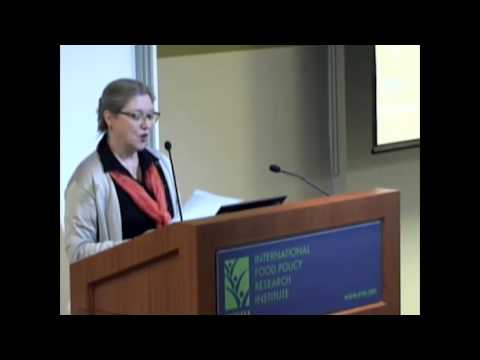Back
Related types
Found 305 Results
-
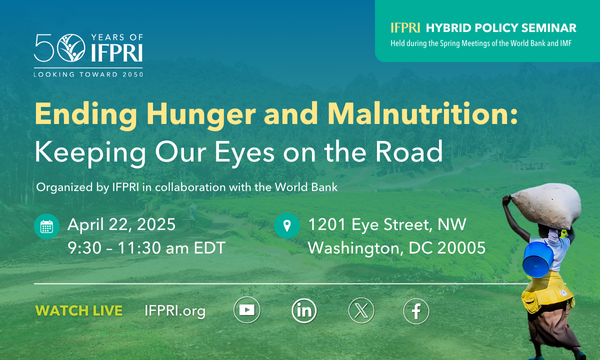
Ending Hunger and Malnutrition: Keeping Our Eyes on the Road
Organized by IFPRI in collaboration with the World Bank
Also streaming on Please type your questions into the chat box with name, affiliation, and country. The event video, presenter slides, and podcast will be available in the days following the event. While global agricultural commodity prices have come down from the high levels seen in recent years, the world remains far off track in […]
-
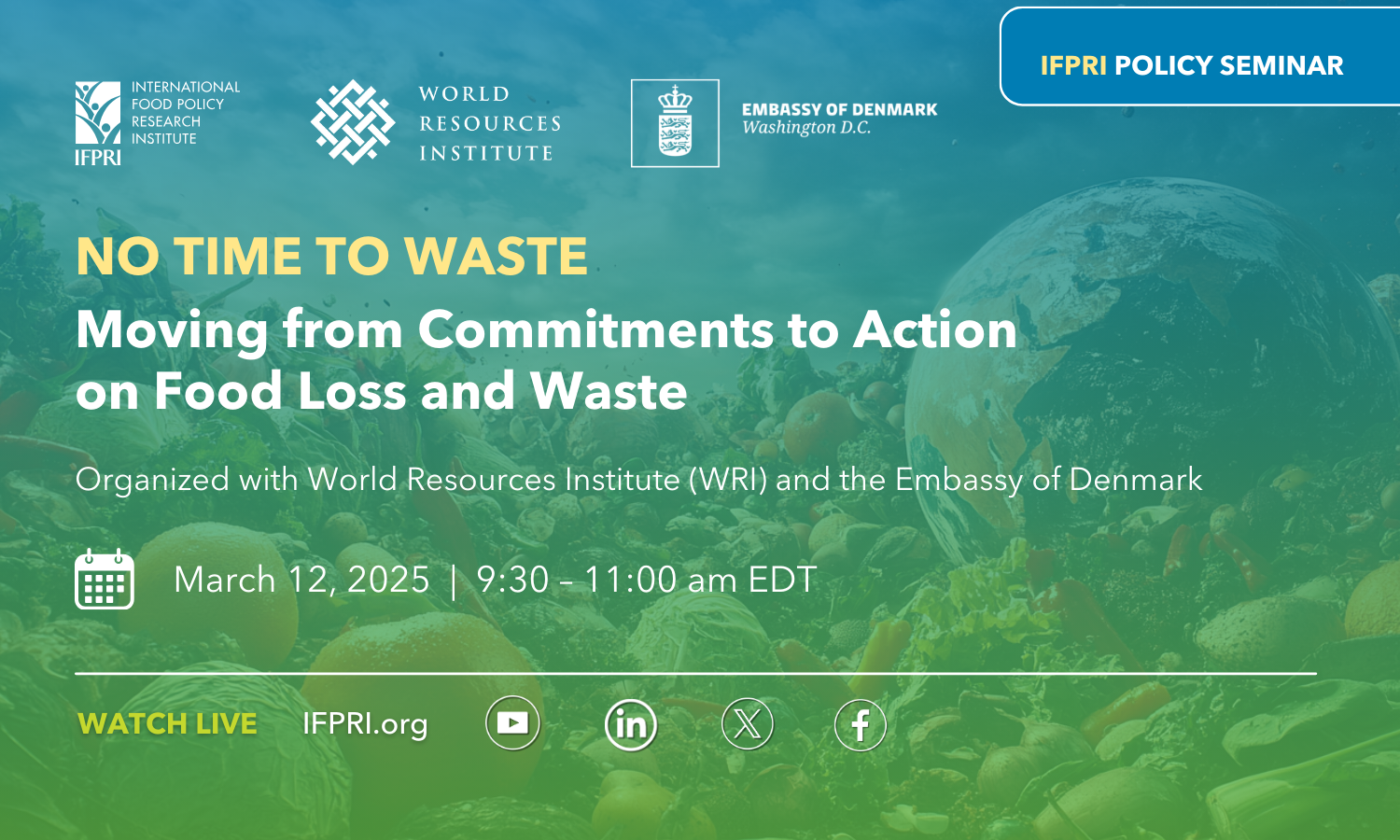
No Time to Waste: Moving from Commitments to Action on Food Loss and Waste
Co-organized by IFPRI, World Resources Institute (WRI), and the Embassy of Denmark in Washington D.C.
Significant levels of food loss and waste continue to have negative impacts on food security and the environment, and Sustainable Development Goal 12.3, which aims to halve food loss and waste worldwide by 2030, remains out of reach. Join us on “12.3 Day” 2025 to take stock of efforts and opportunities to make progress toward […]
-

Biofuels and the Global Vegetable Oil Market
Co-organized by IFPRI and Agricultural Market Information System (AMIS)
Production of biodiesel fuel in Brazil, the European Union, Indonesia, and the United States has grown by nearly 40 percent over the past five years, driven largely by subsidies and government mandates. Government regulations aimed at reducing greenhouse gas emissions have also boosted demand for vegetable oils and created new markets for used cooking oils […]
-
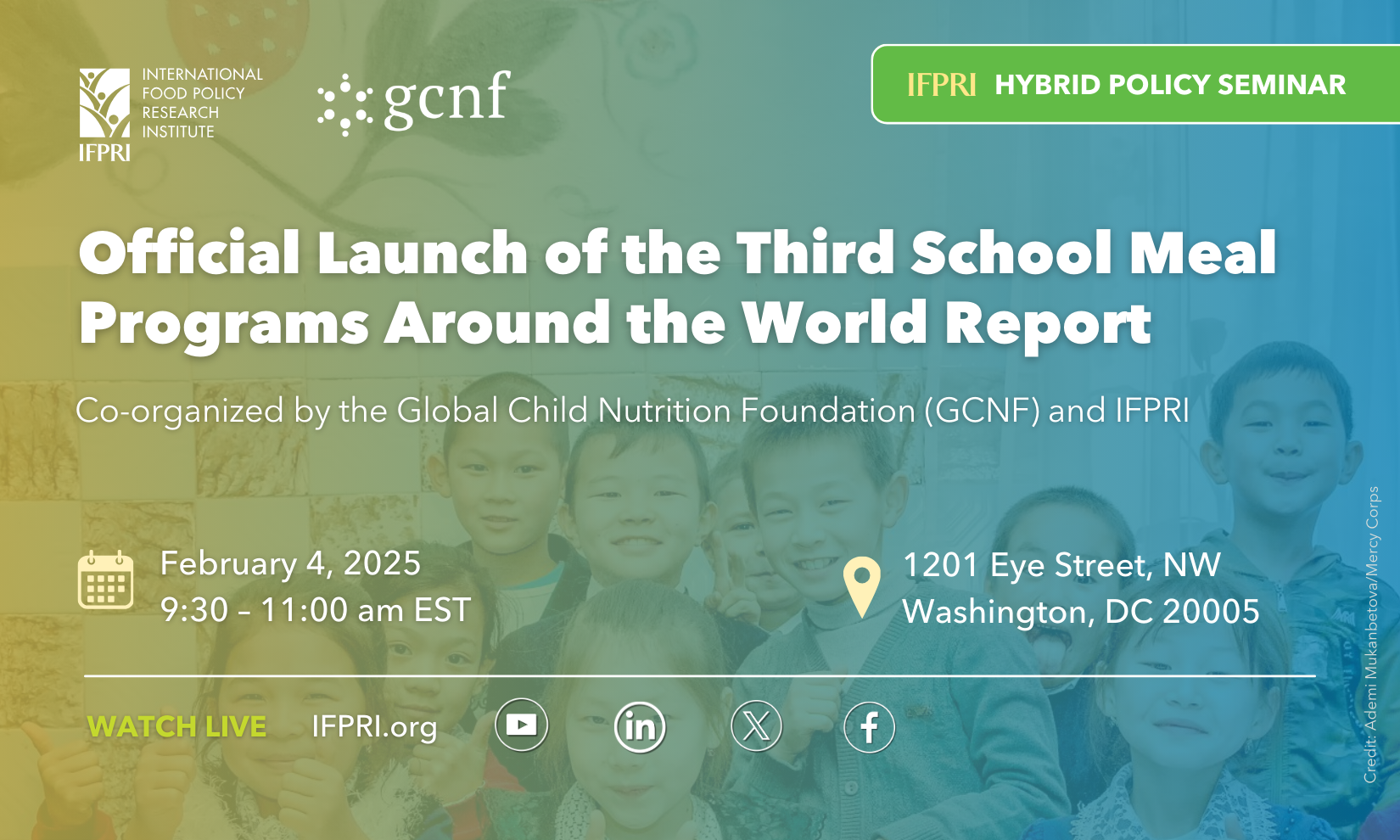
Official Launch of the Third School Meal Programs Around the World Report
Co-organized by the Global Child Nutrition Foundation (GCNF) and IFPRI
School meal programs are an effective way to boost children’s nutrition and wellbeing, including physiological development and academic performance. These programs can also play an important role in food systems transformation by ensuring access to healthy diets, supporting equitable livelihoods, and contributing to environmental sustainability. However, data on large-scale school meal programs have historically been […]
-
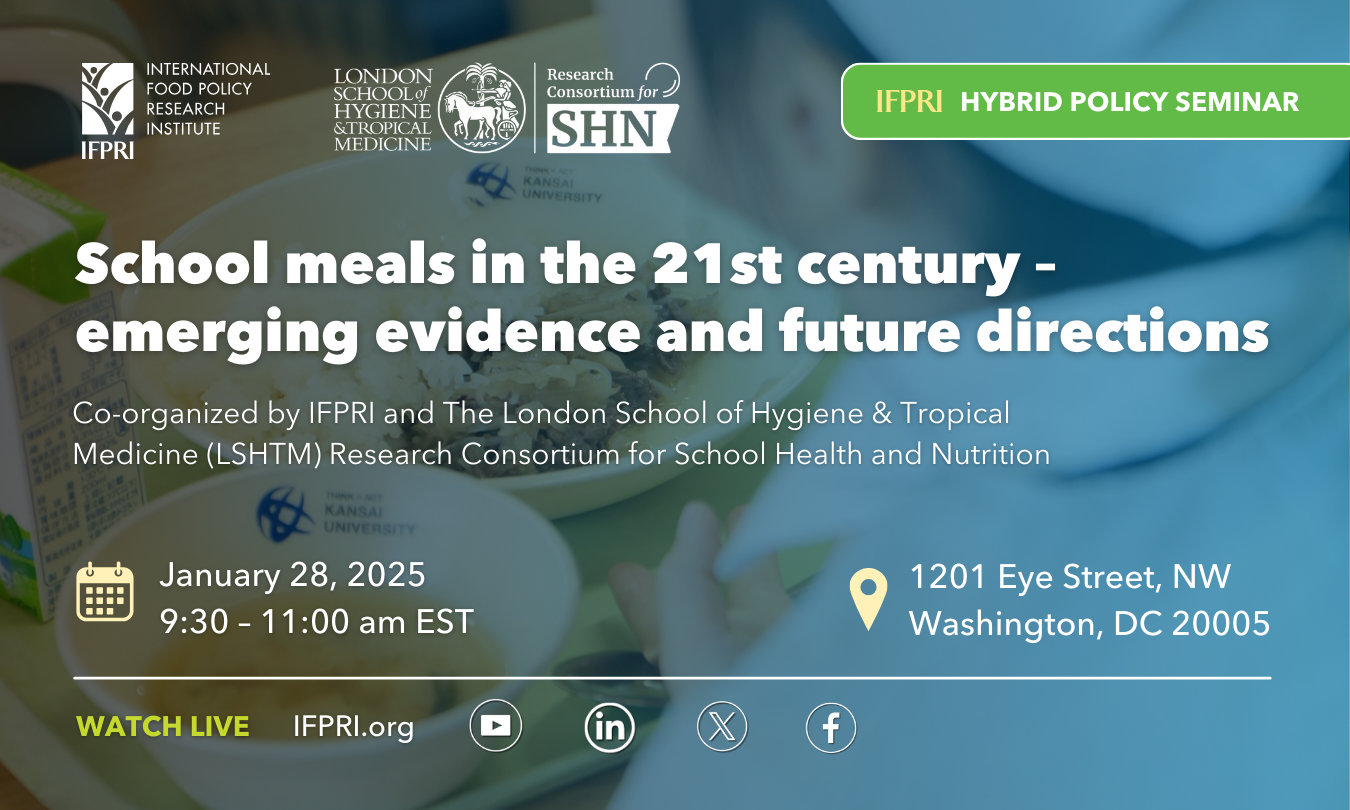
School meals in the 21st century – emerging evidence and future directions
Co-organized by IFPRI and The London School of Hygiene & Tropical Medicine (LSHTM) Research Consortium for School Health and Nutrition
Undernutrition during childhood and early adolescence has long-term consequences for development and health, and for girls it can affect the survival and wellbeing of their children. Diet-related risk factors are estimated to cause 20% of global mortality, and changes in food systems have led to rapid shifts to unhealthy diets and reductions in physical activity, […]
-
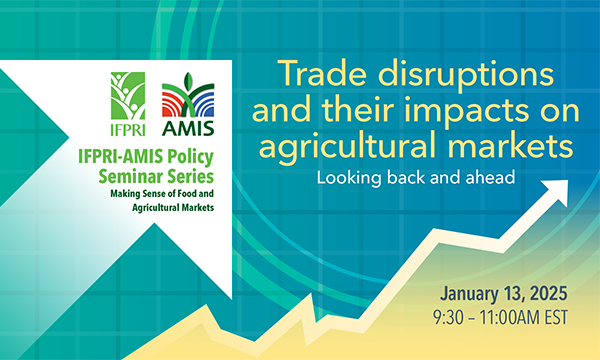
Trade disruptions and their impacts on agricultural markets: Looking back and ahead
Co-organized by IFPRI and Agricultural Market Information System (AMIS)
Global agricultural markets have been in a constant state of uproar over the past 5 years. Trade wars between major trading nations such as China, US and Australia, supply chain disruptions due to the pandemic, Russia’s war in Ukraine, crisis in the Middle East and export restrictions have diverted supplies, altered trading patterns, increased price volatility […]
-
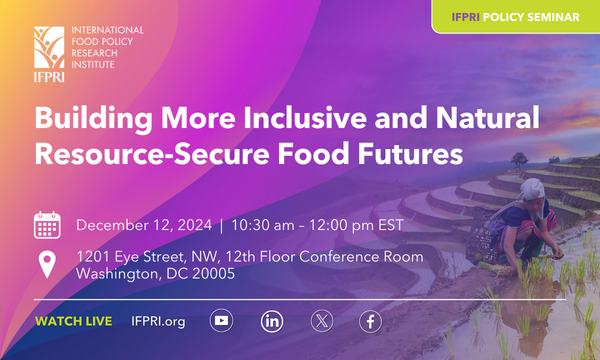
Building More Inclusive and Natural Resource-Secure Food Futures
Throughout her career, Ruth Meinzen-Dick has made pathbreaking contributions to natural resource management and gender equity, drawing from her deep engagement with communities to improve understanding and measurement in these areas. Dr. Meinzen-Dick’s research encompasses land and water policy, property rights, collective action, and games for experiential learning, with a longstanding focus on improving equity. […]
-
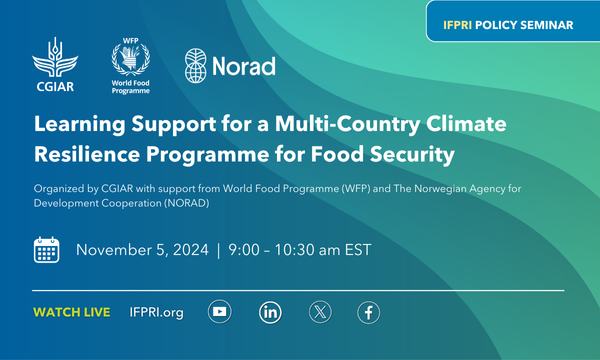
Learning Support for a Multi-Country Climate Resilience Programme for Food Security
Organized by CGIAR with support from World Food Programme (WFP) and The Norwegian Agency for Development Cooperation (Norad)
The Learning Support for a Sub-Saharan Africa Multi-Country Climate Resilience Program for Food Security, launched in 2023, aims to enhance food security and climate resilience across 14 African countries. This collaboration among CGIAR, the World Food Programme, and the Norwegian Agency for Development Cooperation (Norad) has three pillars: scaling disaster risk financing, transforming food systems […]
-
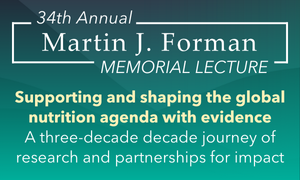
Supporting and shaping the global nutrition agenda with evidence: A three-decade journey of research and partnerships for impact
34th Annual Martin J. Forman Memorial Lecture
This year’s Forman Lecture will be delivered by Dr. Marie Ruel, Senior Research Fellow in the Nutrition, Diets, and Health Unit at IFPRI. She served as the Director of IFPRI’s Poverty, Health, and Nutrition Division from 2004 to 2023, after serving as Senior Research Fellow and Research Fellow in that division beginning in 1996. Dr. […]
-
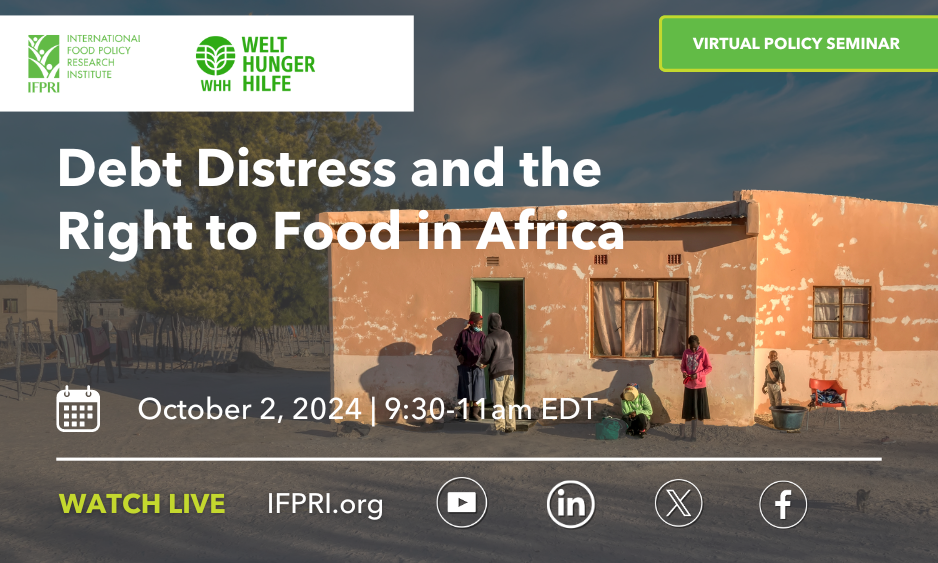
Debt Distress and the Right to Food in Africa
Co-organized by IFPRI and Welthungerhilfe (WHH)
More than half of low-income countries are at risk of debt distress or have already defaulted. The debt crisis, while exacerbated by recent crises, has been looming for several years. According to the United Nations, 3.3 billion people now live in countries that spend more on interest repayments than on education or health, and in […]
-
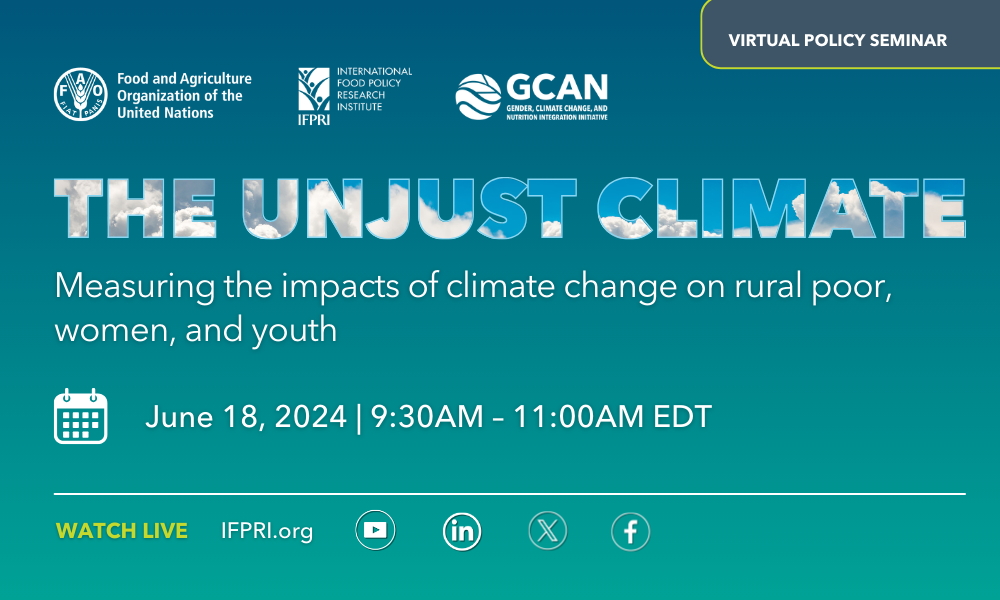
The Unjust Climate: Measuring the impacts of climate change on rural poor, women, and youth
Co-organized by IFPRI, Food and Agriculture Organization (FAO), and Gender, Climate Change and Nutrition Integration Initiative (GCAN)
Virtual Event: June 18, 2024 at 9:30am-11:00am EDT. This event will discuss key results from the report and hear from policymakers, practitioners, and partners on how they are working to generate relevant evidence and make a difference on the ground.
-

Tackling the Hidden Costs of our Food Systems
Co-organized by IFPRI, The Food System Economics Commission (FSEC), and Food and Agriculture Organization (FAO)
Hybrid Event: June 6, 2024 at 9:30am-11:00am EDT. This event will have a discussion on the hidden costs of food systems and the remedies to reduce economic burdens, while moving toward more sustainable, health-promoting, and socially inclusive food systems.
-
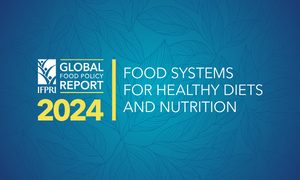
2024 Global Food Policy Report: Improving Diets and Nutrition through Food Systems: What Will it Take?
Hybrid Global Launch Event
Hybrid Event: May 29, 2024 at 9:30am-11:00am EDT. IFPRI’s 2024 Global Food Policy Report on Food Systems for Healthy Diets, presents evidence-based policy and governance solutions to strengthen diet quality and nutrition in low- and middle-income countries, and examines priorities for future research on food systems for better nutrition.
-

Globalization of the Bioeconomy: Recent Trends and Drivers of Bioeconomy Programs and Policies
Co-organized by IFPRI, International Advisory Council on Global Bioeconomy (IACGB) and CGIAR
Hybrid Event: May 7, 2024 at 9:00am-10:30am EDT. Please join us at IFPRI (in-person or online) for an exciting seminar on the globalization of the bioeconomy.
-

Sudan at a Crossroads: Food Systems, Hunger, and Humanitarian Aid During Civil Conflict
Hybrid Event: May 2, 2024 at 10:00am-11:30am EDT. This IFPRI policy seminar will reflect on urgent data, analytical, and policy needs to mitigate food insecurity and revitalize food systems in Sudan. This event will bring together researchers from IFPRI’s Sudan country program, conflict analysts, humanitarian donors, and country experts in a hybrid format.
-
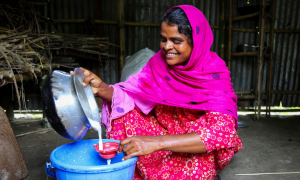
Dairy and Nutrition in the Global South: Potential, Progress, and Obstacles Ahead
Virtual Event: April 24, 2024 at 9:30am-11:00am EDT. This policy seminar examines the potential of dairy development to improve nutrition outcomes, focusing on dairy’s sizable potential for reducing child stunting and other forms of malnutrition, and how dairy systems are being developed to help meet this potential.
-
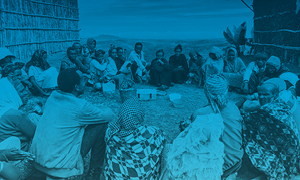
Deepening Social Protection Systems: Enhancing livelihoods and health in Ethiopia
Hybrid Event: April 17, 2024 at 10:30am-12:00pm EDT. This event will present findings from a randomized controlled trial of Strengthening PSNP Institutions and Resilience (SPIR), a graduation model program embedded within the PSNP that is led by World Vision, in collaboration with CARE and ORDA, and with support from the Ethiopian government and USAID.
-
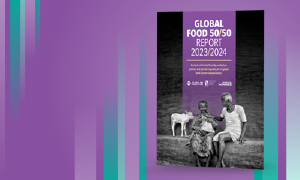
Global Food 50/50 Launch Event
Co-organized by Global Health 50/50, IFPRI, and UN Women
Virtual Event: March 7, 2024 at 9:00am-10:30am EST. This launch event seminar will present key findings from the report and explore how this new accountability mechanism can empower a broader movement to demand more equitable and inclusive organizations across the global food system.
-
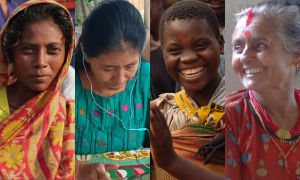
Introducing the new Women’s Empowerment Metric for National Statistical Systems (WEMNS)
Virtual Event: February 22, 2024 at 9:00am-10:30am EST. This event will present the WEMNS metric, review the development of the tool, and discuss its use to advance women’s empowerment. A panel of stakeholders from government and national statistical offices and from multilateral organizations will discuss the potential of WEMNS for promoting and monitoring women’s empowerment as part of national statistical surveys.
-
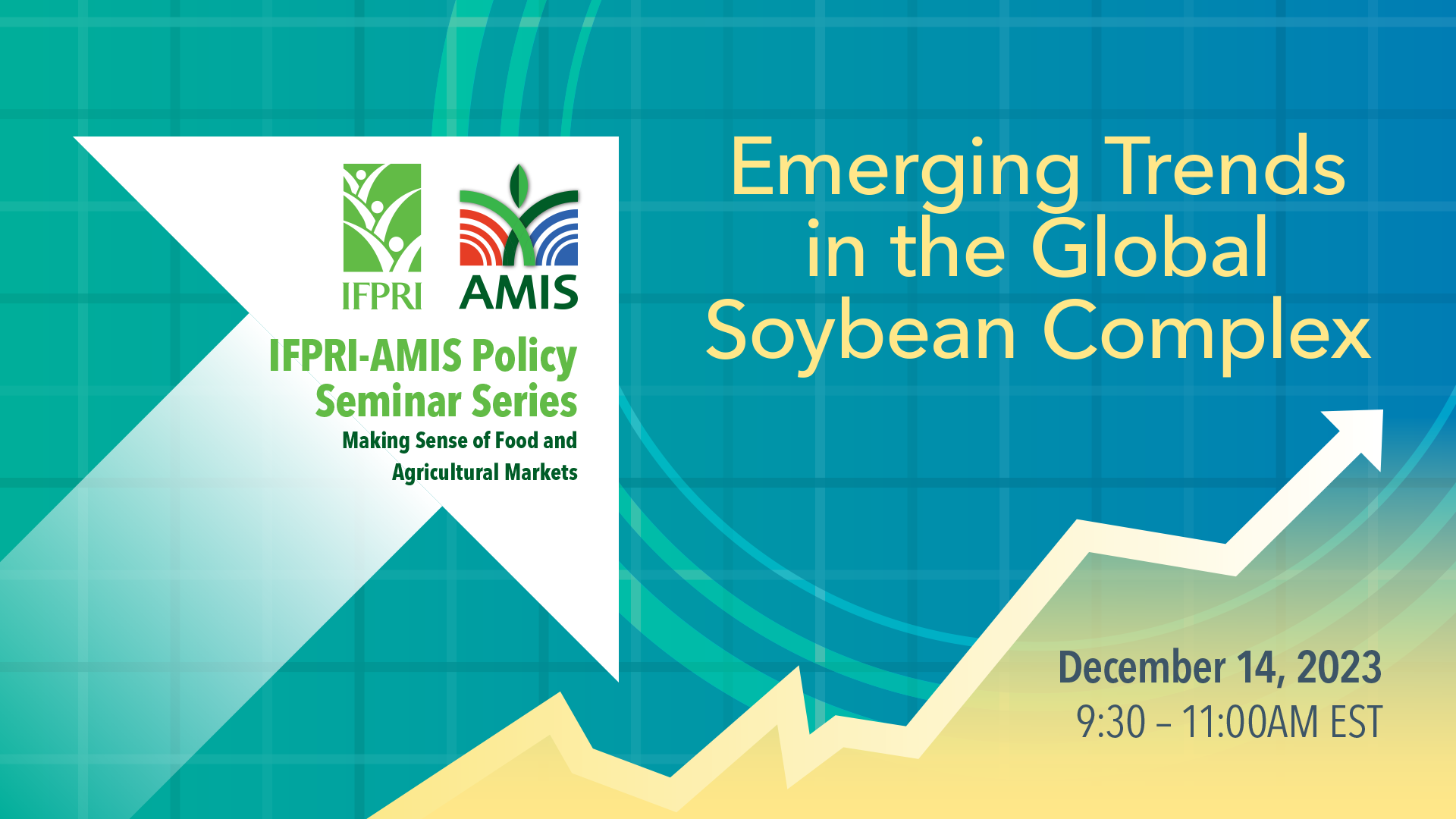
Emerging Trends in the Global Soybean Complex
Co-organized by IFPRI and Agricultural Market Information System (AMIS)
Virtual IFPRI-AMIS Seminar Series: December 14, 2023 at 9:30am-11:00am EST. This seminar will explore the market outlook for soybeans and vegetable oils, and examine the implications of the US biodiesel industry and recent developments in South American soybean production.
-

From Farm to Table: Agrifood Systems and Trade Challenges in the Southern Cone
Co-organized by IFPRI and United States Agency for International Development (USAID)
Virtual Event: December 12, 2023 – 9:30 AM- 11:00 AM EST. During this event speakers will present an analysis of the main challenges faced by national agrifood systems in the Southern Cone, especially in relation to new regulations and barriers that may affect international trade and export conditions.
-

The E-FooD Dataset and Food Security Simulators for Kenya and Nigeria: Innovative Tools to Support National Policies and Strategies
Co-organized by IFPRI and the CGIAR Initiative on National Policies and Strategies (NPS)
Virtual Event: December 7, 2023 – 8:00 AM- 9:00 AM EST. This webinar, organized by the CGIAR Initiative on National Policies and Strategies (NPS), introduces the E-FooD dataset and FSS for Kenya and Nigeria, showcases their applications, and discusses the role that such tools can play in policymaking.
-
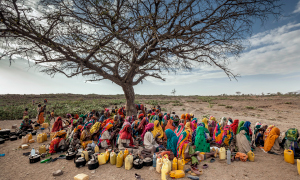
Implications of El Niño 2023/24 for Africa South of the Sahara
Co-organized by IFPRI, USAID Famine Early Warning Network (FEWS NET), and NASA Goddard Space Flight Center
Virtual Event: November 29, 2023 at 7:30am-9:00am EST. IFPRI in collaboration with USAID FEWS NET and NASA’s Goddard Space Flight Center, is hosting a presentation on the potential impact of the upcoming El Niño on the global agrifood system, with special emphasis on low-income countries in Africa South of the Sahara. The event will be organized around four short talks.
-
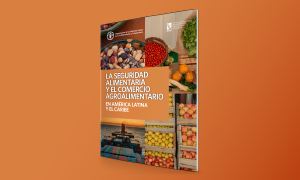
Food Security and Agrifood Trade in Latin America and the Caribbean
Co-organized by IFPRI and The Food and Agriculture Organization of the United Nations (FAO)
Virtual Event: November 28, 2023 at 10:00am-11:00am EST. IFPRI and The Food and Agriculture Organization of the United Nations (FAO) cordially invite you to the launch of the report: Food Security and Agrifood Trade in Latin American and the Caribbean, La Seguridad Alimentaria y el Comercio Agroalimentario en América Latina y el Caribe.
-
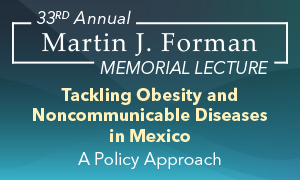
Tackling Obesity and Noncommunicable Diseases in Mexico: A Policy Approach
33rd Annual Martin J. Forman Memorial Lecture
Hybrid Event: November 21, 2023 – 9:00 AM- 10:30 AM EDT. The 33rd Annual Martin J. Forman Memorial Lecture will feature Dr. Simón Barquera, the Director of Nutrition and Health Research Center at the National Institute of Public Health of Mexico (INSP) who will address the growing obesity epidemic and alarming rate of diet-related noncommunicable diseases in Mexico.
-
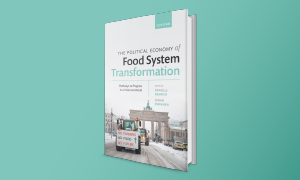
The Political Economy of Food System Transformation: Pathways to Progress in a Polarized World
Hybrid Event
Hybrid Event: Nov 14, 2023 – 3:00 PM- 4:00 PM EST. Join us for this hybrid book launch at IFPRI headquarters and online—speakers will discuss the political economy of these issues and reflect on opportunities to pursue food system policy reforms in an increasingly polarized world. A light reception will follow the presentations.
-
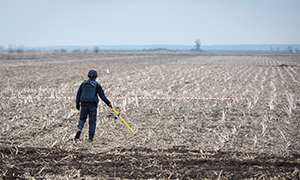
Food System Repercussions of the Russia-Ukraine War
2023 Borlaug Dialogue Breakout session
Virtual Event: October 26, 2023 at 1:10pm-2:10pm EDT. This session will examine the impacts of the conflict in Ukraine on food systems around the world. Russia’s February 2022 invasion triggered trade disruptions and dramatic price increases for energy, agricultural commodities, and fertilizers, which were already high following the COVID-19 lockdowns and value chain disruptions.
-
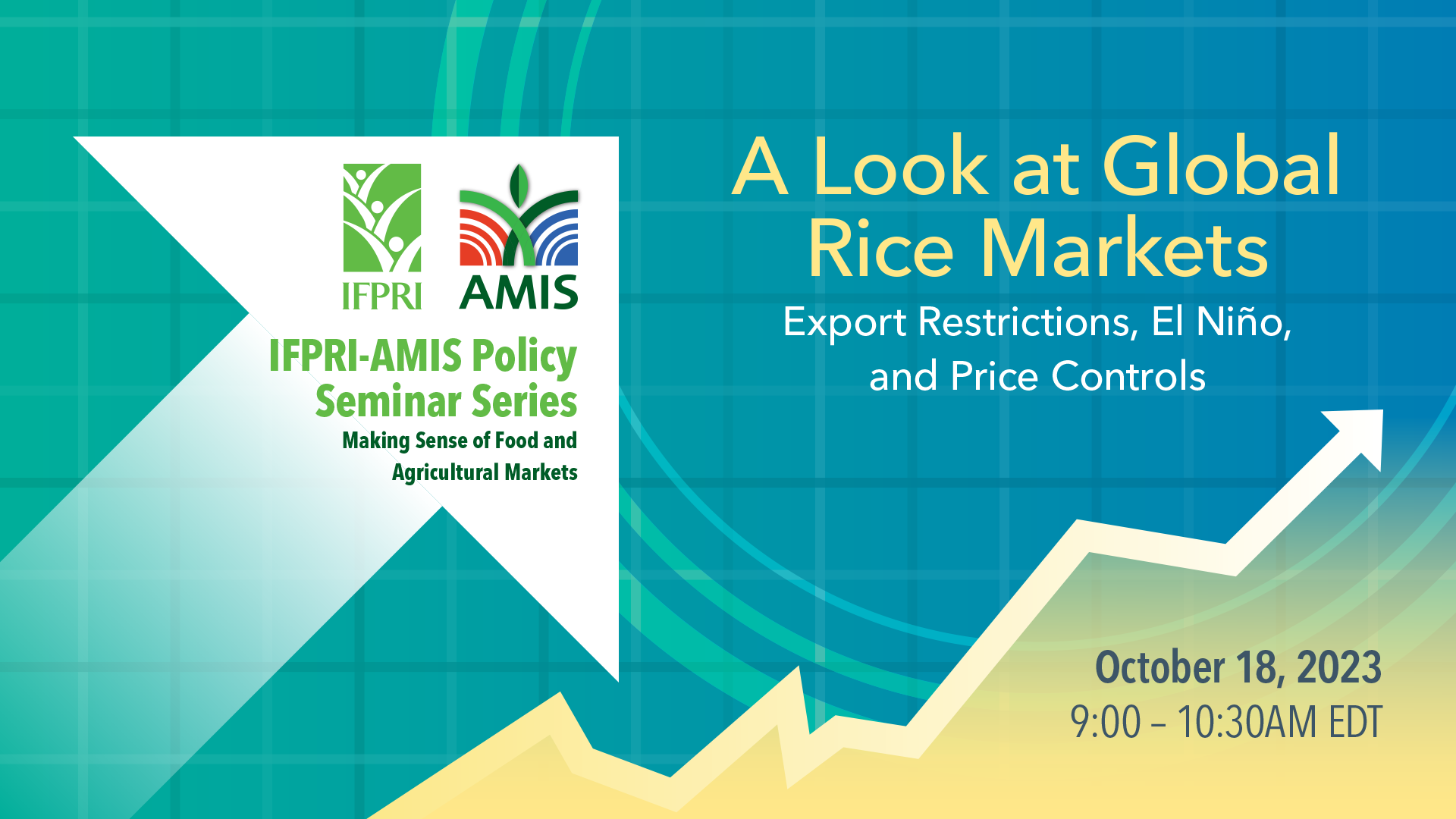
A Look at Global Rice Markets: Export Restrictions, El Niño, and Price Controls
Co-organized by IFPRI and Agricultural Market Information System (AMIS)
Virtual IFPRI-AMIS Seminar Series: October 18, 2023 at 9:00am-10:30am EDT. At an August meeting of ASEAN countries, leaders committed to maintain an unimpeded flow of agricultural products and refrain from using “unjustified” trade barriers. However, these commitments may be undermined by a strengthening El Niño in the Pacific, which threatens to cut the rice production of key Asian suppliers and push prices sharply higher. This webinar will provide a brief update on the global rice situation.
-
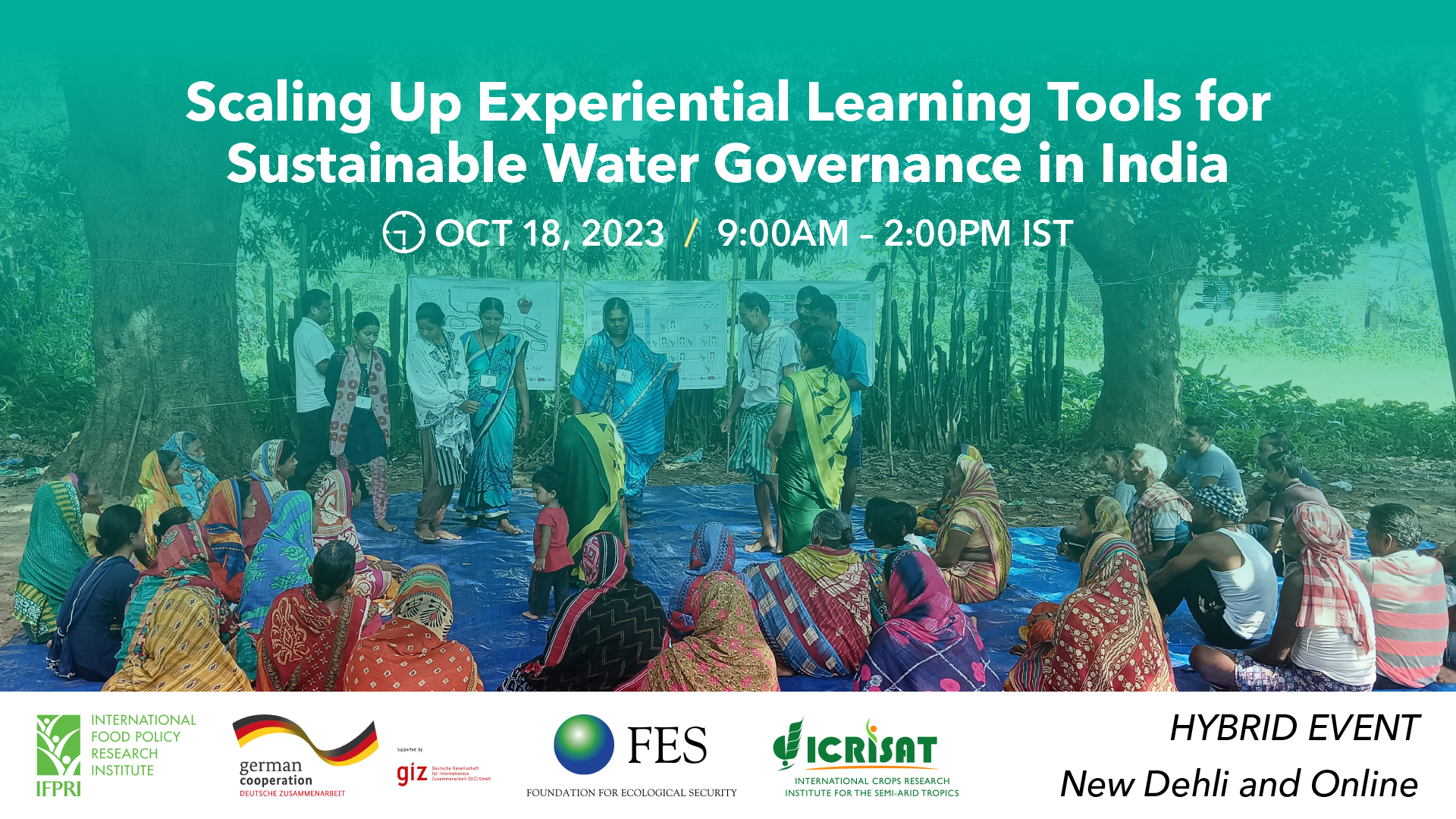
Scaling Up Experiential Learning Tools for Sustainable Water Governance in India
OCT 18, 2023 – 9:00 AM – 2:00 PM IST
As a common pool resource, water is easily depleted if no effective coordination exists among users to ensure provision and regulate withdrawals. The Scaling up experiential learning tools for sustainable water governance in India project aims to enhance sustainable water management at scale by improving the capacities of rural communities to manage water more sustainably. […]
-
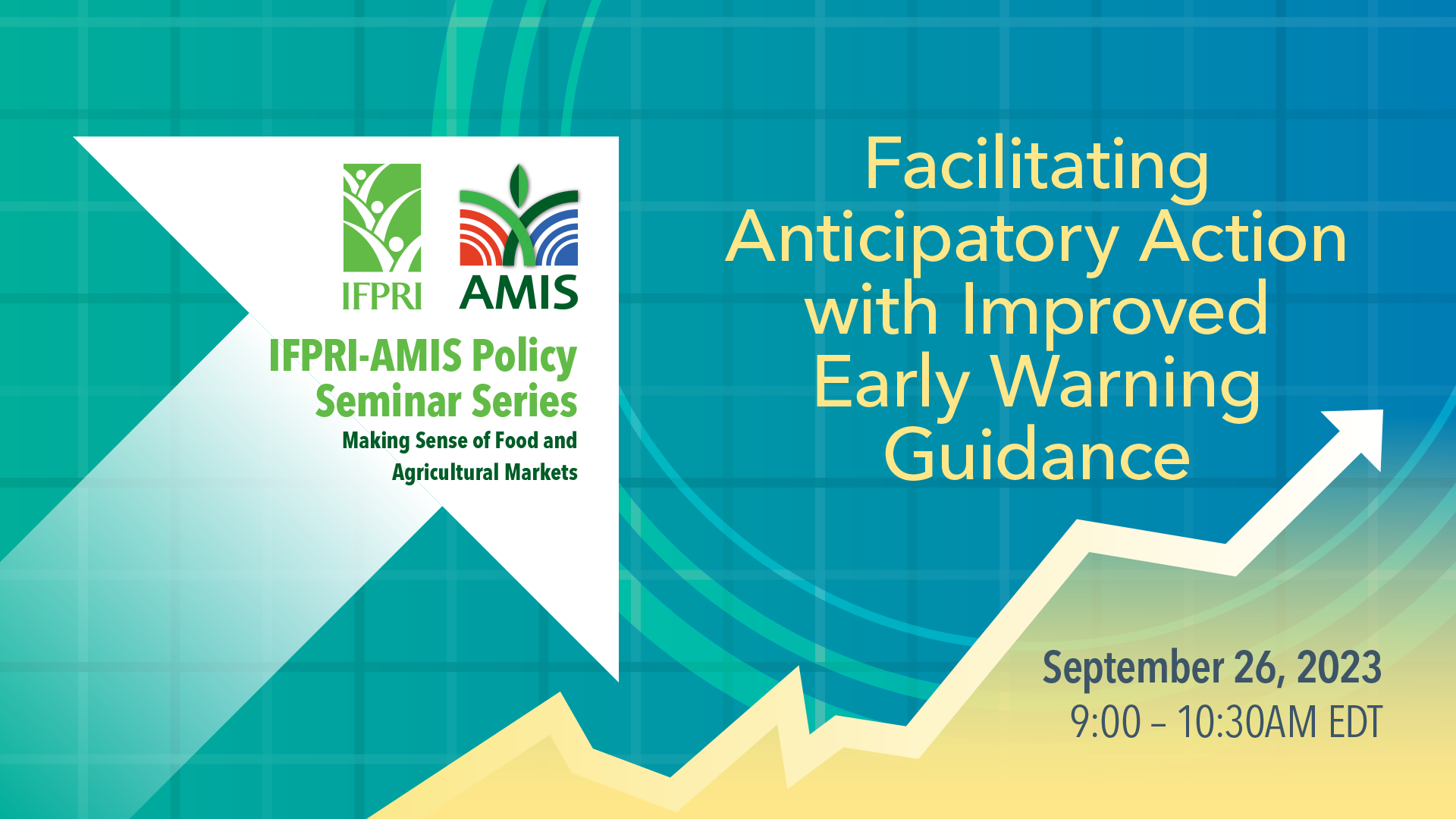
Facilitating Anticipatory Action with Improved Early Warning Guidance
Co-organized by IFPRI and Agricultural Market Information System (AMIS)
Virtual IFPRI-AMIS Seminar Series: September 26, 2023 at 9:00am-10:30am EDT. This seminar will take stock of existing early warning, early action systems (EWEAs) and examine whether they provide sufficient guidance to policymakers and decisionmakers keen to enhance anticipatory action.
-
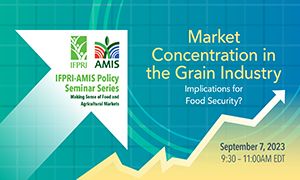
Market Concentration in the Grain Industry: Implications for Food Security?
Co-organized by IFPRI and Agricultural Market Information System (AMIS)
Virtual IFPRI-AMIS Seminar Series: September 7, 2023 at 9:30am-11:00am EDT. This session will examine whether increased concentration necessarily leads to increased market power or simply reflects the underlying economic efficiencies controlling value chains.
-
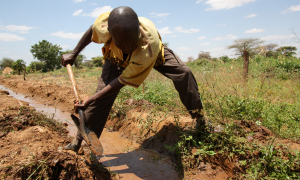
Irrigation sensible à la nutrition au Mali : un guide pour progresser en matière de sécurité hydrique, alimentaire et nutritionnelle au Mali
Co-organized by IFPRI, Feed the Future Initiative, United States Agency for International Development (USAID), and the World Vegetable Center
Virtual Event: August 2, 2023 – 9:00 AM- 10:30 AM EDT. Irrigation contributes to agricultural intensification and farm profitability, helps farm households extend the growing season, and is increasingly important for farmers’ resilience to climate shocks and stressors. Please join us for a webinar to discuss this important topic on August 2 at 9:00 EST and 13:00 GMT (Bamako time).
-
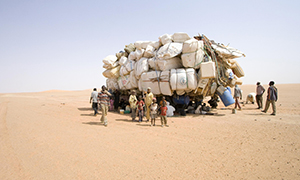
Irregular Migration and Food Security: A View from West Africa
Co-organized by IFPRI and World Food Programme (WFP)
Event: July 20, 2023 – 9:30 AM- 11:00 AM EDT. This seminar will present study results and the website, with discussion by researchers from IFPRI, WFP, and MIT as well as other experts.
-
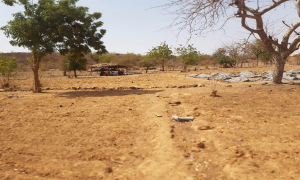
Research Findings on Resilience & Social Cohesion in Burkina Faso and Niger
Co-organized by IFPRI, World Food Programme (WFP), Institute for Peace and Development (IPD), and the CGIAR Research Initiative on Fragility, Conflict, and Migration (FCM)
Virtual Event: July 11, 2023 – 9:00 AM- 10:30 AM EDT. WFP, IFPRI and IPD are jointly offering this webinar to disseminate the study’s findings on social cohesion in Niger and Burkina Faso to create an opportunity for interested actors to discuss their feedback and the way forward.
-
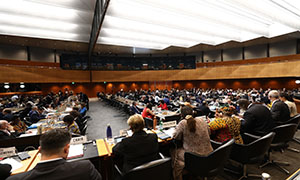
Farm Subsidies and International Trade Rules
Hybrid Event: May 25, 2023 – 9:30 AM- 11:00 AM EDT. This trade policy seminar will provide a review and future-oriented discussion on domestic support, featuring Lars Brink and David Orden, authors of the recently published book Agricultural Domestic Support under the WTO: Experience and Prospects.
-
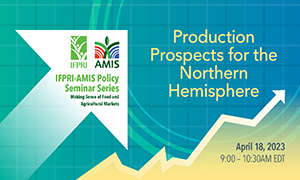
Production Prospects for the Northern Hemisphere
Co-organized by IFPRI and Agricultural Market Information System (AMIS)
VIRTUAL IFPRI-AMIS Seminar Series: April 18, 2023 at 9am-10:30am EDT. This session will address crop and weather conditions in key wheat, corn, and oilseed producing regions including the US and Canada, the EU and Black Sea, North Africa and China.
-
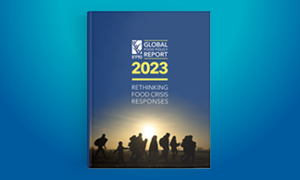
2023 Global Food Policy Report: Rethinking Food Crisis Responses
Hybrid Global Launch Event
Hybrid Event: April 11, 2023 – 9:00 AM- 10:30 AM EDT. Join us for the launch of IFPRI’s 2023 Global Food Policy Report, which explores evidence-based policy and governance solutions that can provide better early warning and rapid response and increase resilience of food systems.
-
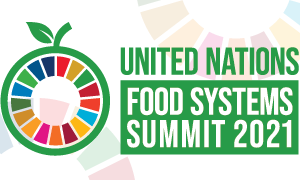
Science and Innovation for Food Systems Transformation – follow up to the 2021 UN Food Systems Summit
In cooperation with the former Scientific Group of the 2021 UN Food Systems Summit
Hybrid Event: April 11, 2023 – 9:30 AM- 11:00 AM EDT. This event will explore scientific findings that inform food systems transformation and point to research gaps, and examine food systems governance and the role of global institutions in shepherding food systems transformation.
-
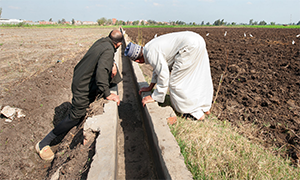
Water & SDGs – Downscaling WATer relevant SDGs (DWAT-SDGs)
2023 UN Water Conference Side Event
Virtual Event: March 20, 2023 – 10:00 AM- 11:00 AM EST. This session will exchange existing tools and case studies linked to SDG 6 implementation from member countries and will develop suggestions and partnerships for expanding SDG 6 localization, making an important contribution to the Water Action Agenda.
-
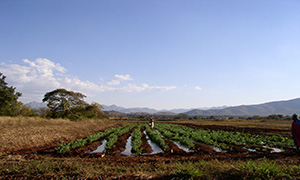
Groundwater: Potential and Pitfalls for Africa
2023 UN Water Conference Side Event
Virtual Event: March 20, 2023 – 8:00 AM- 9:30 AM EST. This event will discuss the African Ministers’ Council on Water’s (AMCOW) groundwater program with case studies on the benefits of groundwater development as well as institutional advances in several African countries.
-
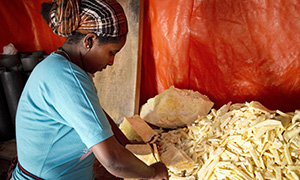
How USD 10 billion can transform food systems in Ethiopia, Malawi, and Nigeria: Report launch
Co-organized by IFPRI, International Institute for Sustainable Development (IISD), and Shamba Centre for Food and Climate
Virtual Event: March 16, 2023 – 9:00 AM- 10:30 AM EDT. This seminar will discuss how sustainable food system transformation can be achieved in the next decade in Ethiopia, Malawi, and Nigeria by increasing public investment by US$10 billion per year (on average from 2023 to 2030) and implementing a more effective portfolio of interventions that achieve multiple outcomes.
-
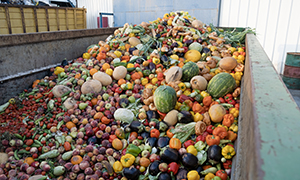
Food Loss and Waste in Fruit and Vegetable Supply Chains
Co-organized by IFPRI, Embassy of Denmark, and World Resources Institute
Virtual Event: March 14, 2023 – 9:30 AM- 11:00 AM EST. The seminar will take a closer look at fruits and vegetables, which are among the healthiest but most wasted foods. Given their perishable nature, great care, attention, and cooperation along all parts of fruit and vegetable value chains are required to reduce food loss and waste.
-
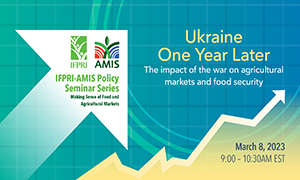
Ukraine One Year Later: the impact of the war on agricultural markets and food security
Co-organized by IFPRI and Agricultural Market Information System (AMIS)
VIRTUAL IFPRI-AMIS Seminar Series: March 8, 2023 at 9:00am-10:30am EST. During this seminar speakers will discuss the war’s impacts on Ukraine’s producers, wheat buyers and importers in the MENA region, and households in Egypt and Yemen.
-
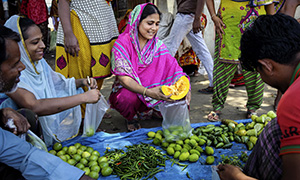
Introducing pro-WEAI complementary indicators for nutrition- sensitive agriculture and market inclusion projects
with support from BMGF, GIZ, MCC, USAID, and CGIAR Research Programs on Policies, Institutions, and Markets (PIM), and Agriculture for Nutrition and Health (A4NH)
Virtual Event: March 2, 2023 – 9:00 AM- 10:30 AM EST. This Policy Seminar will introduce the new health and nutrition (HN) and market inclusion (MI) indicators and explain how they can guide nutrition-sensitive and market inclusion elements of agricultural development projects.
-
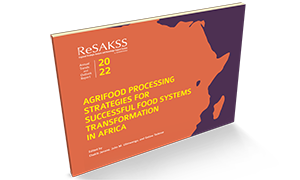
Taking Stock of Africa’s Agrifood Processing Sector
Key findings of the 2022 ReSAKSS Annual Trends and Outlook Report on Agrifood Processing Strategies for Successful Food Systems Transformation in Africa
Virtual Event: February 9, 2023 – 8:00 AM- 9:30 AM EST. During this event key research findings and policy recommendations of the 2022 ATOR will be presented and discussed by a distinguished panel of representatives from academia, the private sector, and international and regional organizations engaged in strengthening Africa’s agri-food processing sector.
-
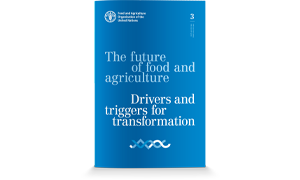
The future of food and agriculture – Drivers and triggers for transformation
Co-organized by Food and Agriculture Organization (FAO), IFPRI, and the CGIAR Research Initiative on Foresight
Virtual Event: February 1, 2023 – 10:00 AM- 11:15 AM EST. This policy seminar, co-organized by FAO, IFPRI, and the CGIAR Research Initiative on Foresight, offers an opportunity to hear from the report’s authors and engage with a group of panel discussants on challenges facing food and agriculture.
-
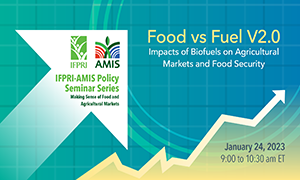
Food vs Fuel V2.0: Impacts of Biofuels on Agricultural Markets and Food Security
Co-organized by IFPRI and Agricultural Market Information System (AMIS)
VIRTUAL IFPRI-AMIS Seminar Series: JANUARY 24, 2023 at 9am-10:30am EST. This session will review the growth in global biofuel production and examine its impact on demand and market prices for grain and oilseeds.
-
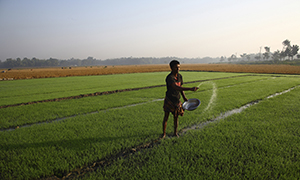
Harmful Environmental Impacts of Agricultural Subsidies
Co-organized by IFPRI and The University of Adelaide
Virtual Event: December 14, 2022 – 3:00 PM- 4:30 PM EST. This seminar will discuss the harmful environmental impacts of agricultural subsidies and how repurposing them could lead to policies that work better for people and the planet.
-
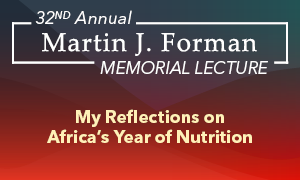
My Reflections on Africa’s Year of Nutrition
32nd Annual Martin J. Forman Memorial Lecture
Virtual Event: December 12, 2022 – 10:00 AM- 11:30 AM EST. IFPRI is delighted to announce the 32nd Annual Martin J. Forman Memorial Lecture, which will be delivered by Her Excellency Minata Samaté Cessouma, the African Union Commissioner for Health, Humanitarian Affairs, and Social Development.
-
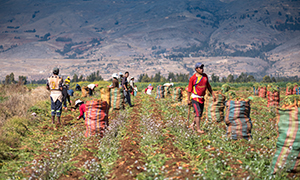
La agricultura de las Américas en el camino a la COP27: desafíos y oportunidades de la política pública
Co-organized by IFPRI and Instituto Interamericano de Cooperación para la Agricultura (IICA) with support from USAID
Virtual Event: October 27, 2022 – 9:30 AM to 11:00 AM EDT. This event will be in Spanish, with English interpretation available and seeks to create a space for inter-agency dialogue and discussion on the changes and continuities in regional public policy regarding the contribution of agriculture to face the climate crisis.
-
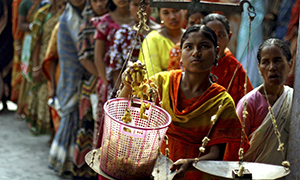
Ensuring a Focus on Women and Girls in the Global Food Crisis Response
Co-organized by United States Agency for International Development (USAID), Feed the Future Initiative, IFPRI, and the CGIAR GENDER Impact Platform
Virtual Event: October 20, 2022 – 9:30 AM to 11:00 AM EDT. This event will discuss how to chart a course toward more resilient and equitable food systems that create more opportunities for women and girls, leading to greater gender equality and greater prosperity for all.
-
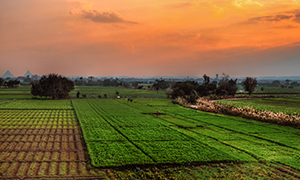
Accelerated Action for Food Systems Resilience: Egypt’s plans for COP27 and the role of CGIAR
CGIAR Borlaug Dialogue Side Event organized by IFPRI, ICARDA, and the CGIAR Research Initiative on National Policies and Strategies (NPS)
Virtual Event: October 20, 2022 – 8:15 AM to 9:45 AM EDT. During this event, a panel of distinguished speakers will comment on Egypt’s priorities for COP27, actions specific to Egypt’s agrifood sector, and CGIAR’s research portfolio and plans for COP27.
-
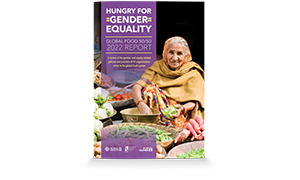
Tracking and promoting progress on gender equality: Emerging trends, challenges, and opportunities from the 2022 Global Food 50/50 Report
2022 Borlaug Dialogue Side Event
Virtual Event: October 18, 2022 – 08:00 AM to 9:30 AM EDT. This launch event seminar will present the report’s findings and explore how this accountability mechanism can empower a movement for more equitable, inclusive organizations across the global food system.
-
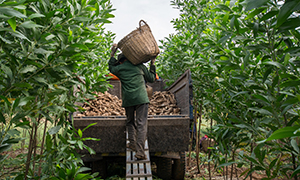
Globalization and food security: What could 20 years of IFPRI research teach us?
Virtual Event: October 12, 2022 – 11:00 AM to 12:30 AM EDT. The event will review 20 years of policy questions and associated research in the field of trade and food security.
-
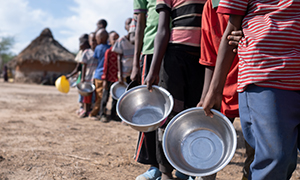
Call for Action to Address the Global Food Security Crisis
Virtual Event: October 5, 2022 – 09:30 AM to 11:00 AM EDT. The seminar will address questions and consider the proposals made by the Task Force on Food Security and Sustainable Agriculture of the Think20 (T20).
-
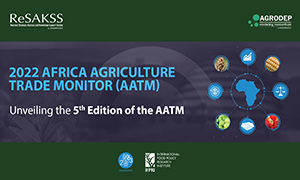
2022 Africa Agriculture Trade Monitor (AATM)
Leveraging Data to Improve Intra-Africa Food Trade
Virtual Event: September 27, 2022 – 09:30 AM to 11:15 AM EDT. The 2022 edition of AATM, analyzes short- and long-term trends and drivers of African agricultural trade flows. During this event speakers and discussants will review the report’s key findings and implications for next steps.
-
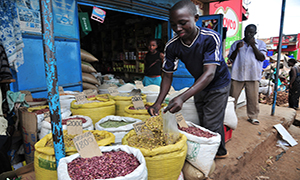
The Ukraine crisis: Unraveling the impacts and policy responses in low- and middle- income countries
Virtual Event: August 31, 2022 – 09:30 AM to 11:00 AM EDT. In this seminar speakers will share presentations and discussions on how policymakers and other key actors are addressing the challenges created by the Ukraine crisis in specific countries.
-

Nudging for Good: AI driven diagnostics and behavior change to improve diets and nutrition
Virtual Event: July 28, 2022 – 12:00 PM to 02:00 PM EDT. This seminar will launch the FRANI app and discuss the results of new dietary assessment technologies and perspectives on the way forward for technology-assisted diet assessment.
-
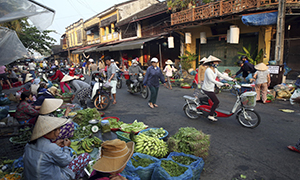
Addressing the global food security crisis
Strengthening research and policy responses
Virtual Event: July 25, 2022 – 09:30 AM to 11:00 AM EDT. This policy seminar will analyze the impacts of the war in Ukraine on food security in low- and-middle-income countries, highlight GAFS, and showcase how CGIAR’s immediate and longer-term responses can support policy initiatives.
-

Strengthening policy research and analysis capacity: The role of institutional development programs
Virtual Event: July 21, 2022 – 09:00 AM to 10:30 AM EDT. In this seminar, panelists and discussants will draw on their experiences with collaborative research in institutional development programs, and explore the lessons learned for strengthening policy research.
-
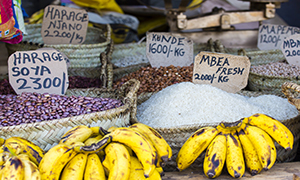
Are healthy diets affordable? Using new data on retail prices and diet costs to guide agricultural and food policy
Co-organized by IFPRI, Tufts University, the World Bank, and Food and Agriculture Organization (FAO)
Virtual Event: July 15, 2022 – 10:00 AM to 11:30 AM EDT. This Policy Seminar will feature Food Prices for Nutrition project leaders and participants around the world, who will discuss how policy analysts and researchers can use the new methods and data in their own work.
-
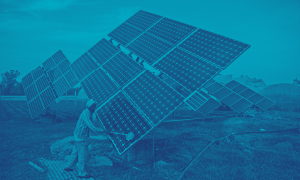
2022 Global Food Policy Report: Climate Change & Food Systems
Global Launch Event
Virtual Event: May 12, 2022 – 9:30 AM to 11:00 AM EDT. IFPRI’s 2022 Global Food Policy Report (GFPR) highlights the urgency of accelerating innovation, reforming policies, resetting market incentives, and increasing financing for sustainable food systems transformation.
-
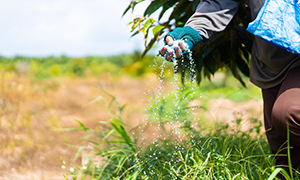
Fertilizer Availability and Affordability: Implications for agricultural productivity and food security
Virtual Event: May 4, 2022 – 9:30 AM to 11:00 AM EDT. During this event speakers will address the implications of increased prices on fertilizer demand, usage and productivity, the viability of government fertilizer subsidies and soil health.
-
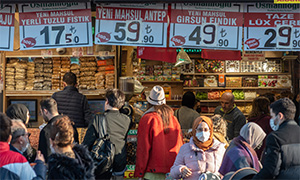
Retail food prices at the country level and implications for food security
How are rising food prices, further aggravated by the invasion of Ukraine, being transmitted at the country level?
Virtual Event: March 29, 2022 – 9:30 AM to 11:00 AM EDT. How are rising food prices, further aggravated by the invasion of Ukraine, being transmitted at the country level? This policy seminar will examine how global commodity prices are transmitted at the national level and what other country-specific aspects influence retail prices.
-
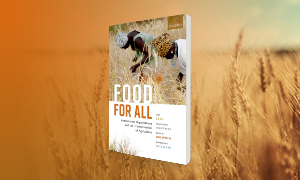
Food for All: International Organizations and the Transformation of Agriculture
Virtual Event: March 22, 2022 – 9:30 AM to 11:00 AM EDT. This event features a panel discussion on global governance, food security and nutrition, poverty reduction, and gender.
-
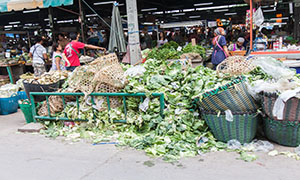
SDG 12.3 – Food Loss and Food Waste: A Once in a Generation Opportunity
Co-organized by IFPRI, Embassy of Denmark, World Resource Institute, Champions 12.3; and with the collaboration of the World Food Forum
Virtual Event: March 10, 2022 – 9:30 AM to 11:00 AM EST. At this seminar, young changemakers associated with the World Food Forum will pose questions and engage in a dialogue with a panel of leaders.
-
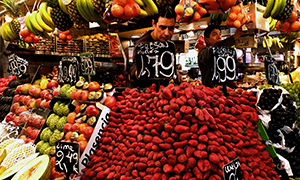
Global commodity prices and food security: Navigating new challenges and learning from the past
Virtual Event: March 9, 2022 – 9:30 AM to 11:30 AM EST. This policy seminar will present global data on key agricultural commodity, energy, transportation, and fertilizer markets to paint a comprehensive picture of price trends and their underlying causes
-
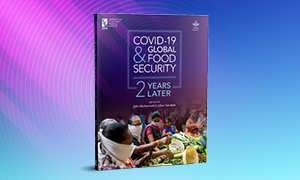
COVID-19 & Global Food Security: 2 Years Later
Virtual Event: March 7, 2022 – 9:30 AM to 11:00 AM EST. During this book launch presenters will share lessons learned and key issues that should be considered looking forward.
-
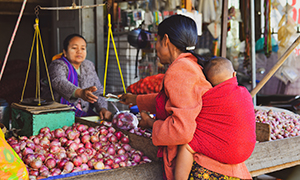
Advancing Food Systems Transformation: Dialogue between German Development Cooperation and CGIAR
Co-organized by German Federal Ministry for Economic Cooperation and Development (BMZ), CGIAR, IFPRI and Deutsche Gesellschaft für Internationale Zusammenarbeit (GIZ)
Virtual Event: Feb 23, 2022 – 9:30 AM to 11:00 AM EST. This event focuses on the importance of international food systems research and the science-policy interface for advancing key actions in Germany’s strategic directions for agriculture.
-

Sustainable Land Use: Role of soil for sustainable food systems
A Food and Agriculture Transatlantic Dialogue
Virtual Event: Feb 17, 2022 – 10:00 AM to 11:30 AM EST. At this policy seminar, the key outcomes of the GFFA will be presented and discussed, with a particular focus on the policy commitments and partnerships essential for improving soil health.
-
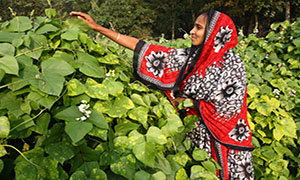
A Decade of the Women’s Empowerment in Agriculture Index (WEAI): Lessons from Using Empowerment Metrics
Co-Organized by IFPRI, United States Agency for International Development (USAID), and the Bill & Melinda Gates Foundation (BMGF)
Virtual Event: Feb 16, 2022 – 09:30 AM to 11:00 AM EST. This Special Event will reflect on what has been accomplished and learned by applying WEAI and pro-WEAI in diverse contexts.
-
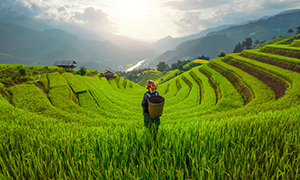
Can agricultural policies deliver better value for money for people, the planet, and the economy?
Co-Organized by IFPRI and World Bank Group
Virtual Event: Feb 02, 2022 – 09:30 AM to 11:00 AM EST. This policy seminar will present a summary of the latest IFPRI-World Bank research findings and feature speakers discussing the need for more rapid adoption of technological solutions that foster less emissions-intensive productivity growth across developed and developing countries alike.
-
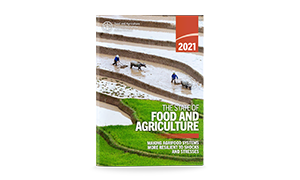
Making agrifood systems more resilient to shocks and stresses
Co-Organized by IFPRI and FAO North America
Virtual Event: Jan 19, 2022 – 09:30 AM to 11:00 AM EST. This policy seminar will discuss policy conclusions from the FAO’s The State of Food and Agriculture 2021 and how to act on them.
-
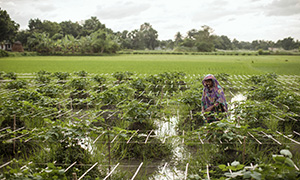
Disciplining Domestic Support
Virtual Event: NOV 30, 2021- 09:00 AM to 10:00 AM EST. This event will discuss a recent report by IFPRI researchers that suggests that new disciplines could reduce distortions and provide significant protection in domestic support disciplines.
-
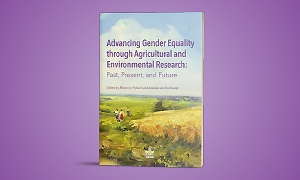
Advancing Gender Equality through Agricultural and Environmental Research: Past, Present, and Future
Co-Organized by IFPRI and the CGIAR Research Program on Policies, Institutions, and Markets (PIM)
Discussion of the history and wealth of gender knowledge that has been generated to date by CGIAR agricultural & environmental research.
Watch video
-
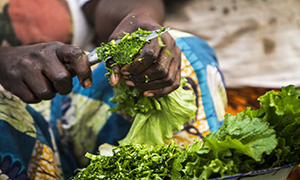
Two Steps Forward, One Step Back: Reflections from a Career in Research for Development
Co-Organized by CGIAR Research Program on Agriculture for Nutrition and Health (A4NH) and IFPRI
Virtual Event: Nov 22, 2021 – 09:30 AM to 11:00 AM EST. This special event will present experiences and insights gained over four decades of research, including reflections on academia and development in Africa.
-
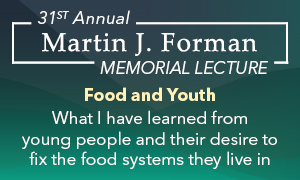
Food and Youth: What I have learned from young people and their desire to fix the food systems they live in
31st Annual Martin J. Forman Memorial Lecture
Virtual Event: OCT 28, 2021 – 10:00 AM to 11:30 AM EDT. Henrietta H. Fore will offer concrete next steps on how to ensure that children and young people are at the center of discussions on food systems transformation.
-
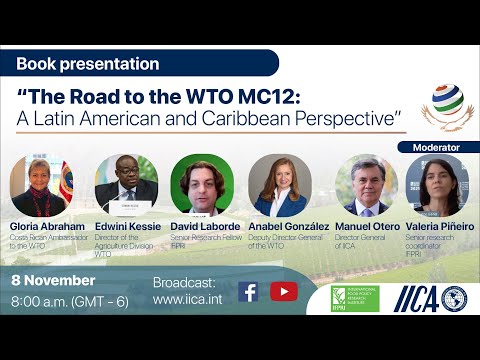
The Road Towards the WTO MC12: A Latin America and the Caribbean Perspective
Co-Organized by IFPRI and Instituto Interamericano de Cooperación para la Agricultura (IICA)
Virtual Event: OCT 27, 2021 – 12:00 PM to 1:00 PM EDT. This book launch will discuss the main agriculture trade negotiation issues for the next WTO Ministerial Conference from a Latin American perspective.
-
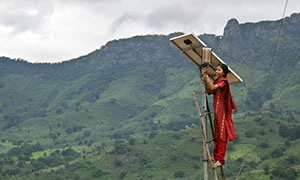
Ideas for confronting climate change today
Virtual Event: OCT 14, 2021- 09:30 AM to 10:45 AM EDT. This event will engage presenters on key questions about food systems and climate change in the lead up to CoP26.
-
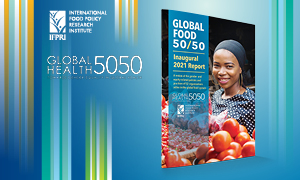
Global Food 50/50: Inaugural report on gender, diversity and power in the global food system
Co-Organized by IFPRI and Global Health 50/50
Virtual Event: OCT 5, 2021 – 08:00 AM to 09:30 AM EDT. This event will present findings of the report and explore how new accountability mechanisms can power a broader movement to demand more inclusive organizations across the global food system.
-
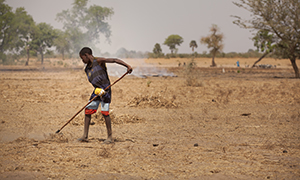
Developing Resilience to Climate Change and Achieving Food Security in West Africa: Follow up Action from the UN Food Systems Summit
Co-Organized by West African Science Service Centre on Climate Change and Adapted Land Use (WASCAL) and IFPRI
Developing a framework to address climate change through food system research, measuring & tracking resilience programming, & translating strategies. in West Africa.
Watch Video
-
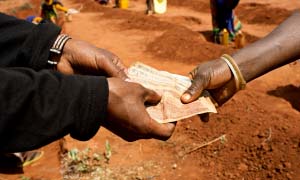
Funding Food System Transformation in Developing Countries: An example from Ethiopia
UNFSS Side Event — Co-organized by IFPRI, The Alliance of Bioversity International and CIAT, CGIAR
Virtual Event: SEP 24, 2021- 08:00 AM to 09:30 AM EDT. This event will inform discussion of CGIAR work, developed for the UNFSS, on potential sources of funding for food systems transformation activities.
-
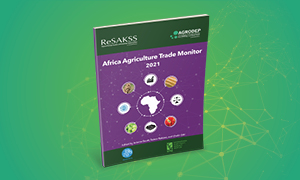
Making the most of intra-African trade: the 2021 Africa Agriculture Trade Monitor
Co-Organized by IFPRI and AKADEMIYA2063
Virtual Event: SEP 23, 2021 – 09:30 – 11:00 AM EDT. This seminar will explore the 2021 findings, including the impact of COVID-19 and the AfCFTA.
-
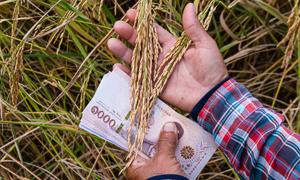
Financing food systems transformation
Virtual Event: July 13, 2021 – 09:30 AM to 11:00 AM EDT. This event will bring together a group of experts to discuss options for mobilizing and utilizing funding to finance food systems transformation.
-
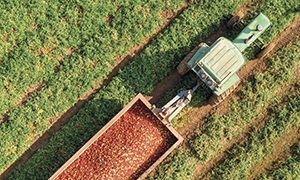
UNFSS Science Days Side Event: Reforming Agricultural Policies to Support Food Systems Transformation
Co-organized by IFPRI, Indian Council for International Economic Research (ICRIER) and Academy of Global Food Economics and Policy, China Agricultural University
Virtual Event: July 7, 2021- 09:30 AM to 11:00 AM EDT. Discussion about how agriculture policies could more effectivley meet the increasing demand for sustainably produced food, facilitate more nutritious diets, and promote better livelihoods.
-
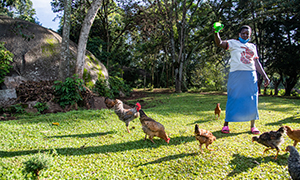
UNFSS Science Days Side Event: COVID-19, food systems, and One Health in an urbanizing world: Research responses at a national level
Co-Organized by CGIAR and RUAF
Virtual Event: July 6, 2021- 09:30 AM to 11:00 AM EDT. This event will highlight how technologies and policies in the agri-food sector can help improve food and nutrition security for the world's growing urban populations.
-
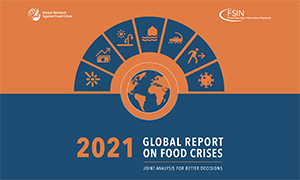
Global Report on Food Crises 2021: Building resilience to prevent food crises and conflict
Co-Organized by IFPRI, FSIN, FAO North America, World Food Programme and the Food Security Portal
Experiences and strategies that can build food systems resilience to prevent food crises and conflict.
Watch video
-
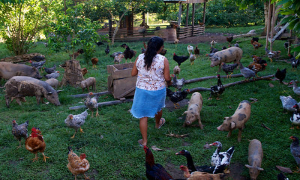
CGIAR COVID-19 Hub Seminar: COVID-19 and Implications for One Health Research
Co-Organized by CGIAR COVID-19 Hub and IFPRI
Virtual Event: May 04, 2021 – 09:30 AM TO 11:00 AM EDT. CGIAR presents research regarding the role of agriculture and provides policy recommendations.
-
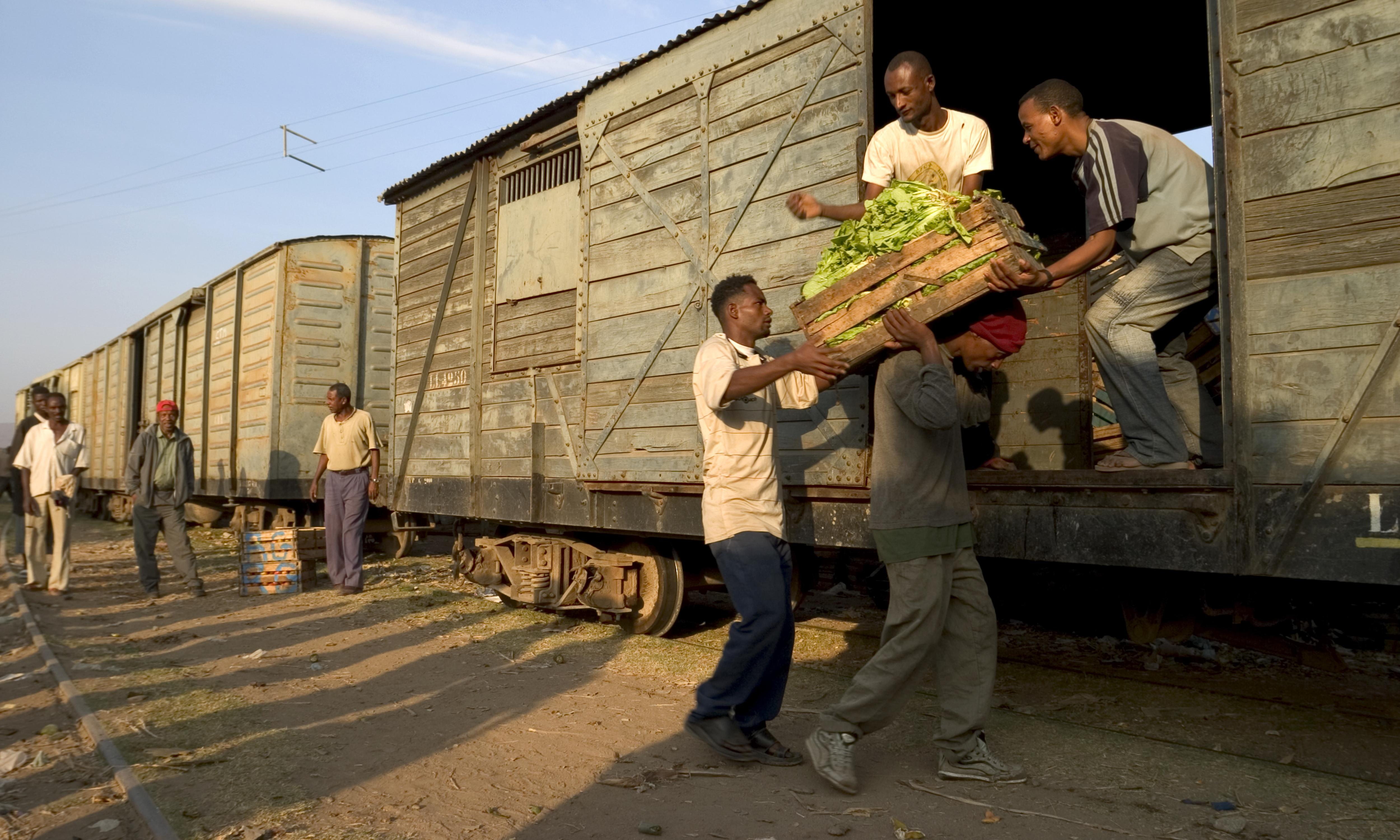
Evolving factors shaping trade in agriculture and food
Co-organized by IFPRI’s Strategy & Program Council
How can negotiations in the WTO be revitalized to address the concerns of international agricultural trade & the global food crisis?
Watch Video
-
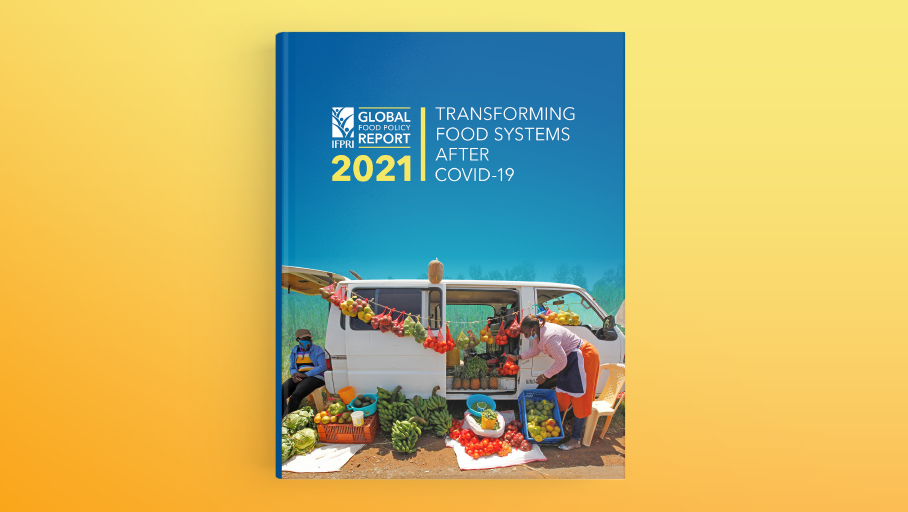
GLOBAL LAUNCH EVENT – 2021 Global Food Policy Report: Transforming Food Systems After COVID-19
Experts and Report authors discuss ways to transform food systems to be healthy, resilient, efficient, sustainable, and inclusive after COVID-19.
Watch Video
-
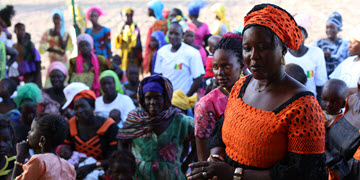
Examining the State of Community-led Development Programming
Co-Organized by IFPRI and Movement for Community-led Development
Community-led development (CLD) is a complex human change process. Join us as we dive into the Movement for Community-led Development’s State of CLD Programming report to understand what organizations are doing when they say they are implementing community-led development programs. Which characteristics are most prevalent in this work and which areas need more emphasis? How […]
-
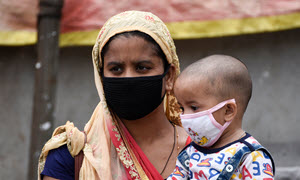
Tackling child undernutrition at scale: Insights from national and subnational success cases
Co-Organized by IFPRI and Exemplars in Global Health
Virtual Event: APR 1, 2021 – 09:30 AM TO 11:00 AM EDT. Lessons from these deep research programs offer hope that big change is possible and provide specific direction for countries striving to accelerate progress on nutrition
-
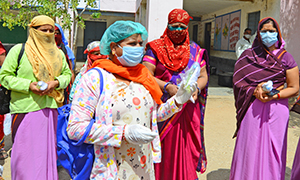
Towards Resilient Livelihoods, Food Security, and Nutrition for All: Confronting the Gendered Impacts of COVID-19
Co-Organized by IFPRI, the United States Agency for International Development (USAID) and the World Bank
Discussion on phone surveys on the gendered impacts of COVID-19; how to mitigate negative gendered impacts; and how COVID-19 policies & programs incorporate a gender lens.
Watch video -
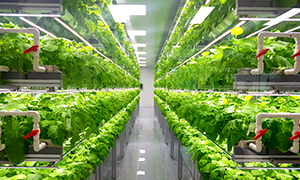
Socio-Technical Innovation Bundles for Agri-Food Systems Transformation: Implications for research and the One CGIAR agenda
“Innovations do not diffuse independently of enabling market, regulatory, and sociocultural environments. Scaling promising technological advances requires sociotechnical innovation bundles of context-dependent, customized combinations of mutually reinforcing innovations.” IFPRI is pleased to host a conversation with Professor Christopher Barrett and other experts on what is required to bring about healthy, equitable, resilient, and sustainable (HERS) […]
-
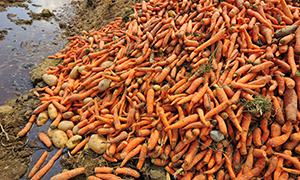
The 2021 United Nations Food Systems Summit: How to Incentivize Food Loss and Waste Reduction
Co-Organized by the International Food Policy Research Institute, Embassy of Denmark in Washington D.C., World Resources Institute, and Champions 12.3
Panelists provide inputs to the UN Food Systems Summit agenda and discuss “game-changing” solutions to reduce global food loss & waste.
Watch Video
-
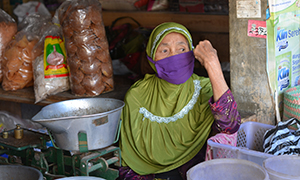
Food systems lessons from COVID-19: From understanding fragilities to building resilience
Co-Organized by IFPRI and the CGIAR COVID-19 Hub
COVID-19’s impacts on our global food system have affected the food security and nutritional wellbeing of millions of people worldwide, with market closures, supply disruptions, and income and employment losses. Understanding the extent and nature of these impacts will be critical to building resilience to future shocks. At this seminar, researchers from the CGIAR COVID-19 Hub […]
-
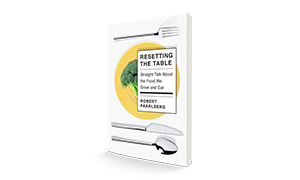
Resetting the Table: Straight talk about the food we grow and eat
The event video, presenter slides, podcast, photos and blog will be available in the days following the event. Consumers want to know more about their food–including the farm from which it came, the chemicals used in its production, its nutritional value, how the animals were treated, and the costs to the environment. They are being […]
-
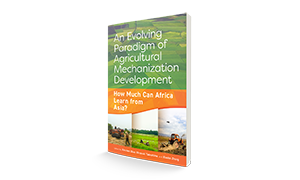
An evolving paradigm of agricultural mechanization development: How much can Africa learn from Asia?
The event video, presenter slides, podcast, photos and blog will be available in the days following the event. Agricultural mechanization in Africa south of the Sahara — especially for small farms and businesses — requires a new paradigm to meet the needs of the continent’s evolving farming systems. Can Asia, with its recent success in […]
-
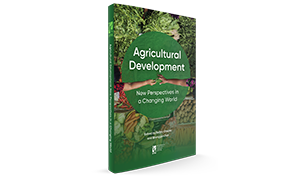
Agricultural Development: New Perspectives in a Changing World
Panelists discuss the first comprehensive exploration of key emerging issues facing developing- country agriculture today.
Watch Video
-
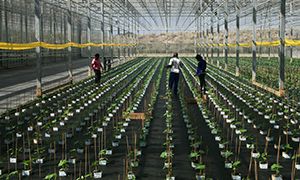
Virtual Event – Building back better: How can public food and agricultural research institutions be strengthened and rebuilt after the COVID-19 pandemic?
Co-Organized by IFPRI and the International Consortium on Applied Bioeconomy Research (ICABR)
How can public food and agricultural research institutions be strengthened and rebuilt after the COVID-19 pandemic?
Watch Video
-
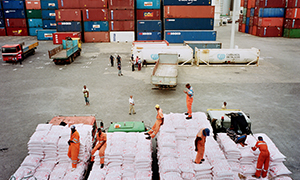
Virtual Event – Local vs Global? The role of trade in building food system resilience
As the COVID-19 pandemic continues to wreak havoc on the global economy and put pressure on food supply chains, debate has resurged about the role of trade in protecting food security. Though food supply chains have proved fairly resilient during the outbreak, many countries have faced both severe disruptions in supply and shifts in food […]
-
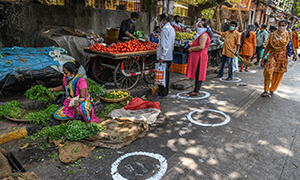
Virtual Event – CGIAR COVID-19 Hub: Supporting National Responses to a Global Pandemic
Co-Organized by IFPRI and CGIAR COVID-19 Hub
As the global leader in agricultural research, CGIAR took action in the earliest days of the pandemic to counter the potentially devastating impact on food security and nutrition worldwide. The CGIAR COVID-19 Hub mobilizes multidisciplinary research and innovation in support of national response efforts. This seminar brings together researchers and national partners from Bangladesh and […]
-
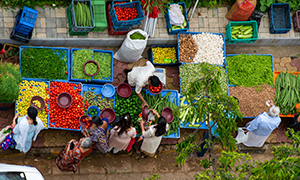
Virtual Event – Food and Agricultural Trade in the New Policy Environment: How Can WTO Members Support Recovery and Resilience in South Asia?
Co-Organized by IFPRI and the International Institute for Sustainable Development (IISD)
Please note this event will be at 4:30pm IST / 6:00am EST. The coronavirus outbreak has affected trade in food and farm goods, imperiling efforts to reduce hunger and malnutrition and adding to pressure already on the farm sector from climate change. The pandemic-induced postponement of the WTO’s next ministerial conference and ongoing tensions among […]
-
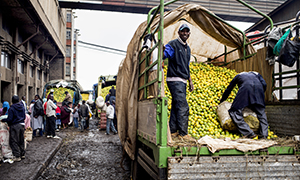
Virtual Event – The African Continental Free Trade Area: How will economic distribution change?
Panelists discuss the anticipated political and economic changes & distribution effects of the AfCFTA as it unfolds.
Watch Video
-
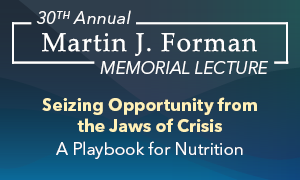
Virtual Event – Seizing Opportunity from the Jaws of Crisis: A Playbook for Nutrition
30th Annual Martin J. Forman Memorial Lecture
Dr. Ellen Piwoz on global nutrition community's strategic use of data and evidence to spur collective action and investment, and how to ensure that nutrition remains a global priority.
Watch Video
-
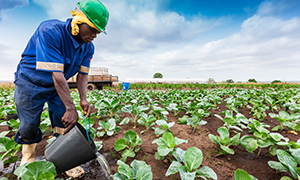
Virtual Event – Food and Agricultural Trade in the New Policy Environment: How Can WTO Members Support Recovery and Resilience in Africa (English panel)?
Co-Organized by IFPRI, Akademiya2063, and International Institute for Sustainable Development (IISD)
How can WTO members support recovery and resilience in Africa?
Watch video
-
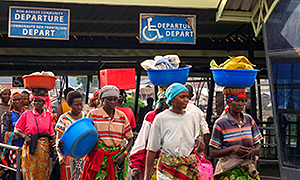
Virtual Event – Informal African trade: The hidden world of food flows
What are the emerging trends in agricultural informal cross-border trade, the barriers to participating in formal customs procedures and trade, and the role of female informal traders?
Watch Video -
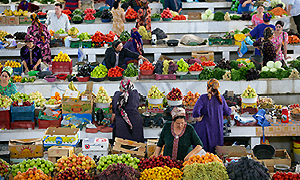
Virtual Event – Food Policy Research and Capacity Development in Eurasia
Co-Organized by the Eurasian Center for Food Security (ECFS), World Bank Group, and IFPRI
Strengthening the region's policy systems through evidence-based policy support, effectively engaging with policymakers, & supporting the next generation of analysts and researchers.
Watch Video -

Virtual Event – The New Nutrition Reality: Time to Recognize and Tackle the Double Burden of Malnutrition!
Multiple drivers affect the double burden of malnutrition. Can new nutrition policies tackle both forms of malnutrition at the same time and be effective?
Watch Video -
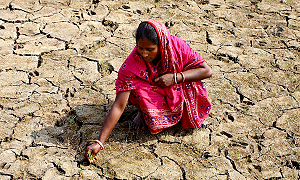
Virtual Event – Information Needs for Food Crisis Risk Early Warning: The Role of the Food Security Portal
Co-Organized by IFPRI and the Food Security Portal (FSP)
Persistent drivers of food insecurity and acute hunger—conflict, climate shocks, and environmental shocks—have been compounded in 2020 by the COVID-19-related health and socioeconomic upheaval and by the severe desert locust outbreaks in East Africa. The pandemic is expected to push as many as 132 million more people into chronic hunger in 2020, in addition to […]
-
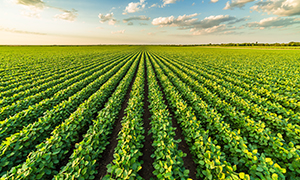
Virtual Event – Food and Agricultural Trade in the New Policy Environment: How Can WTO Members Support Economic Recovery and Resilience in Latin America and the Caribbean?
Co-Organized by IFPRI, Inter-American Institute for Cooperation on Agriculture (IICA), and International Institute for Sustainable Development (IISD)
Co-Organized by IFPRI, Inter-American Institute for Cooperation on Agriculture (IICA), and International Institute for Sustainable Development (IISD)
-
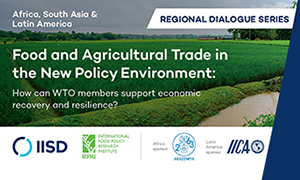
Évènement virtuel – Commerce alimentaire et agricole dans le nouvel environnement politique : Comment les membres de l’OMC peuvent-ils appuyer la reprise économique et la résilience de l’Afrique?
Co-organisé par l’IFPRI, Akademiya2063 & International Institute for Sustainable Development (IISD)
Le commerce des denrées alimentaires et des produits agricoles a été affecté par la pandémie du COVID-19, mettant en péril les efforts visant à faire progresser la lutte contre la faim et la malnutrition conformément au cadre défini par les Objectifs de développement durable (ODD). En même temps, le secteur agricole subit une pression croissante […]
-
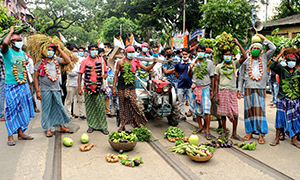
Virtual Event – The political economy of COVID-19: Impacts on agriculture and food policies
impacts on ag & food policies; how it has altered the balance of power among urban & rural populations, the state & private sectors, and across government ministries?
Watch Video -
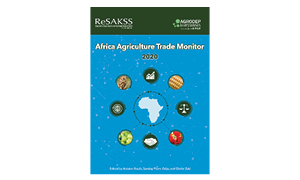
Virtual Event – The African Agriculture Trade Monitor 2020
Co-Organized by IFPRI and AKADEMIYA2063
Against the background of worldwide trade disruptions due to COVID-19, IFPRI and AKADEMIYA2063 are launching the third annual Africa Agriculture Trade Monitor (AATM), the leading comprehensive report on African agricultural trade flows and policies. The report’s authors will discuss emerging trends in African countries’ trade flows and compositions, comparative advantages globally and regionally, tariff and non-tariff […]
-
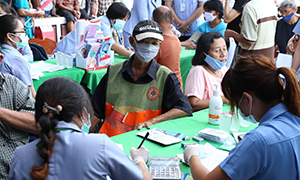
Virtual Event – COVID-19 and Developing Country Responses
An official side event of the World Food Prize 2020 Borlaug Dialogue
IFPRI is hosting a side event at the World Food Prize 2020 Borlaug Dialogue. The session will address COVID-19 and Developing-Country Responses, presenting country and regional perspectives including from China, India, Africa south of the Sahara, and a global perspective. Speakers will offer brief perspectives followed by an engaging q&a session with the virtual audience. […]
-

Virtual Event – Invisible China: How the Urban-Rural Divide Threatens China’s Rise
China has rapidly transformed itself into a modern, urban, technologically savvy economic powerhouse, and is now the world’s second-largest economy. But low levels of basic education pose a challenge for the future. Authors Scott Rozelle and Natalie Hell draw on extensive surveys on the ground to examine how low education levels among China’s large rural […]
-
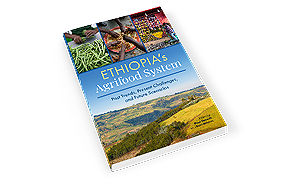
Virtual Event – Ethiopia’s agri-food system: Past trends, present challenges, and future scenarios
Ethiopia has experienced impressive agricultural growth and poverty reduction, stemming in part from substantial public investments in agriculture. Yet, the agriculture sector now faces increasing land and water constraints along with other challenges to growth. Growth in the agriculture sector remains essential to continued poverty reduction in Ethiopia and will depend on sustained investment in […]
-
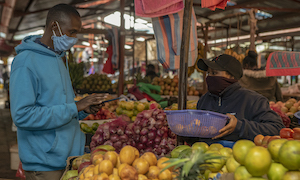
Virtual Event – COVID-19, global markets and African agricultural trade: Impacts on growth and food security
Organized by IFPRI, with support from the United States Agency for International Development (USAID)
The economic shocks of COVID-19 on global markets have left the African continent, along with its producers and consumers, distinctly vulnerable. This seminar will examine how changes in global food trade since the pandemic have impacted African food systems, regional supply chains and food access. Presenters will discuss the potential long-term risks of trade disruptions […]
-
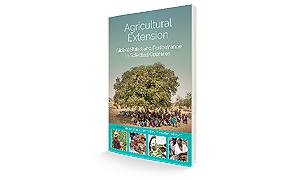
Virtual Event – Agricultural Extension: Global Status and Performance in Selected Countries
Co-Organized by IFPRI and the CGIAR Research Program on Policies, Institutions, and Markets (PIM)
This book provides a global overview of agricultural extension and advisory services, assesses and compares extension systems at the national and regional levels, examines the performance of extension approaches in a selected set of country cases, and shares lessons and policy insights. Drawing on both primary and secondary data, the book contributes to the literature […]
-
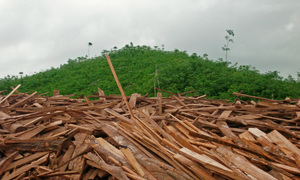
Virtual Event – COVID-19: The role of the agriculture-ecosystem health interface
Presenters discuss possible cross-sectoral policies and actions for enhancing human and ecosystem health, with a focus on the role of One CGIAR. WATCH VIDEO
-
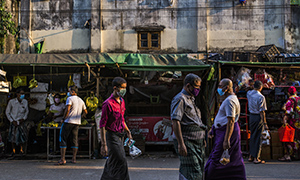
Virtual Event – COVID-19’s Short-term Impacts on Economies, Food Systems and Poverty in African and Asian Countries: Economywide Estimates from Economywide Models
Co-Organized by IFPRI and the CGIAR Research Program on Policies, Institutions, and Markets (PIM)
Using economywide models, presenters discuss the varied effects of different policies and economic structures on food systems and poverty during COVID-19 in Nigeria, Myanmar, and Sudan.
Watch video -
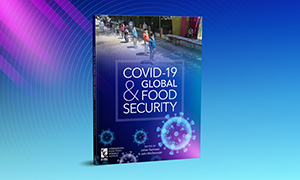
Virtual Event – COVID-19 & Global Food Security
Lessons learned from the impacts of COVID-19 so far; using those lessons to better prepare for the impact of future pandemics on global food and nutrition security.
Watch Video -
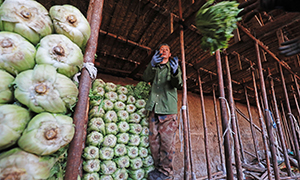
Virtual Event – Evolving effects of COVID-19 on poverty and food security: What are we learning from China?
After the COVID-19 outbreak began in December in Hubei Province, China locked down many areas to control the spread of the disease, and the economy ground to halt. Since the easing of restrictions in April, life has largely returned to normal and many economic activities have resumed. However, the lockdowns have had significant—and still not […]
-
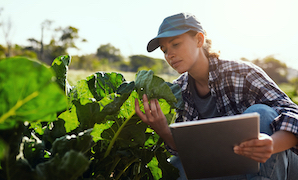
Virtual Event – The European Green Deal: The Force of the EU’s Farm to Fork Strategy and Biodiversity Strategy to Build Healthy and Sustainable Food Systems
Co-Organized by the European Commission and IFPRI
A discussion on the force of the EU's Farm to Fork Strategy & Biodiversity Strategy and building healthy & sustainable food systems.
Watch Video
-
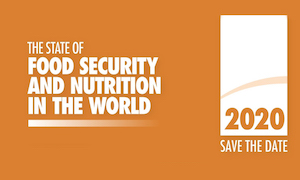
Virtual Event – Transforming Food Systems for Affordable, Healthy and Sustainable Diets for All: A High-Level Discussion on the Key Findings of the 2020 State of Food Security and Nutrition in the World Report
Co-Organized by FAO North America and IFPRI
Food systems and affordable, healthy & sustainable diets. Key findings of the 2020 SOFI.
Watch Video -

Virtual Event – Hindsight is 2020: Reflecting on IFPRI’s ‘2020 Vision Initiative’
Discussion on the achievements and remaining challenges since IFPRI’s landmark series that aimed to catalyze global action to eradicate hunger & malnutrition while protecting the environment.
Watch video -
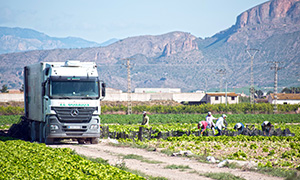
Virtual Event – How are food businesses coping with COVID-19 and its aftermath?
How are private food businesses adjusting to shifts in food demand and food safety requirements, on the one hand, and risks of supply chain disruptions, on the other? Watch video.
-
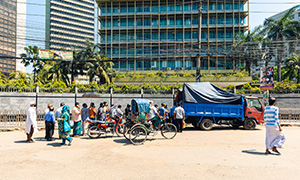
Virtual Event – Social Safety Nets and COVID-19: Can we protect food security and nutrition?
Co-Organized by IFPRI and the CGIAR Research Program on Policies, Institutions, and Markets (PIM)
How have social safety net programs responded to COVID-19? Are food security & nutrition issues effectively addressed with these responses? What and where are opportunities and future challenges? Watch Video
-
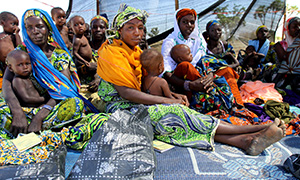
Virtual Event – Micronutrients in emergencies: How can we prevent an increase in hidden hunger?
Co-Organized by the Micronutrient Forum and IFPRI
The event video, presenter slides, podcast, and a blog will be available in the days following the event. The COVID-19 pandemic is transforming our world. We are seeing rapid changes in areas such as health care delivery, food security, agriculture, and international aid prioritization. In addition to the immediate impact to health and society, the […]
-

Evento Virtual – Alimentación en tiempos de pandemia: realismo sin magia en ALC
América Latina y el Caribe (ALC) es uno de los principales contribuyentes a la seguridad alimentaria mundial y a los servicios ecosistémicos globales, incluidos el secuestro de CO2 y la biodiversidad. Sin embargo, la región también está sufriendo de degradación ambiental, particularmente a través de las altas tasas de deforestación. Además, ALC es la región […]
-
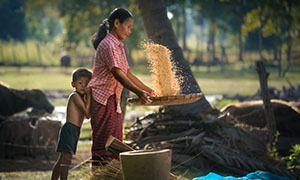
Virtual Event – No backsliding: How can we re-orient food systems and health systems to protect nutrition and healthy diets in the context of COVID-19?
Co-Organized by IFPRI and the CGIAR Research Program on Agriculture for Nutrition and Health (A4NH)
How can we re-orient food systems and health systems To protect nutrition and healthy diets in the context of COVID-19?
Watch video
-
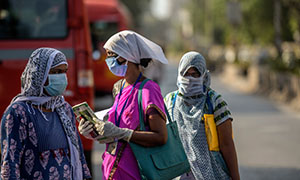
Virtual Event – What do we need for a gender-sensitive Covid-19 response in agriculture and food security? Insights from research and practice
Researchers, civil society members, and development assistance orgs share their perspectives on the elements of a gender-sensitive COVID-19 response.
Watch video
-
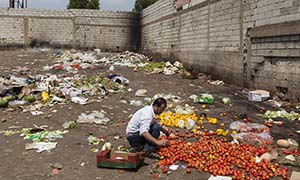
Virtual Event – Food Loss and Waste – Can we end it by 2030 while dealing with the COVID-19 pandemic?
Co-Organized by IFPRI, Champions 12.3, Embassy of Denmark in Washington, DC, World Resources Institute (WRI)
Panelists discuss whether the global community can end food loss and waste by 2030 while dealing with the COVID-19 pandemic.
Watch video event
-
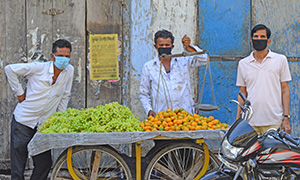
Virtual Event – COVID-19: Emerging problems and potential country-level responses
IFPRI experts examine what to expect, and how developing countries can respond in ways that promote food security, nutrition, and greater equity.
Watch video
-

Virtual Event – Agricultural Support Reform and GHG Emissions
Governments spend over $US 700 billion dollars per year on agricultural support measures such as subsidies, border price distortions and investments in raising productivity. Agriculture and land use change contribute close to a quarter of global greenhouse gas emissions policy makers have little information on the implications of agricultural support for emissions. This seminar examines […]
-
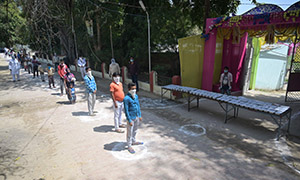
Virtual Event – COVID-19: Implications for Global and Country-Level Food Security, Nutrition, and Poverty
COVID-19 is threatening food security and livelihoods, particularly in developing countries. IFPRI researchers are taking an early look at global- and country-level implications.
Watch the recorded event.
-
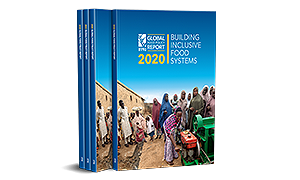
VIRTUAL LAUNCH EVENT – 2020 Global Food Policy Report: Building Inclusive Food Systems
Food systems are critical to every aspect of people’s well-being, from what they eat to how they earn their livelihoods to their options for the future. IFPRI’s flagship report highlights the critical role that inclusive food systems can play in improving nutrition, creating employment and income-generating opportunities, and increasing empowerment of disadvantaged groups. Overview Presenters […]
-
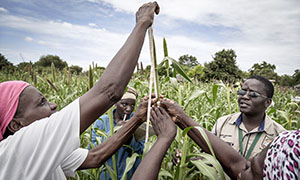
Reflections with Ousmane Badiane
As Ousmane Badiane leaves IFPRI at the end of February, please join us for this special event reflecting on his work for IFPRI and for Africa. Ousmane’s contributions to transforming Africa’s agriculture sector are widely recognized throughout the development community. As IFPRI’s Director for Africa, Ousmane significantly expanded IFPRI’s engagement in Africa and played a key […]
-
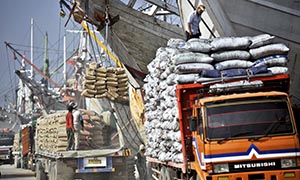
Greening of trade policies: The EU-Mercosur agreement
The 2030 Agenda calls on all countries to use trade to create a more sustainable, inclusive, and resilient world. We must ensure that the global trading system actively contributes to sustainability. Trade policies offer an opportunity to promote a broad shift in production and consumption that helps consumers to make better choices. The European Union-Mercosur […]
-
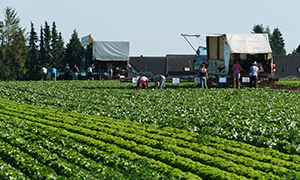
European Green Deal — Farm to Fork Strategy for Sustainable Food
Co-Organized by IFPRI and the European Union
The “Farm to Fork” Strategy, part of the European Commission’s Green Deal, is integral to Europe’s ambitious response to climate change challenges along the food chain. The “Farm to Fork” strategy reflects the ongoing transformation of food systems worldwide and the goal of making Europe’s food system the gold standard for sustainability. “Farm to Fork” […]
-

The Making of a Blue Revolution in Bangladesh: Enablers, Impacts, and the Path Ahead for Aquaculture
A rapid increase in aquaculture production in Bangladesh has lowered fish prices, increased protein consumption, and reduced poverty. The Making of a Blue Revolution in Bangladesh offers a valuable case study of how this transformation in the fish value chain has occurred and how it has improved the lives of both fish producers and fish […]
-
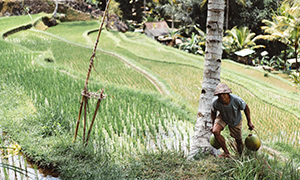
The changing challenges of hidden hunger: Micronutrients within the nutrition and development landscapes
Co-Organized by the Micronutrient Forum and IFPRI
Current global challenges in malnutrition and other development goals call for integrated, multi-sectoral approaches focusing on the entire food system, leading to healthier and sustainable diets for all. Among these challenges is micronutrient deficiency, known as “hidden hunger.” Micronutrients—vitamins and minerals needed in only very small quantities but with huge impacts on human health and […]
-
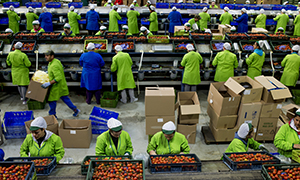
Trade for Secure, Diverse and Sustainable Nutrition: Key Messages from the Global Forum for Food and Agriculture (GFFA) 2020 Event
Co-Organized by IFPRI and the Embassy of the Federal Republic of Germany
The 2020 Global Forum for Food and Agriculture event “Food for All! Trade for Secure, Diverse and Sustainable Nutrition” brought together 16 Expert Panels hosted by policymakers, scientists, entrepreneurs, and stakeholders from civil society to discuss the role of international trade in achieving a healthy and sustainable food system. International trade has long helped reduce […]
-
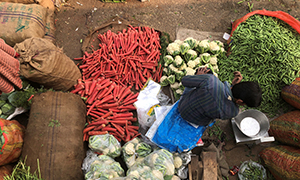
Food Systems Dashboard: How it will work
Co-Organized by IFPRI, CGIAR Research Program on Agriculture for Nutrition and Health (A4NH), Global Alliance for Improved Nutrition (GAIN), and Johns Hopkins University (JHU)
Our food systems are bankrupting our health systems, accelerating climate change and using natural resources in an unsustainable way. Most people agree they need to be transformed to change this. But how? Food systems are complex and offer many entry points for change. In addition, the data to describe food systems and their performance is […]
-
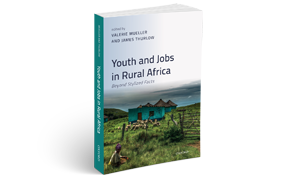
Youth and Jobs in Rural Africa: Beyond Stylized Facts
Co-Organized by IFPRI and the CGIAR Research Program on Policies, Institutions, and Markets
The share of working-age young people in Africa south of the Sahara has risen due to past declines in mortality coupled with high fertility. This “youth bulge” has created a sense of urgency among national governments and the international development community as the prospect of widespread youth unemployment in Africa, and the social instability and […]
-
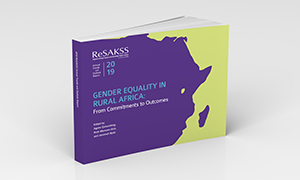
Gender Equality in Rural Africa: From Commitments to Outcomes
Co-Organized by the Regional Strategic Analysis and Knowledge Support System (ReSAKSS) and IFPRI
Gender equality has been recognized as an important goal in itself as well as important to achieving other development objectives, such as reducing hunger and poverty. This is true worldwide and especially so in rural Africa, where women play an important role in the agricultural sector. Gender-sensitive policies and programming are central to effectively advancing […]
-

Transforming Africa’s Food System with Digital Technologies
Co-Organized by the Malabo Montpellier Panel and IFPRI
African countries have made considerable progress in increasing agricultural productivity and reducing hunger, malnutrition, and poverty. But continued population growth, urbanization, changing diets, and climate change are putting pressure on food systems not only to provide more food but also to make more diverse and nutritious foods available and accessible. New digital technologies and services […]
-
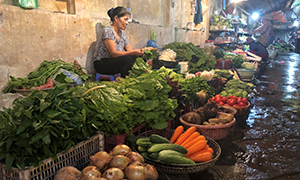
Food System Transformations: National Actions in a Globalized World
Co-Organized by the CGIAR Research Program on Agriculture for Nutrition and Health (A4NH) and IFPRI
Food systems in developing countries are undergoing a rapid transformation shaped by global and regional events. But country actions will be critical in shaping future food system outcomes. Some countries are taking a systemic approach to assessing and acting on food system transformation—considering consumption and food environments, food supply and sustainability, health, and socioeconomic outcomes. […]
-
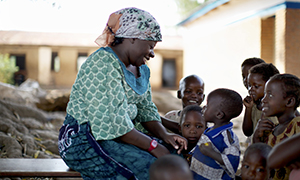
Using Malawi’s Community-Based Childcare Centers to Implement an Agriculture and Nutrition Intervention
Co-Organized by IFPRI, the University of Washington led SEEMS nutrition project, and the CGIAR Research Program on Agriculture for Improved Nutrition and Health (A4NH)
This policy seminar focuses on research undertaken in Malawi by IFPRI, the University of Malawi, Save the Children, and University of Washington in support to the Government’s early childhood development program. Community-based early childhood development centers in Malawi have been used as a platform to implement an integrated agriculture and nutrition behavior change intervention. Presentations […]
-
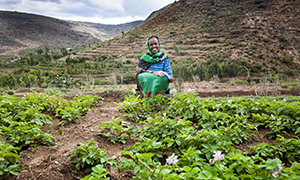
Crafting the Next Generation of CGIAR Gender Research
Co-Organized by the CGIAR Research Program on Policies, Institutions, and Markets and IFPRI
How can agriculture and natural resource management advance gender equality? Asking this question rather than only its inverse — what does gender analysis bring to agriculture and natural resource management? — elevates the objective of gender equality within CGIAR, challenges boundaries in thinking about gender in agriculture, and stimulates new and creative perspectives. Gender researchers […]
-
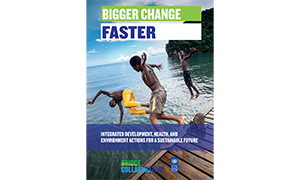
Bigger Change Faster: Integrated Development, Health, and Environment Actions for a Sustainable Future
Co-Organized by IFPRI, The Nature Conservancy, PATH, and Duke University
From climate change to malnutrition, poverty to biodiversity loss, air pollution to humanitarian crises—the problems facing our world today are deeply interconnected. Holistic initiatives to address these challenges, notably the Sustainable Development Goals (SDGs), are becoming more common. But efforts siloed within the development, health, or environment communities remain the norm. This seminar discusses the […]
-
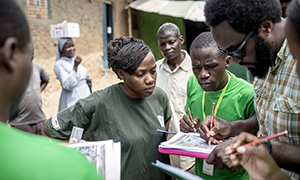
Information, Governance, and Rural Service Delivery
Co-Organized by IFPRI and the CGIAR Research Program on Policies, Institutions, and Markets (PIM)
How can information be harnessed to improve rural service delivery and governance? The articles in the new special issue of the journal World Development on “Information, Governance, and Rural Service Delivery,” coedited by Katrina Kosec (IFPRI) and Leonard Wantchekon (Princeton University), seek to answer this question. In this seminar, speakers will give an overview of […]
-
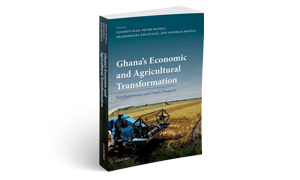
Ghana’s Economic and Agricultural Transformation: Past Performance and Future Prospects
Co-Organized by IFPRI and the CGIAR Research Program on Policies, Institutions, and Markets (PIM)
Ghana’s Economic and Agricultural Transformation reveals that despite over 30 years of continuous growth in per capita income and rapid urbanization, Ghana has not industrialized and most of its workers remain trapped in low productivity work in agriculture and services. Using empirical analysis of the performance of Ghana’s economy and its agriculture sector over the […]
-
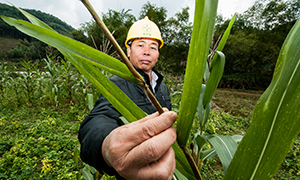
Adapting to New Climate Realities: Doing More, Better, and New
The Global Commission on Adaptation seeks to highlight the adaptation challenges confronting poor people, notably poor farmers whose livelihoods are fragile and dependent on the weather and launch a year of action to begin rising to meet this challenge. In this seminar, IFPRI researchers advance paths towards meeting the adaptation challenge by doing more, better, […]
-

Nurul Islam: Reflections from 60+ Years of Development
Nurul Islam’s contribution to development reflects his remarkable career—which ranged from research and university teaching, to heading a prestigious research institute, to becoming a freedom fighter, to running the first Planning Commission in Bangladesh, to serving as Assistant Director General at FAO. Join us as he reflects on his over 60 years of work in […]
-
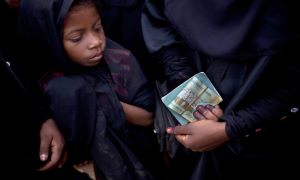
Impacts of Cash Transfers on Preventing Malnutrition in Yemen
Co-Organized by IFPRI and the CGIAR Research Program on Policies, Institutions, and Markets (PIM)
An impact evaluation of Yemen’s Cash for Nutrition program provides new evidence of the benefits of “cash plus” transfer programs to meet nutritional needs in conflict situations—a context in which rigorous evidence is scarce. This event will review the findings on the combination of cash transfers with nutritional education provided by the Yemen Social Fund for […]
-
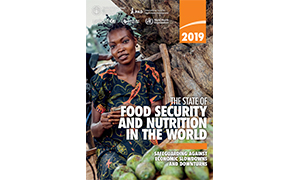
Discussion on the Key Findings of FAO’s 2019 State of Food Security and Nutrition in the World Report
Co-Organized by FAO North America and IFPRI
FAO’s 2019 State of Food Security and Nutrition in the World (SOFI) report highlights that global food insecurity and malnutrition, including obesity, persist and remain stubbornly high with approximately 820 million people continuing to suffer from hunger and nearly 2 billion people experiencing some form of malnutrition. According to the report, which offers a […]
-
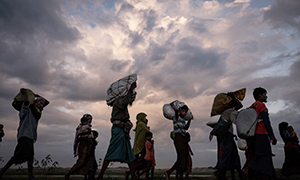
The Forced Exile of Rohingyas into Bangladesh: Economic and Nutritional Outcomes and Future Policy Options
More than 600,000 Rohingya people fled violence in Myanmar in 2017 and crossed into southeastern Bangladesh, joining 200,000 to 400,000 other forcibly displaced Myanmar nationals. This seminar will include analysis of incomes, employment, food security, and nutrition based on a household survey conducted in camps housing Rohingyas and in neighboring host communities. Model simulations […]
-
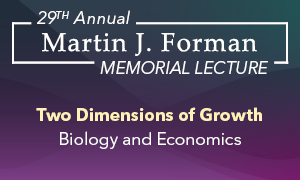
Two Dimensions of Growth: Biology and Economics
29th Annual Martin J. Forman Memorial Lecture
There is extensive evidence that reducing undernutrition brings considerable economic benefits, often far greater than the costs of investing in nutrition programs. But the evidence on a global scale offers only a first step toward guidance on priorities for investing in young children’s nutrition. The 29th annual Martin J. Forman Memorial lecture will explore […]
-
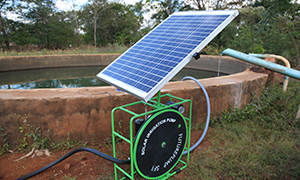
Faster than you think: Renewable Energy and Developing Countries
Large and rapid declines in costs for renewable energy systems, particularly solar and wind power, and efforts to limit greenhouse gas emissions are reshaping energy systems globally. Expanding renewable energy systems have great potential to achieve widespread electricity access, improve food security, and reduce emissions. Developing countries with high solar potential have a significant opportunity […]
-
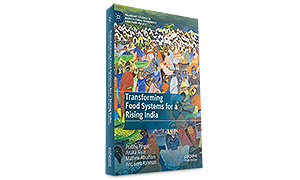
Transforming Food Systems for a Rising India
The Indian growth story is paradoxical—despite notable economic progress, persistent food insecurity, malnutrition, and high levels of stunting make India an outlier among developing countries. Growing problems of obesity, regional inequality, and climate change compound these issues, threatening a future public health crisis. Using a food systems lens, Transforming Food Systems for a Rising India […]
-

The Shape of Food Security – A Presentation on the Creation, Life, and Publications of Food Security
Ten years ago, plant pathologists Richard Strange and Peter Scott founded the journal “Food Security—the Science, Sociology and Economics of Food Production and Access to Food” in response to Norman Borlaug’s challenge to “do more for food security.” This seminar will take a look back over the last decade to identify some key trends in […]
-
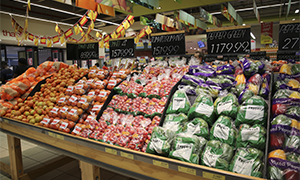
What is the Cost of a Healthy Diet? New Price Indexes Reveal Changes in Affordability of Nutritious Foods
Interventions and innovation can lower the price of individual foods, but healthy eating depends on access to a mix of foods from diverse sources. How has the overall cost of meeting dietary needs changed over time worldwide, and in Africa and South Asia specifically? What determines the cost of a healthy diet? And how does […]
-
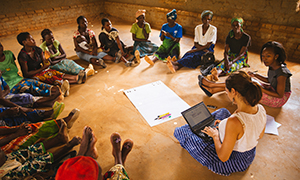
Lessons from IFPRI Country Programs on Informing Policy Decisions and Strengthening Capacity
Co-Organized by IFPRI and the CGIAR Research Program on Policies, Institutions, and Markets (PIM)
IFPRI and the CGIAR Research Program on Policies, Institutions, and Markets (PIM) recently completed a joint stock taking study of IFPRI’s experience with country programs and its more general policy of outposting research staff to developing countries. Several reports have been produced as part of the study and placed on the IFPRI website along with […]
-
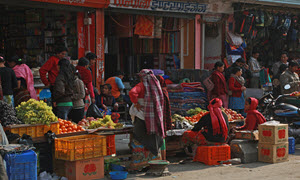
Urban Food Systems for Better Diets, Nutrition, and Health
The explosive growth of cities all over the world has led to major shifts in diets, with serious consequences for the health and nutrition of the urban poor, especially in rapidly urbanizing low- and middle-income countries in Africa and Asia. To reverse this trend, we must take into account the realities of urban life […]
-
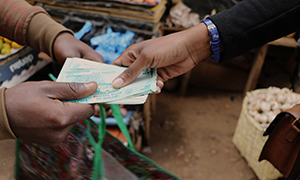
Building Resilience through Financial Inclusion: A Review of Existing Evidence and Knowledge Gaps
Co-Organized by IFPRI and Innovations for Poverty Action (IPA)
In low-income countries, disasters induced by climate change are giving rise to new risks, shocks, and stresses among already vulnerable households. Well-designed financial products and services could play a role in increasing low-income families’ resilience by helping them prepare for the uncertain: financial inclusion can facilitate efforts to reduce risks, increase investments, and bounce back […]
-
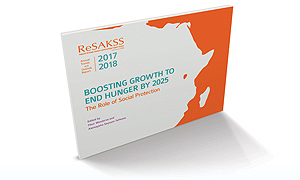
Boosting Growth to End Hunger by 2025 in Africa: The Role of Social Protection
Africa has the world’s largest proportion of poor and hungry people, but the lowest rate of coverage by social protection programs. Demand for social protection is growing in Africa, reflecting faster economic growth, rapid urbanization, and more open and pluralistic societies. In the 2014 Malabo Declaration, African leaders called for integrating social protection with measures […]
-
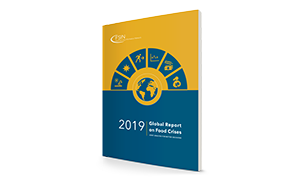
Technical Discussion on the 2019 Global Report on Food Crises: Working together to prevent food crises
Co-Organized by IFPRI, FAO North America and Food Security Information Network (FSIN)
Conflict and extreme climate events are contributing to rising levels of food insecurity and malnutrition. In 2018, some 113 million people in 53 countries experienced acute food insecurity. The Global Report on Food Crises provides the latest estimates of severe hunger and an analysis of countries chronically vulnerable to food crisis. The report’s findings are […]
-

Global Survey of School Meal Programs: Implications & Perspectives
Co-Organized by Global Child Nutrition Foundation (GCNF) and IFPRI
The Global Child Nutrition Foundation (GCNF) is conducting a Global Survey of School Meal Programs in 2019 (and again in 2021)* to better understand how countries around the world implement school meals and facilitate learning across geographies. Join GCNF and partners to learn more about the Survey, review preliminary data, and discuss insights, ideas, […]
-
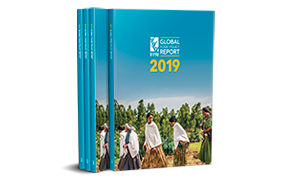
LAUNCH EVENT: 2019 Global Food Policy Report
Washington, DC, USA
IFPRI’s flagship report reviews the major food policy issues, developments, and decisions of 2018, and considers challenges and opportunities for 2019 at the global and regional levels. Rural people around the world continue to struggle with food insecurity, persistent poverty and inequality, and environmental degradation. This year’s Global Food Policy Report highlights the urgency […]
-
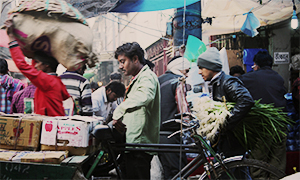
Who Will Feed India? The Political Economy of India’s Agricultural Policies and Implications for the Future
Co-Organized by IFPRI and the Center for the Advanced Study of India (CASI)
India’s population will soon be larger than China’s, economic growth is averaging 7 to 8 percent, and cities are expanding rapidly. Growing food, feed, and fiber needs are increasing pressure on India’s agriculture. With limited land and falling water tables, can India produce enough food for her population or will the country become a major […]
-
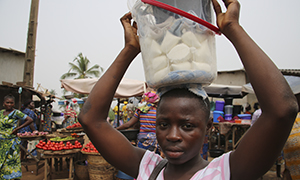
Food Markets and Nutrition in the Developing World: Results from ARENA II
Markets play a key role in delivering food and nutrition, even for poor and remote rural households. But nutrient-rich foods, especially animal-sourced foods, are very expensive in poor countries, suggesting that markets for perishable but nutritious foods are not functioning well. Both scientific research and real-world programs have largely focused on farm-level interventions to diversify […]
-
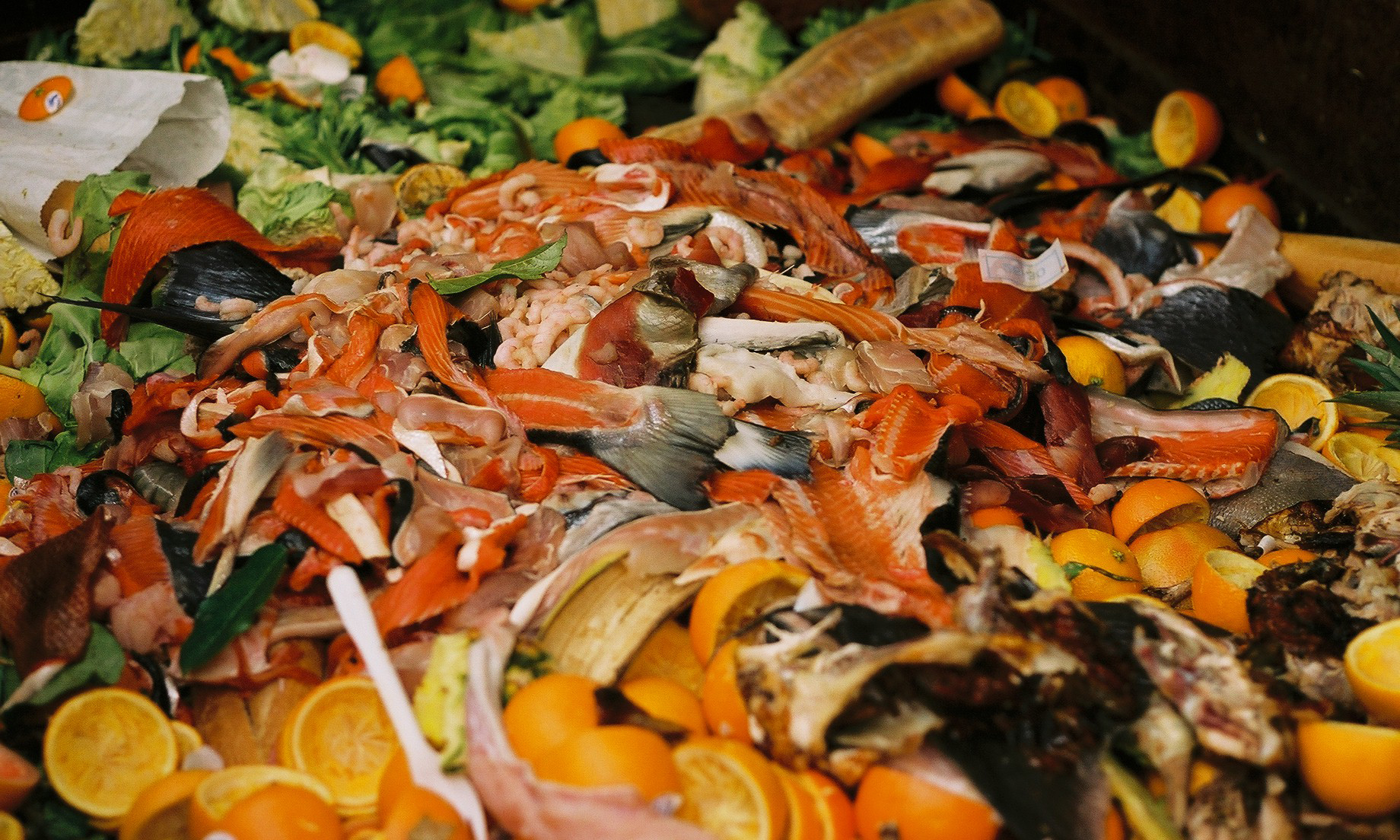
Reducing Food Loss and Waste – Making it Personal
Co-Organized by IFPRI, Stop Wasting Food / Selina Juul, World Resources Institute (WRI), Champions 12.3, and the Embassy of Denmark in Washington, DC
An astounding one-third of all food is lost or wasted between the farm and the fork. What can people-from farmers to consumers-do to address this challenge? Join us to learn about innovative solutions and share your perspectives on how to take them to scale. Welcome Moderator Setting the Scene Rapid-Fire Presentations Closing Remarks
-
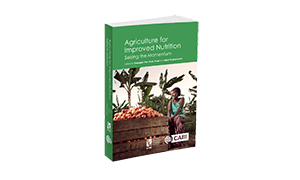
Agriculture for Improved Nutrition: Seizing the Momentum
It is an opportune time to be working in the fields of agriculture and nutrition. Every day, researchers are producing more evidence on the agriculture-nutrition nexus; professionals are stepping out of silos to work across sectors; and people and institutions are improving their capacity to carry out this work. The momentum built during the past […]
-
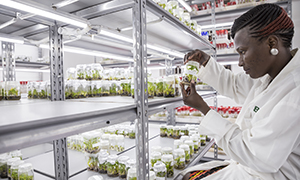
Transforming Food Systems to Deliver Healthy, Sustainable Diets : The View from the World’s Science Academies
Co-Organized by IFPRI and InterAcademy Partnership
The InterAcademy Partnership (IAP), a global network of science academies, recently brought together regional networks of science academies from four continents—Africa, the Americas, Asia, and Europe. This project aimed to spark a new global commitment to research the opportunities and challenges facing food and nutrition security and agriculture today. This seminar will provide details […]
-
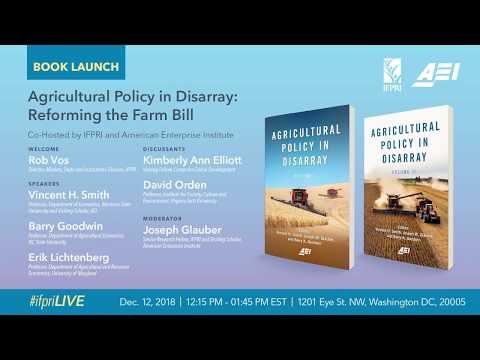
Agricultural Policy in Disarray: Reforming the Farm Bill
Co-Hosted by IFPRI and American Enterprise Institute
The 2018 Farm Bill, if passed, will set US farm policy for the next 5 years and cost some US $87 billion annually. Some of this spending will go toward the US farm safety net, which includes price and income support programs, conservation programs, and crop insurance. Co-hosted with the American Enterprise Institute (AEI), this […]
-
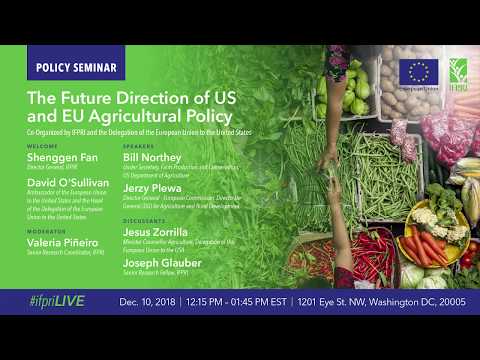
The Future Direction of US and EU Agricultural Policy
Co-Organized by IFPRI and the Delegation of the European Union to the United States
US and European agricultural policies have evolved over similar paths, shaped by the globalization of agricultural markets, consumer interests, environmental pressures, fiscal constraints, and World Trade Organization disciplines. As the US debates the 2018 Farm Bill and the EU debates a future Common Agricultural Policy for 2020, what can we expect for the future of agricultural […]
-
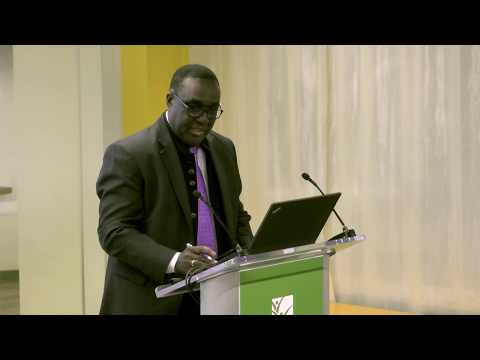
Agricultural and Food Systems Transformation for Better Food Security and Nutrition in Eurasia
Co-Organized by IFPRI, the World Bank, and CGIAR Research Program on Policies, Institutions, and Markets (PIM)
Significant changes in Eurasia’s agri-food systems and regional trade in the 2000s have had major impacts on food and nutrition security. This seminar will discuss recent developments in the political economy and food and nutrition security policies across six diverse countries in the region—Armenia, Kazakhstan, Kyrgyzstan, Russian Federation, Tajikistan, and Uzbekistan—and what the agri-food […]
-
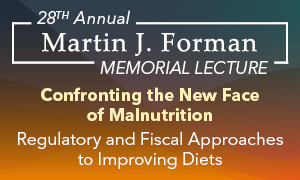
Confronting the New Face of Malnutrition: Regulatory and Fiscal Approaches to Improving Diets
28th Annual Martin J. Forman Memorial Lecture
View the video, presentation, and podcast from the event.
-
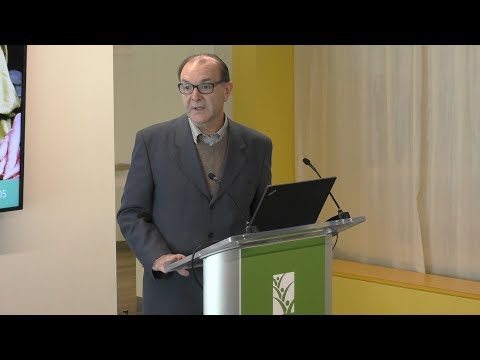
Agriculture, Structural Transformation and Poverty Reduction
Some New Insights
Agricultural development has traditionally been among the most effective tools for reducing poverty and central to development efforts. But does this still stand today, as countries have urbanized and the world has opened up? This seminar will present key results from a recent Special Issue of World Development that add important nuances to our understanding of the critical […]
-
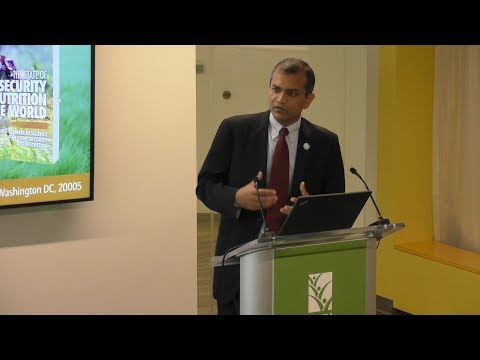
Discussion on the Key Findings of FAO’s 2018 State of Food Security and Nutrition in the World Report
Co-Organized by FAO and IFPRI
FAO’s 2018 State of Food Security and Nutrition in the World (SOFI) report highlights that for the third consecutive year global hunger has risen, now standing at 821 million people today compared to 804 million last year. This three-year increase represents a reversal of nearly a decade of positive trends in the fight against global […]
-
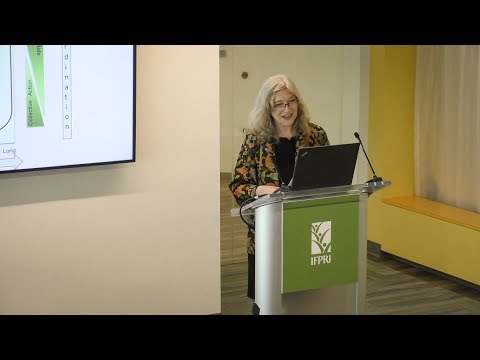
The Future of the Commons
Co-organized by IFPRI, the International Association for the Study of the Commons (IASC), and the CGIAR Research Program on Policies, Institutions, and Markets (PIM)
2018 marks the 50th anniversary of the publication of “The Tragedy of the Commons” by Garret Hardin. Its widely accepted message about the inevitable degradation of shared resources prompted privatization or nationalization of much common property. Yet sustainable management of the commons has a long history, and new evidence is increasing our understanding of effective […]
-
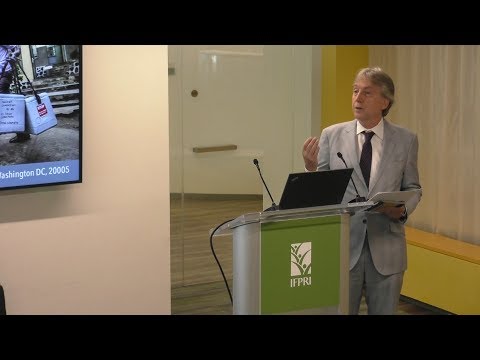
Nigeria’s Solar-Powered Cold Chain Business
Co-Organized by IFPRI and the Global Cold Chain Alliance
Cold storage and transportation are critical for agricultural productivity and reducing food loss/waste. Nigeria's "cold hub" experience sheds light on successes.
-

Food Citizenship
Food system advocates in an era of distrust
The global food system is the largest sector of the world’s economy, and critical for the health of our planet—from land and water resources to plants, animals, and people. Managing this system is a huge responsibility, requiring women and men who are efficient, creative, and caring. Public, private, and not-for-profit managers are recognizing the need […]
-
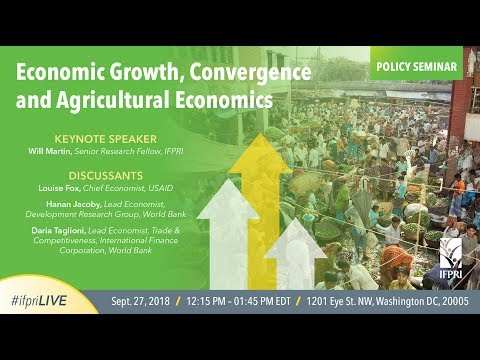
Economic Growth, Convergence and Agricultural Economics
Growth in many developing countries has surged in the last 25 years, driving major shifts in food demand, production, policies, and trade. What do these unprecedented changes mean for our research agenda? This seminar will look at the impacts of rapid developing country growth and convergence with developed countries, and the implications for future […]
-

How the development agenda is evolving: implications for policy research
On September 12th, Homi Kharas, Interim Vice President and Director – Global Economy and Development, Brookings Institution delivered the keynote address at IFPRI’s annual staff retreat during which he explored the implications for policy research of the evolving development agenda.
-
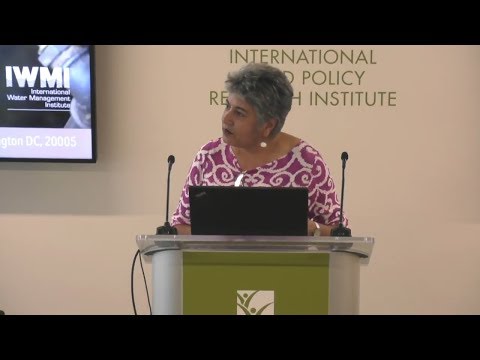
Water Security in a Changing World
Co-Organized by International Water Management Institute (IWMI) and IFPRI
Introductory Remarks Overview Panelists Closing Remarks Moderator Q&A Video Secure water supplies are critical to future sustainable economies and societies. Unprecedented human impact is directly degrading resource quality on every continent and, through global warming, threatens vast change in hydrological systems, with impacts on water availability and access in nearly all parts of the world. […]
-
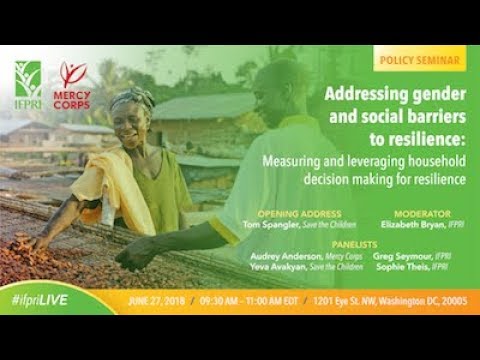
Addressing gender and social barriers to resilience: Measuring and leveraging household decision making for resilience
Co-Organized by IFPRI and Mercy Corps
Opening Address Panelists Moderator Q&A Video The concept of resilience is catching on among humanitarian and development actors seeking to help individuals, households, and communities prepare for, adapt to, and recover from severe shocks and stresses. Many organizations are recognizing that individuals’ resilience capacities and vulnerabilities differ significantly and are shaped by their gender, class, caste, […]
-
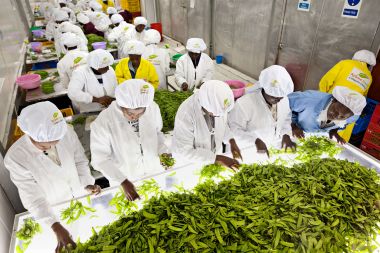
Food Industries for People and Planet
The International Food Policy Research Institute’s (IFPRI) new research program on “Food industries for people and planet” (FIPP) will expand traditional ways of thinking about the global food system and will provide evidence-based policy assessments aimed at making agri-food industries and food systems more inclusive in terms of employment and income opportunities, more efficient in […]
-
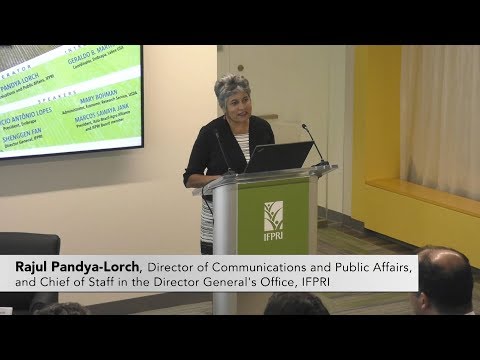
Transforming Agriculture: Experiences and Insights from Brazil and Beyond
Co-Organized by IFPRI and Embrapa
Introductory Remarks Speakers Moderator Q&A Video Successful agricultural transformations around the world provide critical lessons and offer insights into opportunities for other countries seeking to take this step forward. At this special event, we will learn about Brazil’s agricultural transformation from Embrapa’s President, Maurício Lopes. IFPRI Director General Shenggen Fan will share insights from Asian […]
-
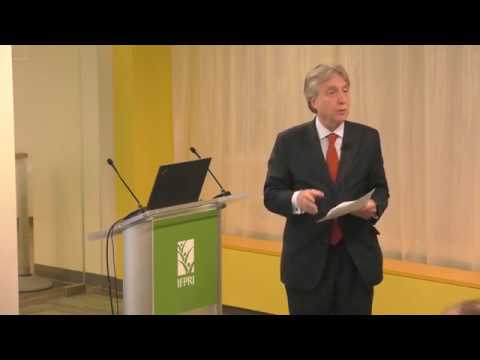
Washington, DC Launch–2018 Global Report on Food Crises: From Humanitarian to Developmental Responses
Co-Organized by IFPRI and Food Security Information Network (FSIN)
Special Remarks Report Overview Panel Closing Remarks Moderator The Global Report on Food Crises provides food security and nutrition analyses from countries that are chronically vulnerable to food crises and have large populations facing acute food insecurity. The Report draws attention to rising levels of food insecurity and malnutrition, particularly associated with conflict and the […]
-
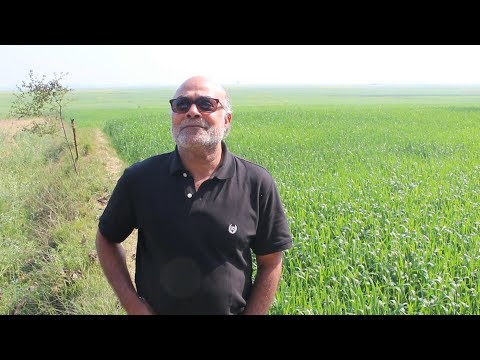
Tales of yield improvement
Where we stand and where we need to go
Rapid Fire Presentations Discussant Reflections Closing Remarks Moderator Q&A Video Yield growth is essential for people and the planet. But what should we breed and for what should we breed under a more erratic climate, growing natural resource scarcity and new disease threats? What is the role for better agricultural and food systems management and […]
-
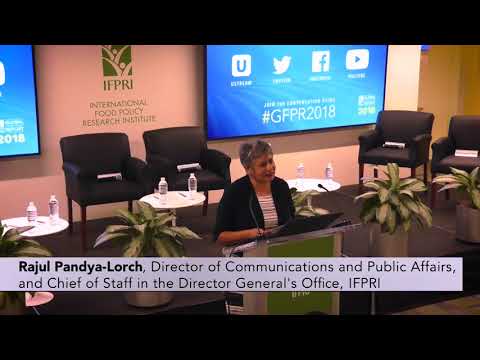
LAUNCH EVENT: 2018 Global Food Policy Report
Washington, DC, USA
SPEAKER Shenggen Fan, Director General, IFPRI MODERATOR Rajul Pandya-Lorch, Director, Communications and Public Affairs, IFPRI PANEL Catherine Bertini, Distinguished Fellow, Global Food and Agriculture, The Chicago Council on Global Affairs; and Fellow, Rockefeller Foundation Shanta Devarajan, Acting Chief Economist and Senior Director for Development Economics (DEC), World Bank Group Dan Glickman, Executive Director, Aspen Institute Congressional Program Danielle Nierenberg, President, Food […]
-
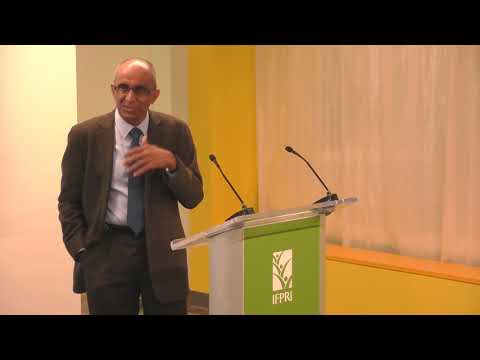
The cocoa coast: The board-managed cocoa sector in Ghana
Speaker Panelists Moderator After almost 20 years of declining cocoa production, Ghana has been able in the last decade to increase the share of export prices going to producers, more than doubling production. Contrary to Washington Consensus prescriptions, these accomplishments were achieved through reforms but without liberalization of domestic and export marketing. The Cocoa Coast: […]
-
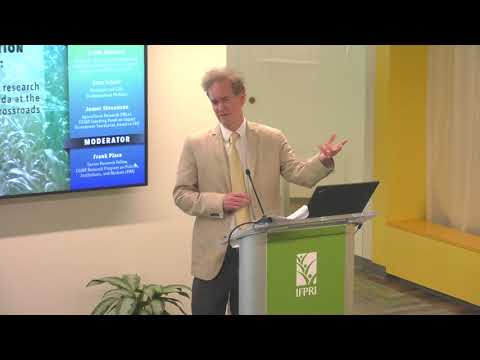
Managing Natural Resources for Sustainable Production Systems: A Research Agenda at the Crossroads
Co-Organized by CGIAR Independent Science and Partnership Council (ISPC); IFPRI; and CGIAR Research Program on Policies, Institutions and Markets
Speakers Moderator Q&A Video In 2015-16, the Standing Panel on Impact Assessment commissioned a set of studies to document the adoption and impact of five well-recognized natural resource practices that were developed, adapted, and promoted by CGIAR centers, research programs and its partners. The practices—conservation agriculture, fertilizer tree systems, alternate wetting and drying (AWD), integrated soil […]
-
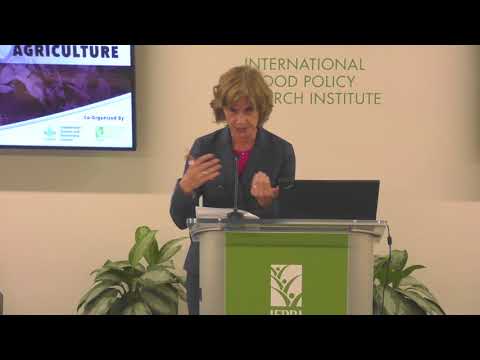
Advancing Research (and Policy) on Nutrition and Agriculture
Speaker Panelists Closing Remarks Moderator Q&A Video Podcast Audio The agricultural sector has long been viewed as a major driver of poverty reduction and food security in developing countries, but is now increasingly asked to contribute to reducing the global burden of undernutrition. The linkages between agriculture and nutrition are complex, however, and not well […]
-
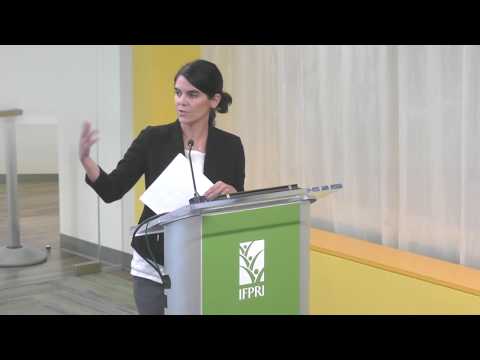
Argentina’s G20 Presidency: Building Consensus for Fair and Sustainable Development
Speakers Moderator What should we expect from Argentina’s G20 presidency? This roundtable event will highlight the challenges and expectations for 2018, focusing on trade, food security, and sustainable agriculture. Participants will look at the new presidency’s priorities, the outcomes of the Think20 (T20) inception workshop, and the lessons learned from the German presidency. Argentine president […]
-
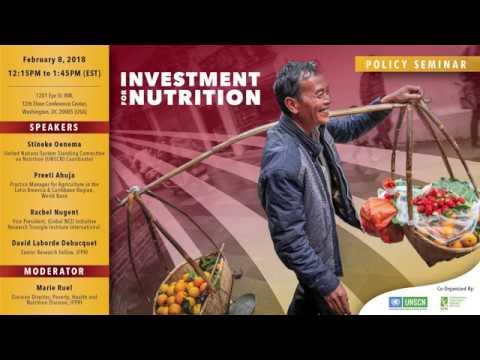
Investment for Nutrition
Co-Organized by UNSCN and IFPRI
Speakers Moderator Today, nearly 1 in 3 persons globally suffers from at least one form of malnutrition – undernutrition, micronutrient deficiency, overweight or obesity – and a large part of the world’s population is affected by diet-related non-communicable diseases (NCDs). The impacts of malnutrition on development, society, health, economies and well-being are serious and lasting, […]
-
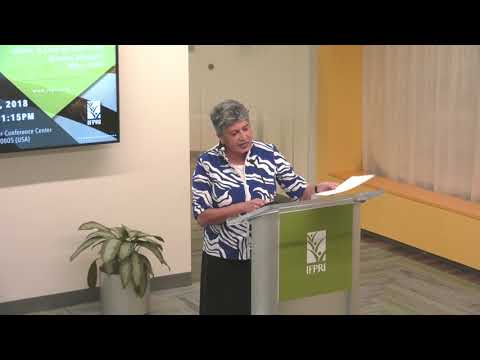
Agricultural Development and Economic Transformation: Promoting Growth with Poverty Reduction
Speaker Moderator This book examines the role of agriculture in the economic transformation of developing low- and middle-income countries and explores means for accelerating agricultural growth and poverty reduction. In this volume, Mellor measures by household class the employment impact of alternative agricultural growth rates and land tenure systems, and impact on cereal consumption and […]
-
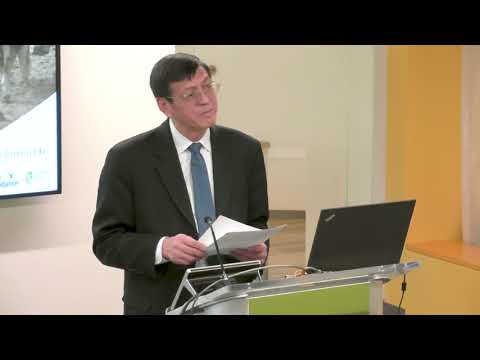
The Future of Livestock: Enhancing sustainability, responsibility and efficiency
Co-Organized by Embassy of the Federal Republic of Germany–Washington, Farm Foundation, and IFPRI
Welcome Introduction Panelists Moderator Closing Remarks Livestock production is facing growing social and environmental demands. Farmers, food producers, consumers, and environmentalists all have different views on addressing these challenges. Starting from a recap of this month’s Global Forum on Food and Agriculture in Germany, expert panelists will look at the critical debates confronting the livestock […]
-
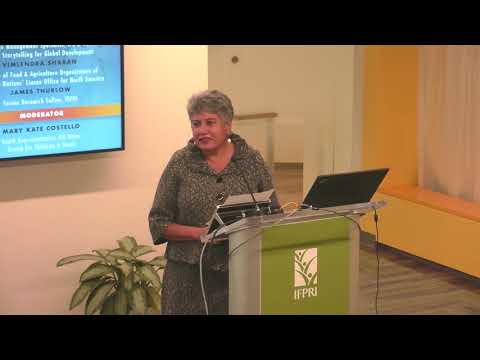
Youth Required: Building Resilient Food Systems for a Sustainable World
Co-Organized by The Hunger Project and IFPRI
Panelists Moderator This youth-led event featured a multigenerational dialogue about the urgent challenges in expanding opportunities in agriculture for today’s youth, with questions put to high-level experts. What are the best practices that will foster youth buy-in to agriculture? How is globalized communication affecting youth goals? Can youth leadership and cross-sectoral partnerships be strengthened to […]
-
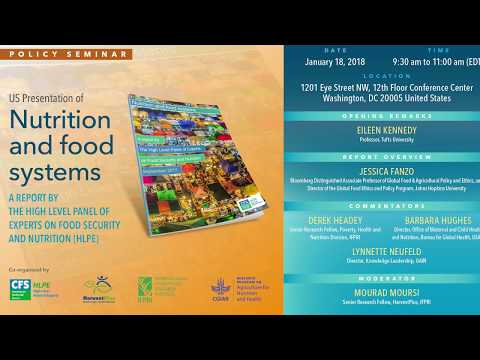
US Presentation of “Nutrition and food systems—A report by The High Level Panel of Experts on Food Security and Nutrition (HLPE)”
Co-Organized by HLPE, HarvestPlus, IFPRI, and A4NH
Opening Remarks Report Overview Commentators Moderator Worldwide, one person in three is malnourished today and one in two could be malnourished by 2030 if nothing is done. While hunger remains a critical concern, overweight and obesity are rapidly increasing all over the world, including in low-income countries. Therefore malnutrition in all its forms – undernutrition, […]
-

Investing in Research – new evidence showing how a nutrition-sensitive agriculture program improves children’s nutritional status
Co-Organized by IFPRI, HKI, and A4NH
Speakers Panelists Moderator Nutrition-sensitive agriculture programs can improve nutrition outcomes for young children, however documentation of the extent of their effectiveness has been limited. Recent evidence from Burkina Faso published by IFPRI and Helen Keller International (HKI), demonstrated the effectiveness of HKI’s nutrition-sensitive agriculture program for decreasing child anemia, wasting and diarrhea. Although the program […]
-
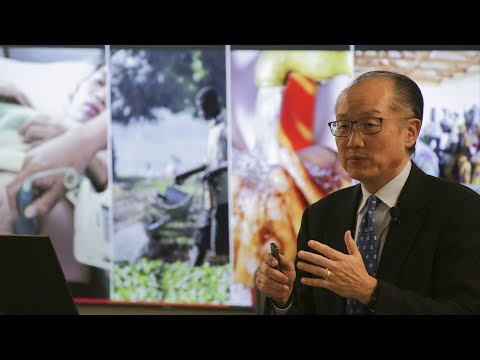
Building New Foundations of Human Solidarity
27th Annual Martin J. Forman Memorial Lecture
Jim Yong Kim, President, The World Bank, speaks on "Building New Foundations of Human Solidarity."
-
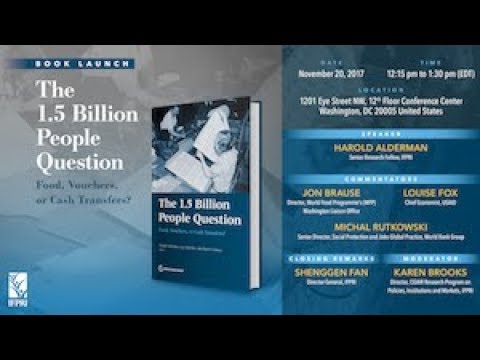
The 1.5 Billion People Question: Food, Vouchers, or Cash Transfers?
Speaker Commentators Closing Remarks Moderator With 1.5 billion people covered globally, food and voucher programs provide an important lifeline for the poor and vulnerable. The book –The 1.5 Billion People Question: Food, Vouchers or Cash Transfers? –reveals that while countries increasingly support people with cash as a form of safety net, food-based programs are still […]
-
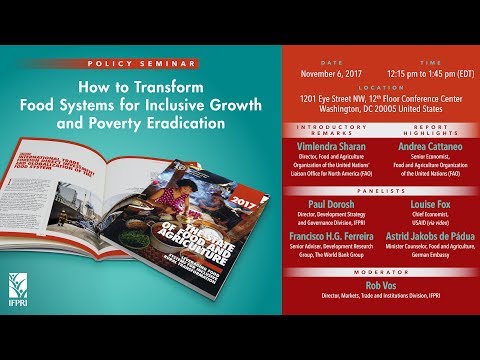
How to transform food systems for inclusive growth and poverty eradication
Introductory Remarks: Report Highlights: Panelists: Moderator: One of the greatest challenges today is to end hunger and poverty while making agriculture and food systems sustainable. The 2017 edition of FAO’s The State of Food and Agriculture (SOFA) presents strategies that can leverage the potential of food systems to become the engine of inclusive economic development […]
-
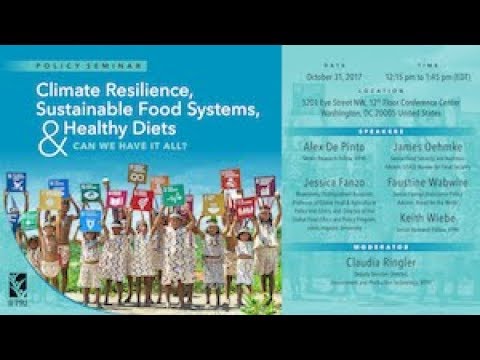
Climate resilience, sustainable food systems, and healthy diets: Can we have it all?
Speakers: Moderator: The upcoming COP23 will focus attention on how to achieve the goals set by the Paris Agreement while also pursuing the Sustainable Development Goals. Meeting these goals will require long-term planning capacity at the country level. New research from IFPRI and partners provides insight into tools and approaches—including system thinking, multi-objective analysis, and […]
-
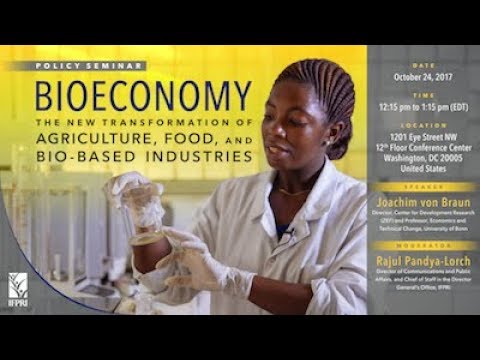
Bioeconomy – the new transformation of agriculture, food, and bio-based industries – implications for emerging economies
Speaker: Moderator: Bioeconomy is the knowledge-based production and utilization of biological resources, innovative biological processes and principles to sustainably provide goods and services across all economic sectors. It employs biomimicry, and utilizes biosciences to transform established economic sectors, such as chemical industries, pharmaceuticals, food, and construction industries into sustainable ones. The bioeconomy has been rapidly […]
-

Effects of the United States Farm Bill on Developing Countries
Co-Hosted by IFPRI and American Enterprise Institute (AEI)
Speakers Discussants Moderator The US Congress is currently debating the 2018 farm bill—legislation that will guide farm program spending from 2019 to 2023. Most US farm policies have their roots in the New Deal legislation of the 1930s and began as temporary measures to improve farm incomes. US policy has moved away from direct market […]
-
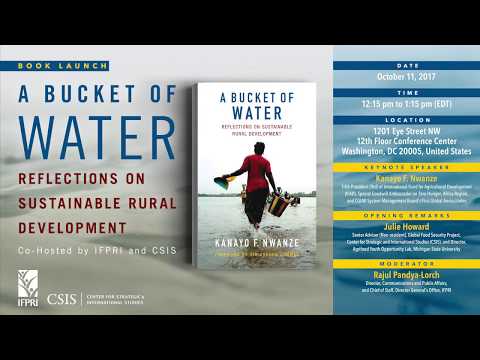
“A Bucket of Water: Reflections on Sustainable Rural Development”
Co-Hosted by IFPRI and CSIS
Keynote Speaker: Introduction: Moderator: Closing Remarks: The Sustainable Development Goals (SDGs), adopted by 193 countries in 2015, set clear targets for ending hunger and undernutrition, as well as for resolving issues of poverty, inequality, and the impacts of climate change, by 2030. In addition to significant financial investments, achieving these goals will also require the […]
-
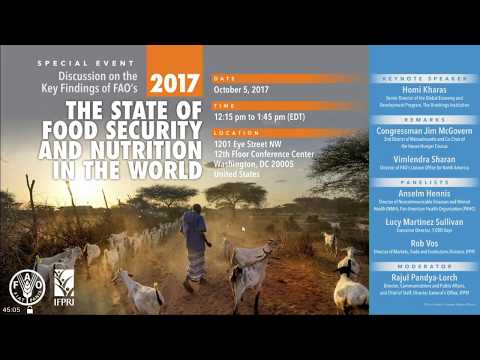
Discussion on the Key Findings of FAO’s 2017 “State of Food Security and Nutrition in the World” Report
Keynote Address: Report Highlights: Remarks: Panelists: Moderator: The 2017 edition of The State of Food Security and Nutrition in the World gives updated estimates of the number and proportion of hungry people on the planet and includes data for the global, regional, and national levels. It offers a significant update on the shifting global milieu […]
-
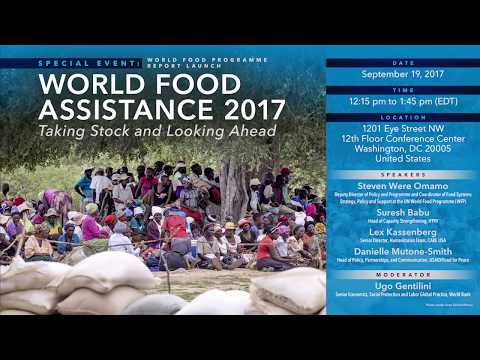
World Food Assistance 2017 – Taking Stock and Looking Ahead
World Food Programme Report Launch
Speakers: Moderator: At a moment when protracted conflicts and fears of famine threaten the lives and food security of millions, WFP has released World Food Assistance 2017, a new global report that details recent trends and patterns in food assistance and demonstrates how food assistance can save lives in humanitarian crises while addressing the root […]
-
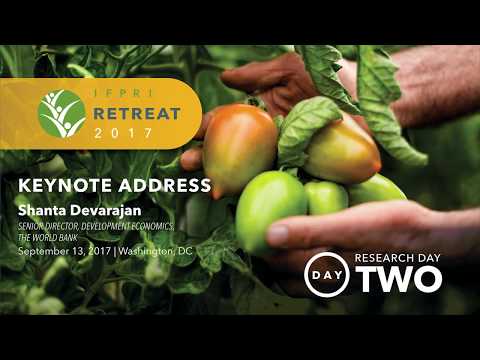
What to do when markets and governments fail poor people
How to overcome market failures was once the key question underlying development research. A primary conclusion of this research was that governments had to step in to resolve these market failures, for example by providing free public services or protecting infant industries. However, many of these interventions have themselves failed the poor people they were […]
-
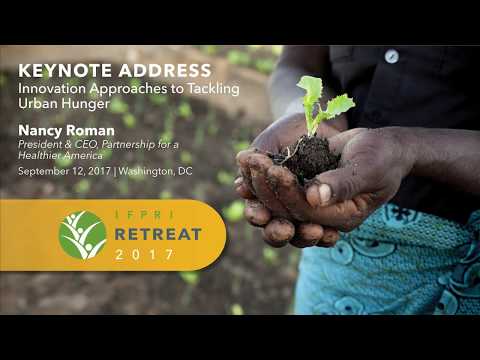
“Innovative Approaches to Tackling Urban Hunger and Malnutrition”
On September 12th, Nancy Roman, President & CEO at Partnership for a Healthier America, delivered the keynote address at IFPRI’s annual staff retreat during which she explored the innovative approaches needed to address urban hunger and malnutrition. Roman concluded that public sector and civil society organizations working in the hunger relief space—including research institutions like IFPRI—must engage with […]
-
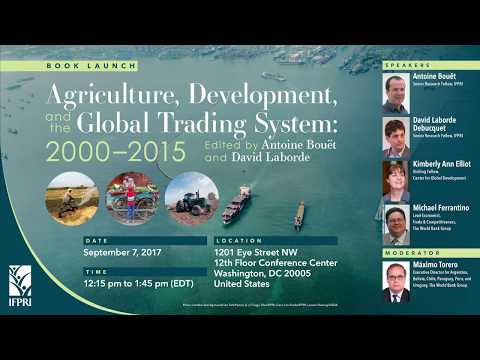
“Agriculture, Development, and the Global Trading System: 2000-2015”
Speakers: Moderator: The last two decades have seen the deepening of the globalization process while worldwide poverty and hunger have been strongly reduced. Still, the international trade policy’s role in improving food and nutrition security for the world’s remaining 795 million undernourished people remains the subject of a long-standing and intense debate. This book launch […]
-
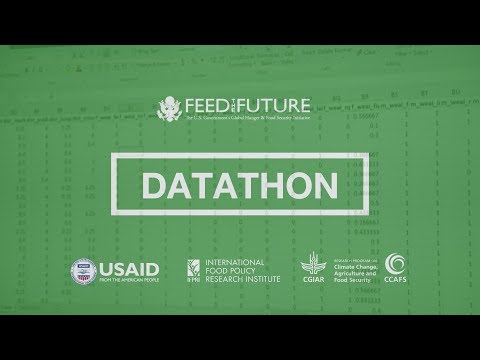
Feed the Future DATATHON
Gender, Climate Change and Nutrition Integration showcase findings from the harmonized data in Bangladesh.
-
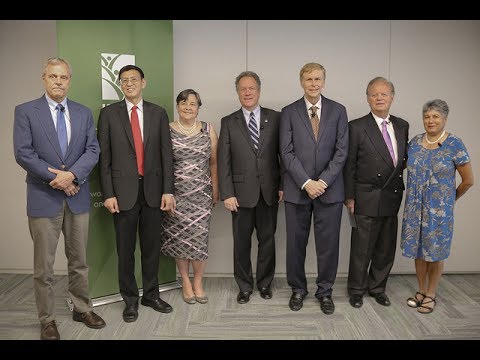
Tackling Famine in the Twenty-First Century
Moderator: Speakers: Closing Remarks: After 10+ years of economic growth and 20+ years of early warning systems, famine still threatens millions of people in Nigeria, Somalia, South Sudan, Yemen, and elsewhere. (IFPRI research on famine). This policy round-table explored what we need to know and do differently to tackle famine. Speakers addressed key questions including:
-
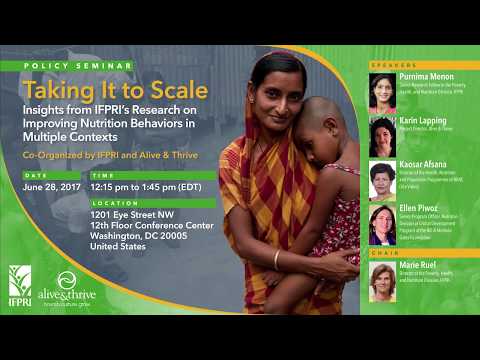
Taking It to Scale: Insights from IFPRI’s Research on Improving Nutrition Behaviors in Multiple Contexts
Co-Organized by IFPRI and Alive & Thrive
This seminar presents the key findings from the set of studies, shares insights on the policy and contextual relevance of the results, and discusses the factors that led to the Alive & Thrive successful long-term research partnership.
-

Structural Change, Fundamentals, and Growth: A Framework and Case Studies
Edited by Margaret McMillan, Dani Rodrik, and Claudia Sepúlveda
Speakers: Chair: This volume is the outcome of a project funded by The World Bank Knowledge for Change Program. The authors acknowledge the support of the CGIAR Research Program on Policies, Institutions, and Markets (PIM) led by IFPRI.
-
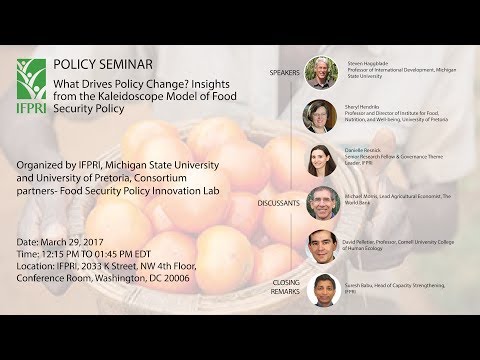
What Drives Policy Change? Insights from the Kaleidoscope Model of Food Security Policy
Organized by IFPRI, Michigan State University and University of Pretoria, Consortium partners- Food Security Policy Innovation Lab
Speakers: Discussants: Closing Remarks: What explains the persistence of socially suboptimal policies over long periods of time? What factors and forces provoke episodes of reform that punctuate long periods of policy inertia? Given the growing need to achieve policy impact with scarce resources, these key questions increasingly preoccupy the international donor and research communities. This […]
-
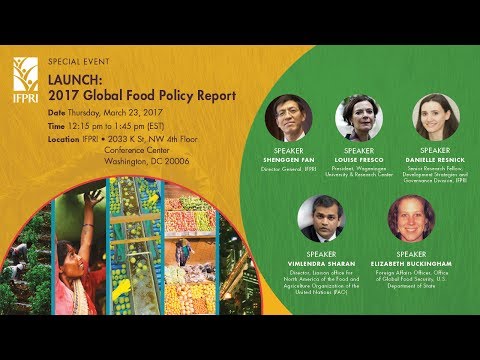
LAUNCH: 2017 Global Food Policy Report
The world is rapidly urbanizing. How does this affect hunger and malnutrition?
-

Launch of IFPRI’s Bangladesh Integrated Food Policy Research Program (BIFPRP) Dhaka office
On February 27, the IFPRI-Bangladesh community celebrated the opening of IFPRI’s Bangladesh Integrated Food Policy Research Program (BIFPRP) Dhaka office. During the opening ceremony, various leading IFPRI researchers in the country shared remarks commemorating the occasion. Dr. Akhter Ahmed, IFPRI Representative in Bangladesh, stated, “IFPRI has been working in Bangladesh for over 30 years. With the […]
-
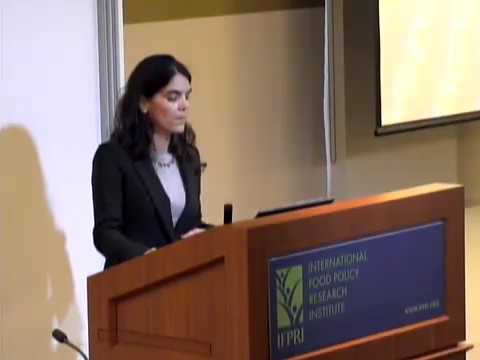
Global food security and the WTO: The role of Mercosur countries
Speakers: Moderator: As regional trade negotiation processes falter, the WTO is returning to center stage as the main body regulating international trade. The countries of the Mercosur trading bloc, including Argentina and Brazil, are among the world’s leading net food exporters and therefore have a key role to play in food security and sustainability. At […]
-
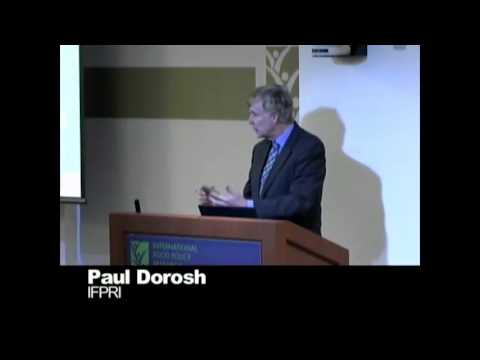
Agriculture and the Rural Economy in Pakistan: Issues, Outlooks, and Policy Priorities
Chief Guest: Speakers: Discussant: Moderator: Agriculture has been central to Pakistan’s economic growth and development since independence. But agricultural growth has slowed in recent years, averaging just 2.8 percent between 2010 and 2014. Will the country’s agricultural sector and the wider rural economy play a significant role in future growth and development? Will agriculture contribute […]
-
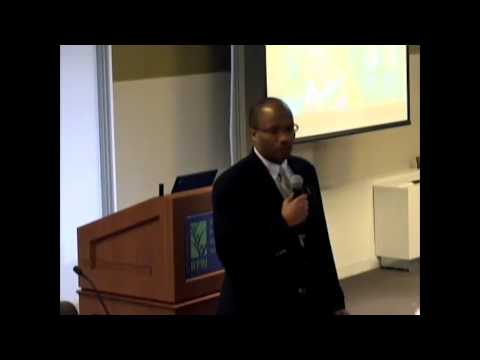
Visioning the future of Food Security
Critical drivers to 2050, key vulnerabilities, and needed policy interventions
Speakers: Discussant: Moderator: Food and nutrition security policies should be made with future eventualities in mind so that proper planning and investments can be made today. There are several approaches to generating “plausible futures.” Using both quantitative and qualitative methods, analysts perform “foresight” exercises to see how various paths to economic growth and development will […]
-
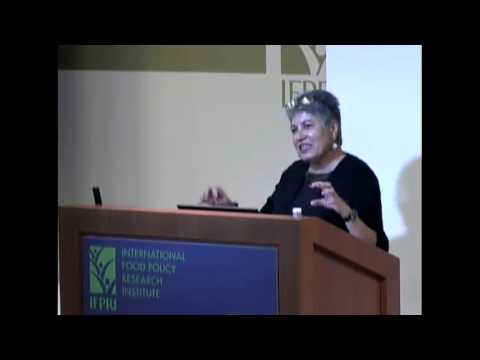
Improving human and environmental health in peri-urban areas
Speaker: Closing Remarks: Today, more than half the world’s population resides in cities. By 2050, city and near-city populations are expected to increase by 66 percent, placing extreme pressure on urban food systems. City policy makers recognize that innovative food policies and interventions are necessary to regulate food production; generate healthy food consumption based on […]
-
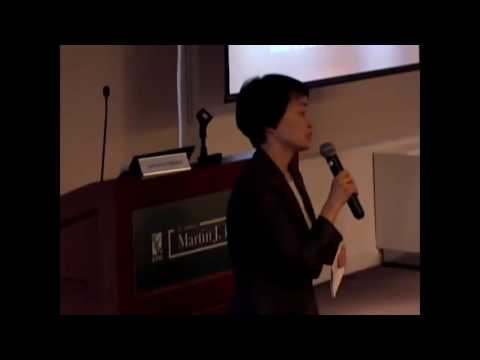
The Virtuous Emulsification of Business and Nutrition: Why Bother and Ways Forward
26th Annual Martin J. Forman Memorial Lecture
Speaker: Chair: To many on the international conference circuit, business and nutrition are like oil and water—never to mix. In the real world, however, the two mix all the time, aided by “emulsifiers” that are not always positive for nutrition. The SDG era marks the beginning of the end of international aid and the start […]
-

Monitoring agricultural incentives: A global perspective
Speakers: Chair Closing Remarks: Agricultural incentives in many countries are still influenced by non-tariff measures such as tariff-rate-quotas, export bans, and export subsidies. So the analyses of global trade reform must be based on measures for as many countries as possible, including both the major agricultural producers and where many people are vulnerable to poverty. […]
-
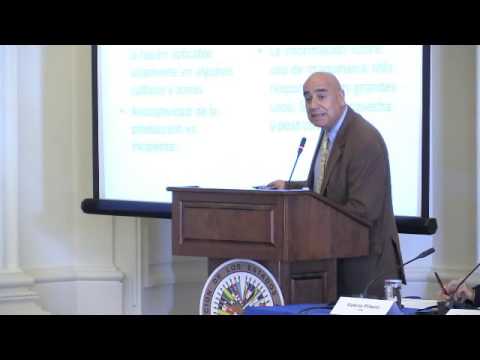
Workshop: Present and Future of Agricultural Mechanization in Latin America
On November 4, 2016, the International Food Policy Research Institute (IFPRI) and the Inter-American Institute for Cooperation on Agriculture (IICA) hosted a seminar on The Present and Future of the Agricultural Mechanization in Latin America. The event brought together experts from different fields to discuss the current situation of agricultural mechanization in Latin America, particularly […]
-
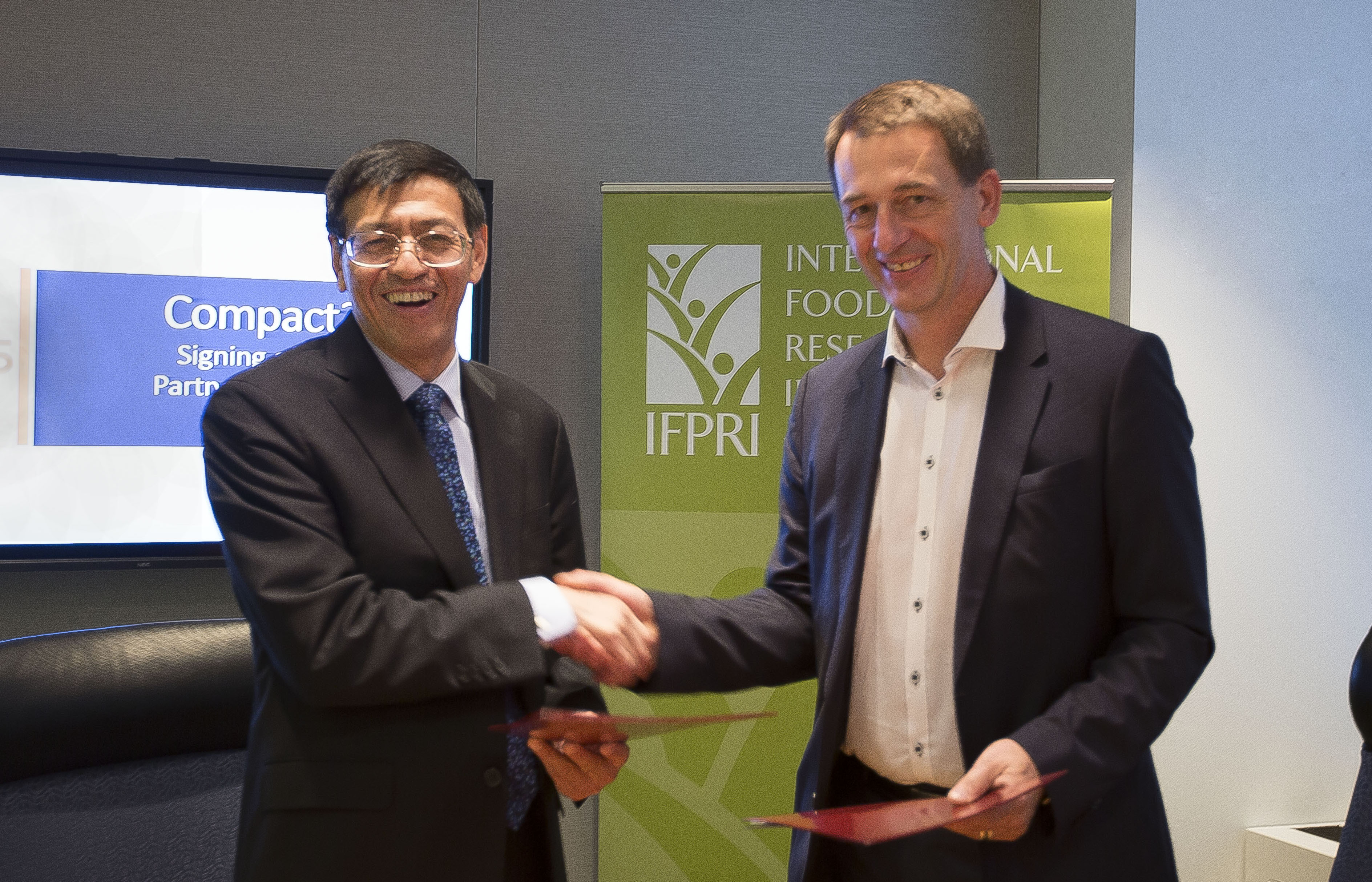
IFPRI-CARE International Partnership Agreement
Working Together to End Hunger and Malnutrition
On October 6, 2016, IFPRI director general Dr. Shenggen Fan welcomed Dr. Wolfgang Jamann to IFPRI’s Washington headquarters. Dr. Jamann is Secretary General and CEO of Geneva-based CARE International Federation. During their meeting, the two leaders signed a partnership agreement on behalf of their respective organizations. IFPRI and CARE complement each other well: IFPRI’s mission […]
-
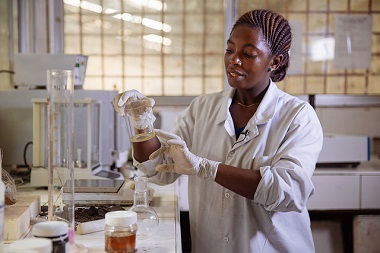
Follow-Up to the S4AC Write Shop
IFPRI and Science for Agriculture Consortium Leaders
This meeting, sponsored by the Scientific and Technical Partnerships in Africa Program, allowed attendees to discuss alignment and opportunities with ongoing research activities to further support the implementation of the Science for Agriculture Consortium (S4AC) in delivery of the Science Agenda for Agriculture in Africa.
-
Water for Food Security
A Vital Resource to Feed the Planet
The Center for Strategic & International Studies (CSIS) Global Food Security Project and University of California, Davis invites you to "Water for Food Security: A Vital Resource to Feed the Planet".
-
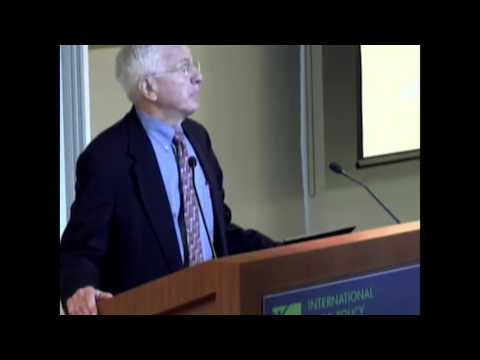
Sustainable Intensification is the Answer to Global Food Insecurity
Speaker: Discussant: Closing Remarks: Moderator: IFPRI, in collaboration with the USAID Alumni Association, hosted this special event where Sir Gordon Conway emphasized that sustainable intensification offers a practical pathway towards the goal of producing more food while ensuring that the natural resource base, on which agriculture depends, is sustained and improved for future generations. He explored Sustainable Intensification […]
-
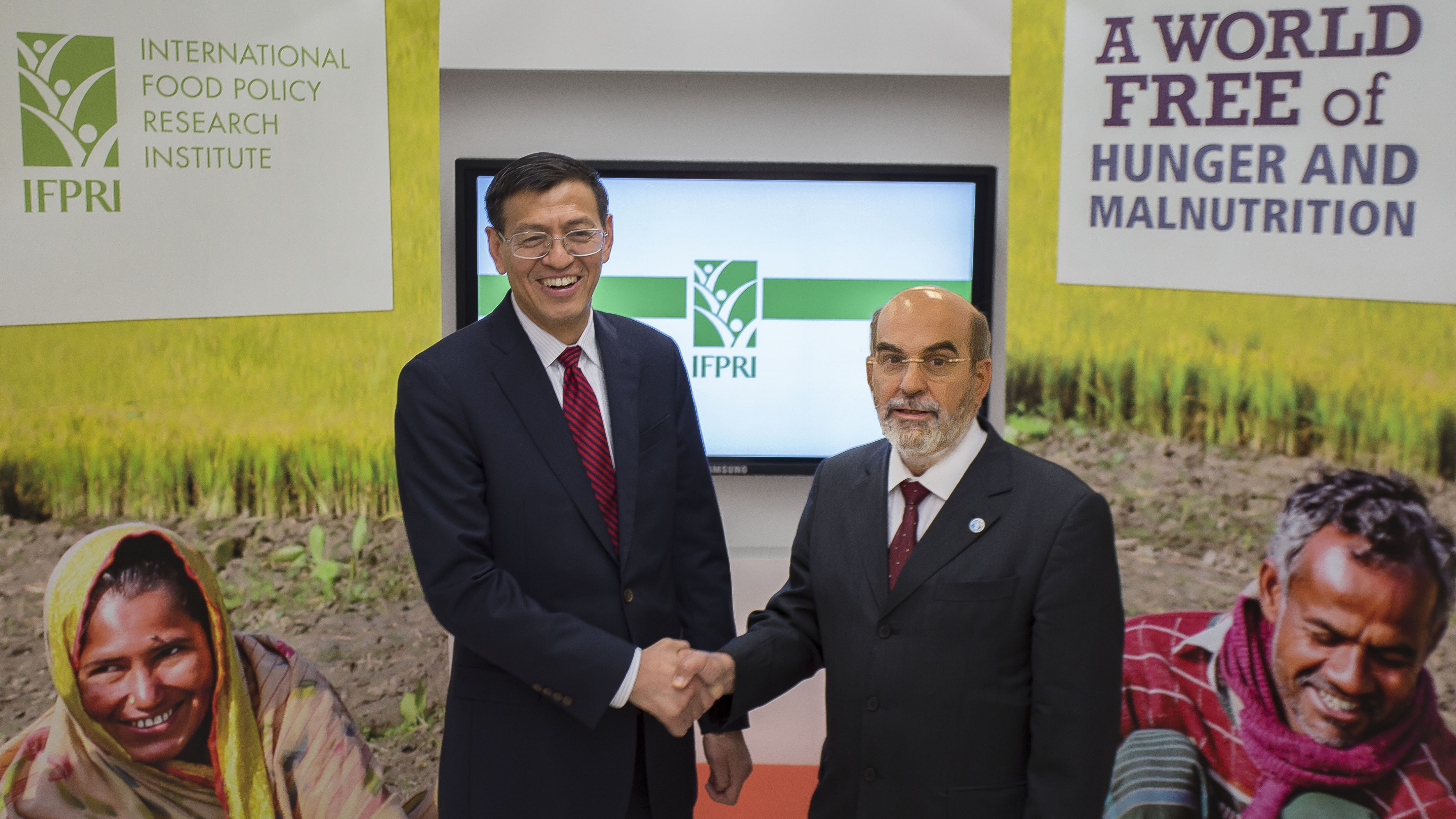
IFPRI and FAO Joint Statement
Partnership for Better Food Security and Nutrition
The first ever visit of FAO Director-General to IFPRI’s headquarters in Washington last week celebrated four decades of rich partnership that has generated cutting-edge technical knowledge and enhanced expertise for supporting food security and improved nutrition. In warmly welcoming FAO Director-General Jose Graziano da Silva, IFPRI’s Director General Shenggen Fan noted that the IFPRI-FAO partnership […]
-
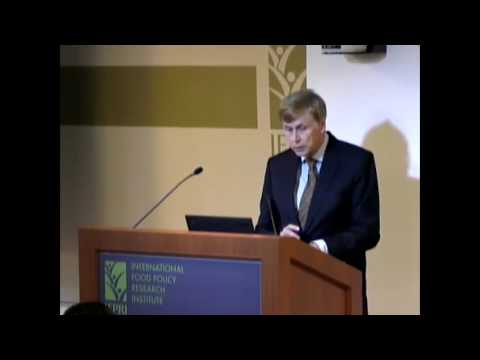
Policy reform, agricultural trade, and economic growth in Myanmar
Speaker: Panelists: Chairperson: Closing Remarks: In the wake of the recent political transition in Myanmar, the country faces major challenges to accelerated agricultural development and economic growth, including massive needs for investments in agricultural research, extension, and irrigation. Many opportunities are also opening up. Trade with China has grown rapidly in the past five years […]
-

White House Summit on Global Development
Shenggen Fan presented at the White House Summit on Global Development on July 20, 2016. He presented as a part of the ‘Feed the Future: Partnerships for a Food-Secure 2030′ panel. The Summit, which President Obama attended, brought together development leaders, public and private sector partners, civil society, diplomats, and entrepreneurs to discuss the progress […]
-

Nourishing Millions: Stories of Change in Nutrition
Nourishing Millions Website | Blog Story Overview Stuart Gillespie, Senior Research Fellow, International Food Policy Research Institute and CEO, Transform Nutrition Research Program Consortium (Video | Presentation) Perspectives Tom Arnold, Coordinator ad interim, Scaling Up Nutrition Movement (Video) David Nabarro, Special Adviser to the United Nations Secretary-General on the 2030 Agenda for Sustainable Development and Climate Change […]
-

2016 Global Nutrition Report Washington, DC Launch
and release of the U.S. Government Global Nutrition Coordination Plan 2016-2021
1,000 Days, Bread for the World, Food Tank, Humanitas Global, International Food Policy Research Institute, The Chicago Council on Global Affairs, and USAID are pleased to invite you to the 2016 Global Nutrition Report Washington, DC Launch event. The 2016 Global Nutrition Report highlights malnutrition in all forms, including non-communicable diseases. It explores the underlying determinants of malnutrition such as water, […]
-
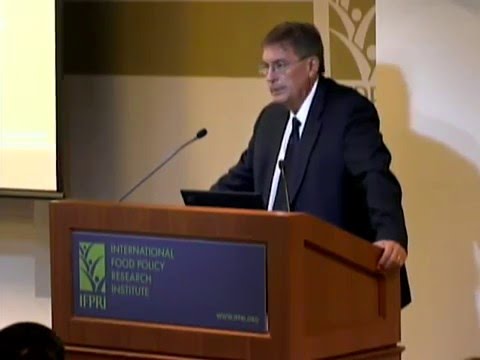
Supplying High-Quality Seeds and Traits to Smallholder Farmers: Policy and Investment Options for Developing-Country Seed Systems
Organized by IFPRI and the CGIAR Research Program on Policies, Institutions, and Markets (PIM)
Speakers: Moderator: Chair: Improved seeds and traits are central to many developing countries’ national strategies for agricultural development and economic growth. Some developing countries have made considerable progress in this area by reforming seed market regulations, encouraging regional regulatory harmonization, reducing state intervention around seed pricing, and encouraging private investment in seed markets. Nevertheless, many […]
-
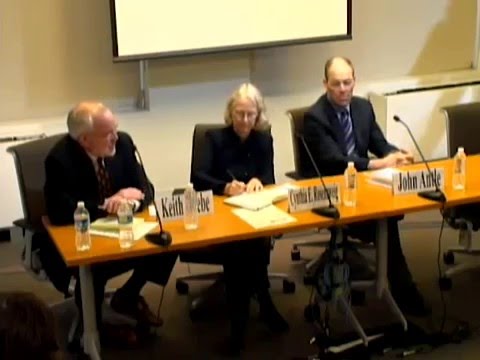
Climate Impact on Food and Nutrition Systems: Coordinated Global and Regional Assessments
Organized by IFPRI and The Agricultural Model Intercomparison and Improvement Project (AgMIP)
Speakers: Moderator: The combination of a warming earth and an increasing global population will likely strain the world’s food systems in the coming decades. Quantitative measurements of these climate, population, and food system trends and shocks are undertaken by experts at the Agricultural Model Intercomparison and Improvement Project (AgMIP). IFPRI’s participation in AgMIP is supported by […]
-
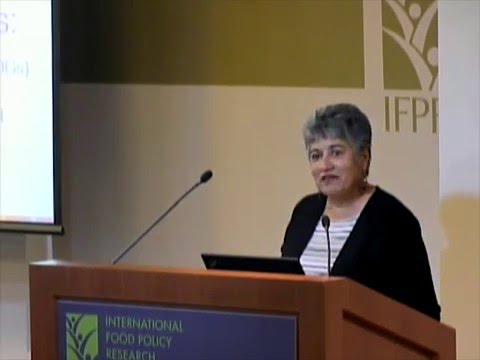
Investing in Communities: Key to the Sustainable Development Goals (SDGs)
Event organized by IFPRI and The Movement for Community-Led Development
Speakers: Moderator: One sea-change from the Millennium Development Goals (MDGs) to the Sustainable Development Goals (SDGs) is Goal 16, which calls for participatory decision-making at all levels, including the community level where basic needs are met. The SDGs also call for integrated solutions – especially critical for nutrition, women’s economic empowerment and resilience – and this […]
-
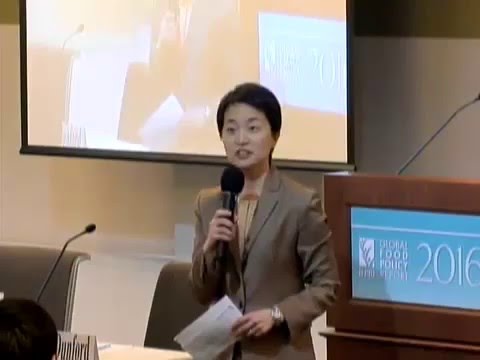
Launch of IFPRI’s 2016 Global Food Policy Report
Speakers: The year 2015 was a watershed moment for the international development community. The endpoint of the Millennium Development Goals highlighted the striking advances made since 1990: extreme poverty, child mortality, and hunger all fell by around half. However, enormous challenges remain. The 2016 Global Food Policy Report reviews major trends, events, and changes affecting food security and nutrition in 2015 […]
-
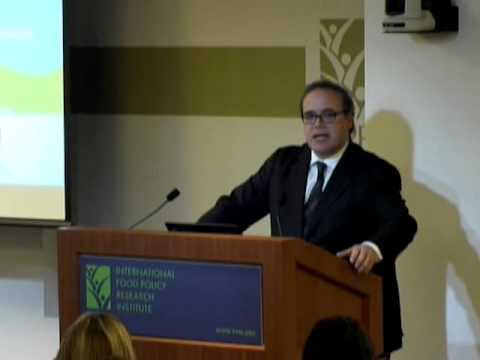
Options for global agricultural trade after Nairobi
Global solutions or national actions?
Speakers: Moderator: In December 2015, at the 10th World Trade Organization (WTO) ministerial conference, 159 WTO members secured the “Nairobi Package” agreement containing important outcomes on the issue of agriculture. At this seminar, presenters will share highlights of the conference and explore: (i) the role of emerging countries in contributing to global food security; (ii) […]
-
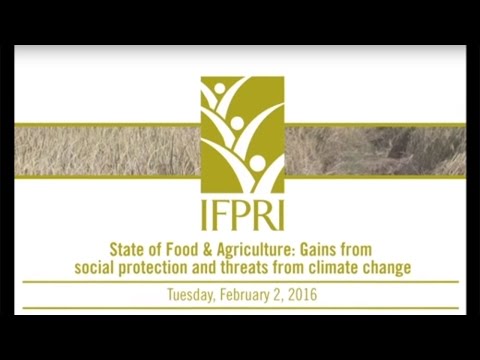
State of Food & Agriculture: Gains from social protection and threats from climate change
Event organized by IFPRI and FAO
The Millennium Development Goals (MDGs) on reducing poverty have been met by many countries, yet many others lag behind and the post-2015 challenge will be the full eradication of poverty and hunger. Many developing countries increasingly recognize that social protection measures are needed to relieve the immediate deprivation of people living in poverty and to […]
-
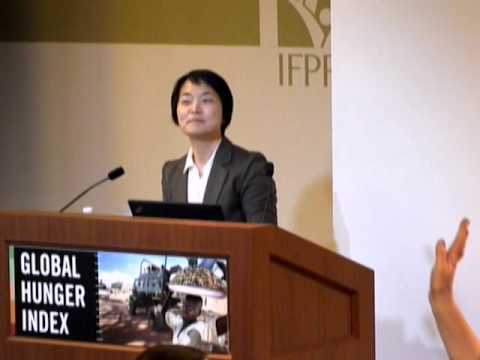
Washington, DC launch of the 2015 Global Hunger Index
Armed conflict and the challenge of hunger
While the developing world has made progress in reducing hunger since 2000, the 2015 Global Hunger Index (GHI) shows that the level of hunger in developing countries as a group has fallen by 27 percent. Yet the state of hunger in the world remains serious. The Global Hunger Index is a multidimensional measure of hunger […]
-
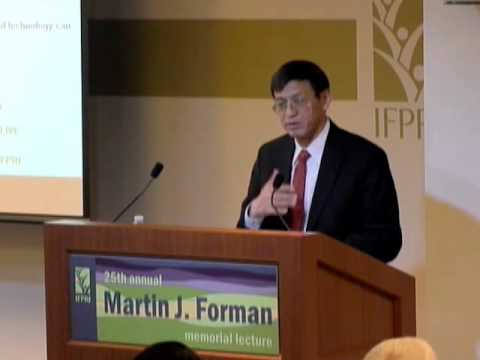
Ending hunger: How leadership, data and technology can transform the global face of poverty
25th Annual Martin J. Forman Memorial Lecture
The International Food Policy Research Institute (IFPRI) is pleased to host the 25th Annual Martin J. Forman Memorial Lecture. The event commemorates the significant impact on international nutrition by Martin J. Forman, who headed the Office of Nutrition at USAID for more than 20 years. The annual lecturer is invited to present his or her […]
-
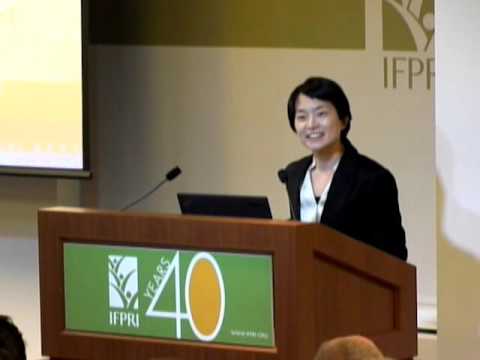
Economics of Land Degradation and Improvement
A Global Assessment for Sustainable Development
With: Joachim von Braun, Director of the Center for Development Research (ZEF), University of Bonn, and Professor for Economic and Technological Change | Rattan Lal, Distinguished University Professor of Soil Science and Director of the Carbon Management and Sequestration Center, The Ohio State University, and Adjunct Professor of University of Iceland | Alisher Mirzabaev, senior researcher at the […]
-
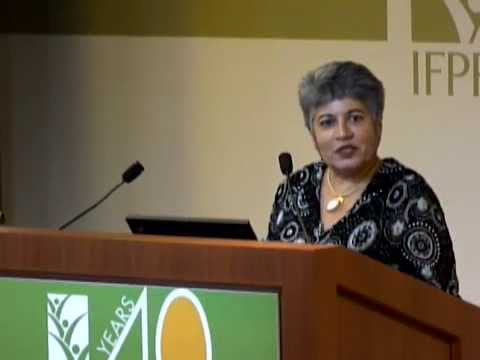
Climate Change & Food Security
Challenges and Options at Global and National Scales
Challenges and options at global and national scales. Video now available from the Nov 10 Policy Seminar.
-
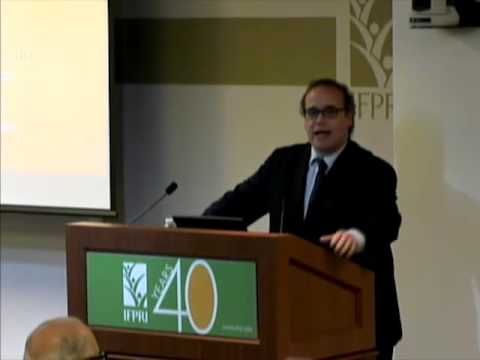
Macroeconomics, Agriculture & Food Security
With: Eugenio Diaz-Bonilla, Visiting Senior Research Fellow, IFPRI | Joe Glauber, Senior Research Fellow, IFPRI | Alejandro Izquierdo, Principal Technical Leader & Economist, Inter-American Development Bank | Maximo Torero, Division Director of the Markets, Trade, and Institutions Division, IFPRI. What do policymakers, policy analysts, and practitioners–working on agricultural issues in developing countries–need to know about macroeconomics to […]
-
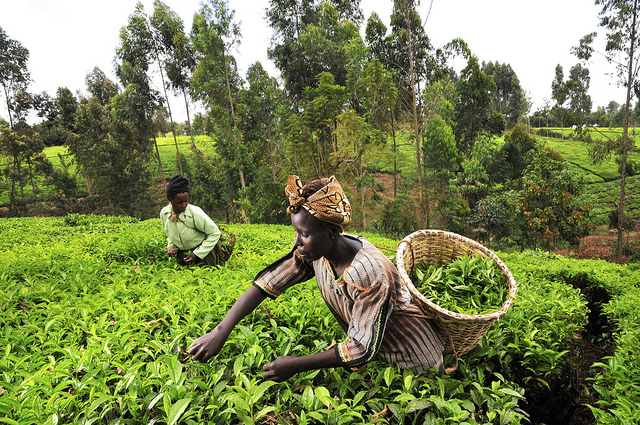
Women, Land, and Food
A Panel Discussion
With: Susan Markhan, Senior Coordinator for Gender Equality and Women’s Empowerment, USAID | Chris Jochnick, CEO, Landesa | Hosaena Ghebru, Research Fellow, IFPRI | Charles North, Senior Deputy Assistant Administrator, Bureau for Economic Growth, Education, and Environment, USAID. On October 27, USAID, the International Food Policy Research Institute (IFPRI) and Landesa will host a panel discussion to examine the intersection of […]
-
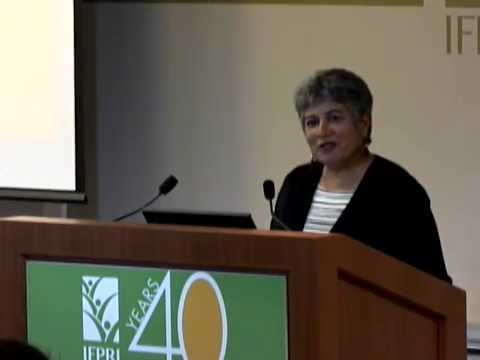
Getting to One Billion
Scaling Up Biofortification
Speakers: Anna Marie Ball, Manager, Africa Regional Partnerships & Strategic Alliances, HarvestPlus | Howarth Bouis, Director, HarvestPlus | Namukolo Covic, Research Coordinator in the Poverty, Health and Nutrition Division, International Food Policy Research Institute | Mahabub Hossain, Advisor to the Executive Director, BRAC & Member of the Global Panel. Biofortfied nutritious food crops are now […]
-
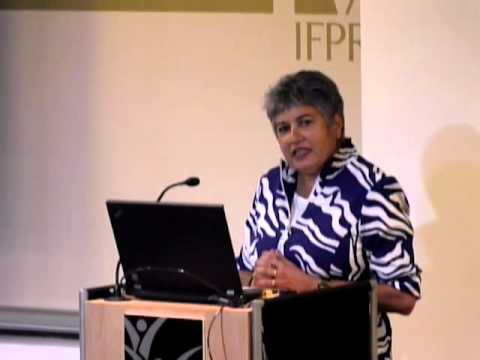
Beijing +20 and Beyond
How Gender Research Is Changing the Landscape of Food Policy
How Gender Research Is Changing the Landscape of Food Policy.
-
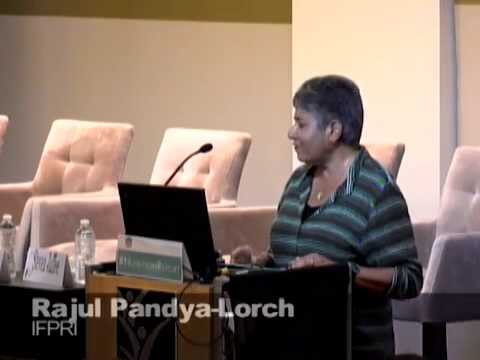
The Washington, DC Launch of the Second Global Nutrition Report
Welcome: Rajul Pandya-Lorch, IFPRI.Speakers: Lawrence Haddad, IFPRI | Corinna Hawkes, GNR Independent Expert Group co-Chair| Emorn Wasantwisut, GNR Independent Expert Group co-Chair.Panel: Robert Bertram, Bureau for Food Security, USAID | Sanjeev Gupta, International Monetary Fund | Asma Lateef, Bread for World Institute | Michael Jacobson, Centre for Science in the Public Interest | Steven Jaffee, the World Bank.Moderator: […]
-
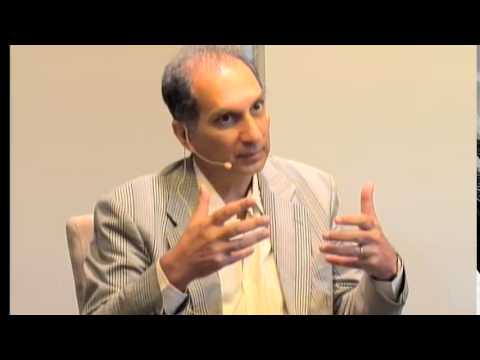
Road to New York: Keeping the SDGs’ Agenda in Focus
By the end of September 2015, world leaders will agree on the Sustainable Development Goals (SDGs) which will anchor the global development agenda for the next 15 years. At the center of the SDGs are the goals to eliminate extreme poverty, hunger, and malnutrition in a sustainable way. Keeping the focus on these key aims […]
-

-
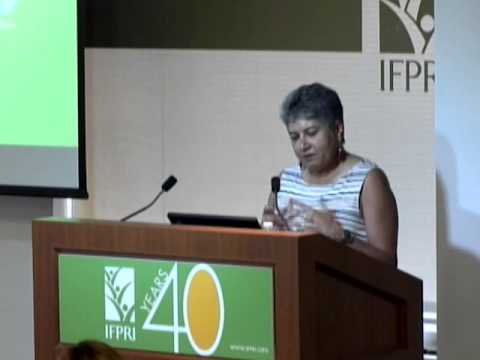
Achieving Food Security in Africa South of the Sahara Through Food Value Chains
Moderator: Rajul Pandya-Lorch, IFPRI | Welcome: Astrid Jakobs de Pádua, Embassy of the Federal Republic of Germany | Lily Munanka, Embassy of the United Republic of Tanzania | Speakers: Khamaldin Mutabazi, Sokoine University of Agriculture SUA in Morogoro, Tanzania | Ephraim Nkonya, IFPRI | Stefan Sieber, Leibniz Centre for Agricultural Landscape Research ZALF This seminar […]
-
Exposing Hidden Hunger
A Bi-Coastal Vizathon Event
On Saturday, May 30th, Bread for the World Institute and the International Food Policy Research Institute (IFPRI), partnering with HelpMeViz, will organize a Vizathon to bring together a variety of professionals to find better ways of using data to tell the story of Hidden Hunger. The event aims to bring coders, data scientists, researchers, and […]
-

It Is Time
Gendered Time Use in Agriculture-Nutrition Pathways
Key findings and policy options – seminar May 7, video now available
-
Launch of IFPRI’s 2014-2015 Global Food Policy Report
The 2014–2015 Global Food Policy Report, IFPRI’s flagship publication, puts into perspective the major food policy issues, developments, and decisions in 2014 and highlights challenges and opportunities for 2015. The report calls for a renewed focus on middle-income countries, which are home to the majority of the world’s hungry and malnourished. It also covers other […]
-
Why is Ending Hunger So Hard?
Ending hunger is difficult because it is a lengthy process that requires sustained policy attention and public resources at the same time that private markets are the arena for nearly all the decisions that matter. Central to this process is the food system, both as a key element of structural transformation and where many of […]
-

IFPRI Roundtable on Next Harvest II
Biotechnology Capacity in Africa, A Way Forward
IFPRI’s 2014 report “GM Technologies for Africa: A State of Affairs” identified the lack of standardized and uniformly collected biotech data as a main constraint in assessing the overall state of Africa’s agricultural biotechnology capacity and in the ability to draw policy recommendations regarding countries’ strengths and needs. IFPRI designed and implemented Next Harvest II, a John Templeton funded […]
-
Perspectives on Energy, Water, and Agriculture
Expanding access to clean energy in low-income countries is key to development efforts. Taking innovative ideas found in U.S. research institutions and translating and scaling these innovations to meet the demand of developing country partners is essential if we are to make a global difference toward a carbon-neutral world. Identifying means by which clean energy […]
-
Donor Approaches to Political Economy Analysis
What are the Implications for Food Security Policy and Research?
The international community is increasingly focused on political economy to determine the feasibility of pro-poor policies in developing countries. Consequently, more than a dozen donor agencies have developed political economy analysis tools to identify, for example, institutional bottlenecks and barriers to collective action. However, the impact of these tools in shifting donor priorities or influencing […]
-
Accelerating Progress to Overcome Malnutrition
Event organized by IFPRI and FAO Malnutrition, in all of its manifestations–undernutrition, micronutrient deficiencies, overnutrition–is placing an intolerable burden on individuals and communities, as well as on the cultural, social, economic, and health fabric of nations. The statistics underscore this burden: 805 million people suffer chronically from hunger and stunting affects 161 million children under […]
-
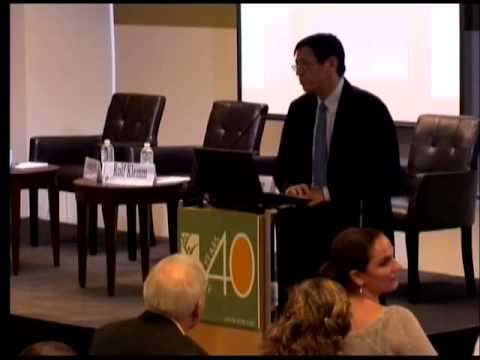
Accelerating Progress to Overcome Malnutrition
Event organized by IFPRI and FAO Malnutrition, in all of its manifestations–undernutrition, micronutrient deficiencies, overnutrition–is placing an intolerable burden on individuals and communities, as well as on the cultural, social, economic, and health fabric of nations. The statistics underscore this burden: 805 million people suffer chronically from hunger and stunting affects 161 million children under […]
-

24th Annual Martin J. Forman Memorial Lecture
A Miracle Cure for Global Malnutrition? The Data Diet
The International Food Policy Research Institute (IFPRI) is pleased to host the 24th Annual Martin J. Forman Memorial Lecture. The event commemorates the significant impact on international nutrition by Martin J. Forman, who headed the Office of Nutrition at USAID for more than 20 years. The annual lecturer is invited to present his or her […]
-
Global Nutrition Report Launch
IFPRI is delighted to host a roundtable discussion to launch the new Global Nutrition Report in Washington, DC. The Global Nutrition Report, produced in partnership with a wide range of stakeholders, is the first comprehensive narrative on country-level progress toward reducing malnutrition. It covers nutrition status outcomes, program coverage, and underlying determinants such as food […]
-

Workshop on Biofuels and Food Security Interactions
The purpose of the workshop is to explore current and future interactions between biofuels and food security, and elaborate learnings from analysis and field experience relevant for project developers, researchers and policy-makers. The workshop is organized around a six discussion topics and is designed to encourage discussion among participants. We aim to identify where consensus […]
-
2014 Global Hunger Index Twitter Chat
Click to read the 2014 Global Hunger Index report Hidden hunger is the central theme of the 2014 Global Hunger Index (GHI), published by the International Food Policy Research Institute, Concern Worldwide, and Welthungerhilfe. For the ninth straight year of calculating the Index, global hunger has improved overall, falling by 39 percent since 1990. Meanwhile, […]
-
Innovations in Science and Policy
Transforming the Rural Sector for Improved Food Security
Transforming the Rural Sector for Improved Food Security IFPRI-IRRI Policy Seminar While food price shocks from 2007 onward brought food security back to center stage in global discussions, climate-related challenges affecting major food-producing areas—such as the rice sector in Asia—are likely to keep it there. At the same time, powerful social and economic drivers are […]
-
Building Resilience in the Face of Climate Change and Weather Shocks
As the food system grows more fragile, climate change and increasingly volatile weather are reducing agricultural productivity globally. There is an urgent need for strategies to build resilience for the world’s farmers to adapt to these changing conditions. Building on the resilience themes presented in two recent conferences, the IFPRI 2020 Conference on Building Resilience […]
-
Boserup and Beyond
Mounting Land Pressures & Development Strategies in Africa
Mounting Land Pressures & Development Strategies in Africa Evidence collected in the above titled special issue of the journal Food Policy shows that rising rural population densities and shrinking farm sizes in large parts of Africa are profoundly affecting farming systems as well as the process of economic transformation. These impacts are largely under-appreciated in […]
-
CANCELLED: Tackling Soil Health Problems in Africa South of the Sahara
The policy seminar scheduled for Tuesday, July 22, from 12:15 pm to 1:45 pm at IFPRI has been cancelled. We regret the inconvenience. Human health and soil health are related. Humans get nutrition from food; food gets nutrition from the soil. This linkage is critically important for food security and for the global food system. […]
-

21st Century Agricultural Policies
The 2013 EU CAP and 2014 US Farm Bill
The 2013 EU CAP and 2014 US Farm Bill With the 2013 EU Common Agricultural Policy (CAP) and the US Agricultural Act of 2014, two major actors in world markets with longstanding high levels of farm support have set their assistance programs for agriculture for the first fifth of the 21st century. They have chosen […]
-
-
Launch of IFPRI’s 2013 Global Food Policy Report
Central to the discussions of the post-2015 agenda is the goal of eliminating extreme poverty by 2030. Though ambitious and laudable, this goal is not enough. With one in eight people suffering from hunger today, and nearly 2 billion affected by hidden hunger (micronutrient deficiencies), IFPRI’s 2013 Global Food Policy Report suggests that it is […]
-

Food Security in a World of Growing Natural Resource Scarcity
Report launch event
-
The Zero Hunger Challenge
Achieving the Right to Food for All Event organized by IFPRI, FAO, and Community for Zero Hunger This panel brings together the unique perspectives of representatives of the United Nations, government and civil society to discuss the Zero Hunger Challenge, a UN-led initiative to end hunger, eliminate child stunting, make all food systems sustainable, eradicate […]
-

Stepping into the SUN: Successes and Constraints from On-the-Ground
23rd Annual Martin J. Forman Memorial Lecture
The June 2013 Lancet series underscores that tackling the burden of malnutrition is one of the greatest challenges the global community faces in ensuring the survival and healthy development of our children. Events in 2008 have catalyzed renewed interest in nutrition – resulting in the Scaling Up Nutrition movement. In his presentation Shawn Baker will […]
-
DuPont Agriculture Development Roundtable Series
Agriculture Value Chains and the Role of the Private Sector
Inaugural event in the 2013 DuPont Agriculture Development Roundtable Series IFPRI is pleased to host the first discussion in this series aimed at fostering action among public and private entities to address the global challenge of feeding nine billion people. Agriculture value chains are being increasingly recognized for their ability to reduce rural poverty and […]
-

Public-Private Partnerships Innovating to End Malnutrition
22nd Annual Martin J. Forman Memorial Lecture
Today, 1 billion people are undernourished and 2 billion are micronutrient deficient. The potential of the private sector to eradicate malnutrition is enormous, but requires an enabling environment featuring the right mix of public policies, regulations, and investments. Innovations in public-private partnership have already achieved some success. In this seminar, Josette Sheeran will highlight the […]
-
Strategies and Priorities for African Agriculture
Agricultural growth is key to reducing poverty in Africa, south of the Sahara. That is why, in 2003, African heads of state rallied to form the pan-African Comprehensive African Agriculture Development Programme (CAADP), which works for sustained public spending on agriculture-led growth. This unprecedented political and financial commitment in Africa bodes well for the future […]
-

Launch of IFPRI’s First Global Food Policy Report
In 2011, a variety of ongoing challenges affected global food security, including food price volatility, extreme weather shocks, famine, and conflicts. Despite a number of positive developments in 2011, the global food system’s inability to adequately respond to these challenges highlights a need to exploit the links between agriculture and other sectors, in combination with […]
-

Nutrition in Senegal: Achievements and Prospects
21st Annual Martin J. Forman Memorial Lecture
After several major transitions, Senegal succeeded in developing a multisectoral strategy to achieve sustainable nutrition outcomes. The country achieved significant results through a combination of actions, including a strong political commitment to fighting malnutrition and the development of a coherent architecture to support this effort. An integral part of this architecture was the creation of […]
-
From Famine to Food Security: Meeting the Challenge in the Horn of Africa
IFPRI Special Event with Hillary Rodham Clinton, U.S. Secretary of State U.S. Secretary of State Hillary Rodham Clinton spoke at the International Food Policy Research Institute (IFPRI) on the humanitarian crisis in the Horn of Africa Thursday, August 11, 2011. Secretary Clinton discussed the ongoing international humanitarian response, as well as how the crisis in […]
-

Nutrition Repositioned in the Development Agenda? Current Prospects for Scaling-Up Nutrition Outcomes
20th Annual Martin J. Forman Memorial Lecture
Nutrition has recently gained momentum and is increasingly being discussed in high-level global development debates. Dr. Nabarro will share his views on how human nutrition is being prioritized, addressed, resourced and assessed by different groups of stakeholders at global, regional and national levels. He will discuss how different stakeholders are seeking new ways to align […]
-

Symposium on Global Agriculture and Food Security: Progress to Date and Strategies for Success
The Symposium on Global Agriculture and Food Security purposes to build and sustain the gathering momentum for change in U.S. food security and agricultural development policy. The Chicago Council on Global Affairs is pleased to announce that the event will feature the release of the Feed the Future Guide, the implementation strategy for the U.S. […]
-

Controversial Issues on the Role of Conditional Cash Transfer Programs to Improve Nutrition
19th Annual Martin J. Forman Memorial Lecture
19th Annual Martin J. Forman Memorial Lecture and Luncheon Conditional cash transfer (CCT) programs are becoming increasingly popular throughout the developing world. They have been shown to be an effective poverty-alleviation strategy in many countries, and a mechanism to enhance investments in human capital among poor households. Their contribution to the fight against childhood undernutrition, […]
-

18th Annual Martin J. Forman Memorial Lecture
The annual lecture commemorates the significant impact on international nutrition by Martin J. Forman, who headed the Office of Nutrition at USAID for more than 20 years. The annual lecturer is invited to present his or her personal, often unconventional, views about large issues dealing with malnutrition.
-

Nutrition and Health in China- From Science to Policymaking
17th Annual Martin J. Forman Memorial Lecture
The annual lecture commemorates the significant impact on international nutrition by Martin J. Forman, who headed the Office of Nutrition at USAID for more than 20 years. The annual lecturer is invited to present his or her personal, often unconventional, views about large issues dealing with malnutrition.
-

Nutrition and the Fight Against Poverty – A New Opportunity
16th Annual Martin J. Forman Memorial Lecture
The annual lecture commemorates the significant impact on international nutrition by Martin J. Forman, who headed the Office of Nutrition at USAID for more than 20 years. The annual lecturer is invited to present his or her personal, often unconventional, views about large issues dealing with malnutrition.
-

Nutrition, Physiological Capital, and Equity
15th Annual Martin J. Forman Memorial Lecture
The annual lecture commemorates the significant impact on international nutrition by Martin J. Forman, who headed the Office of Nutrition at USAID for more than 20 years. The annual lecturer is invited to present his or her personal, often unconventional, views about large issues dealing with malnutrition.
-

Changing the Politics of Hunger
13th Annual Martin J. Forman Memorial Lecture
The annual lecture commemorates the significant impact on international nutrition by Martin J. Forman, who headed the Office of Nutrition at USAID for more than 20 years. The annual lecturer is invited to present his or her personal, often unconventional, views about large issues dealing with malnutrition.
-

Why new thinking on poverty reduction challenges nutritionists and the other ‘hunger fighters’, and what we should do about it
12th Annual Martin J. Forman Memorial Lecture
The annual lecture commemorates the significant impact on international nutrition by Martin J. Forman, who headed the Office of Nutrition at USAID for more than 20 years. The annual lecturer is invited to present his or her personal, often unconventional, views about large issues dealing with malnutrition.
-

How are we doing in International Nutrition?
10th Annual Martin J. Forman Memorial Lecture
The annual lecture commemorates the significant impact on international nutrition by Martin J. Forman, who headed the Office of Nutrition at USAID for more than 20 years. The annual lecturer is invited to present his or her personal, often unconventional, views about large issues dealing with malnutrition.
-

Capacity, Capital and Calories
9th Annual Martin J. Forman Memorial Lecture
The annual lecture commemorates the significant impact on international nutrition by Martin J. Forman, who headed the Office of Nutrition at USAID for more than 20 years. The annual lecturer is invited to present his or her personal, often unconventional, views about large issues dealing with malnutrition.
-

Time for a Change? A field’s-eye view of donor agency support for nutrition
7th Annual Martin J. Forman Memorial Lecture
The annual lecture commemorates the significant impact on international nutrition by Martin J. Forman, who headed the Office of Nutrition at USAID for more than 20 years. The annual lecturer is invited to present his or her personal, often unconventional, views about large issues dealing with malnutrition.
-

Have We Become Surrogates for Failure? Proposing a New Nutrition Education
6th Annual Martin J. Forman Memorial Lecture
The annual lecture commemorates the significant impact on international nutrition by Martin J. Forman, who headed the Office of Nutrition at USAID for more than 20 years. The annual lecturer is invited to present his or her personal, often unconventional, views about large issues dealing with malnutrition.
-

The United Nations system and nutrition: the need for change in a more democratic world
5th Annual Martin J. Forman Memorial Lecture
The annual lecture commemorates the significant impact on international nutrition by Martin J. Forman, who headed the Office of Nutrition at USAID for more than 20 years. The annual lecturer is invited to present his or her personal, often unconventional, views about large issues dealing with malnutrition.
-

Sliding Toward Nutrition Malpractice: Time to Reconsider and Redeploy
4th Annual Martin J. Forman Memorial Lecture
The annual lecture commemorates the significant impact on international nutrition by Martin J. Forman, who headed the Office of Nutrition at USAID for more than 20 years. The annual lecturer is invited to present his or her personal, often unconventional, views about large issues dealing with malnutrition.
-

Controlling vitamin A deficiency: A policy initiative
3rd Annual Martin J. Forman Memorial Lecture
The annual lecture commemorates the significant impact on international nutrition by Martin J. Forman, who headed the Office of Nutrition at USAID for more than 20 years. The annual lecturer is invited to present his or her personal, often unconventional, views about large issues dealing with malnutrition.
-

2nd Annual Martin J. Forman Memorial Lecture
The annual lecture commemorates the significant impact on international nutrition by Martin J. Forman, who headed the Office of Nutrition at USAID for more than 20 years. The annual lecturer is invited to present his or her personal, often unconventional, views about large issues dealing with malnutrition.
-

1st Annual Martin J. Forman Memorial Lecture
The annual lecture commemorates the significant impact on international nutrition by Martin J. Forman, who headed the Office of Nutrition at USAID for more than 20 years. The annual lecturer is invited to present his or her personal, often unconventional, views about large issues dealing with malnutrition.




